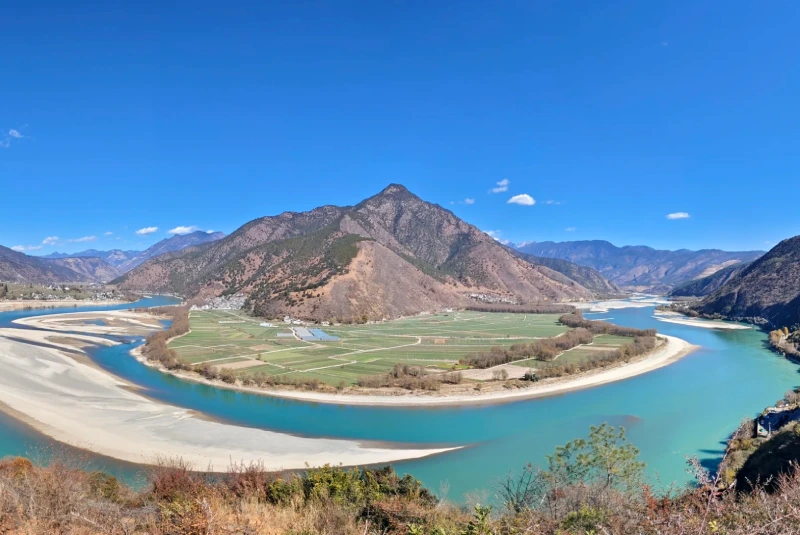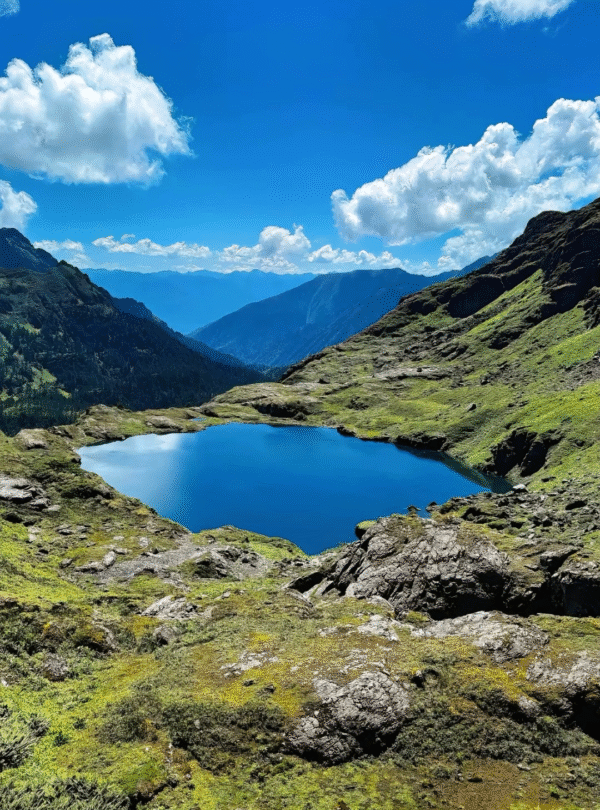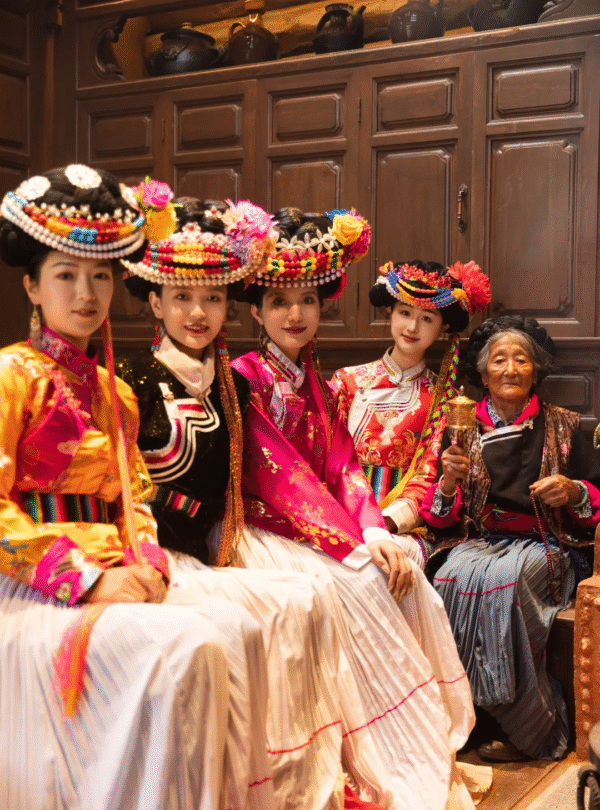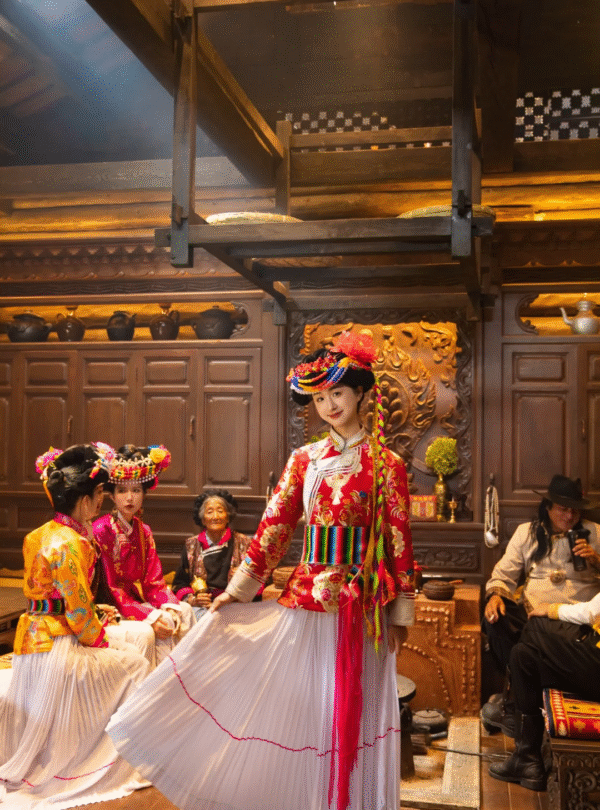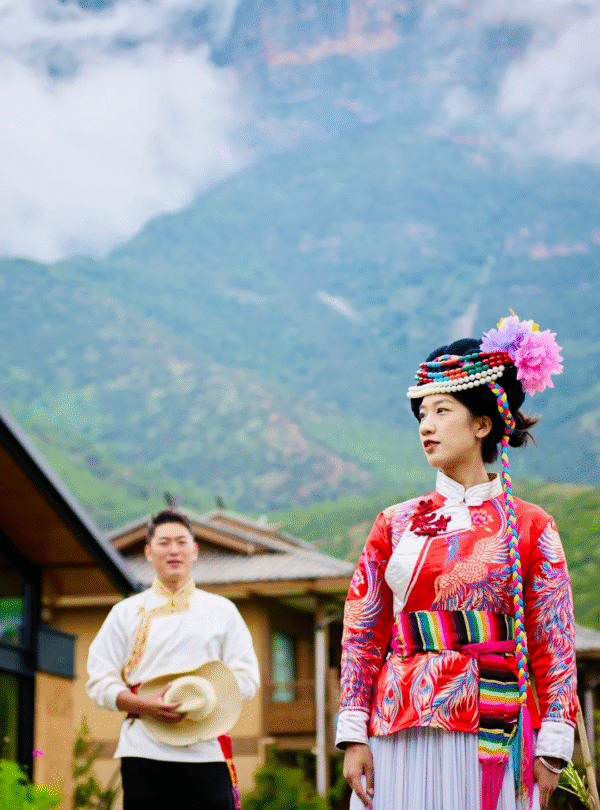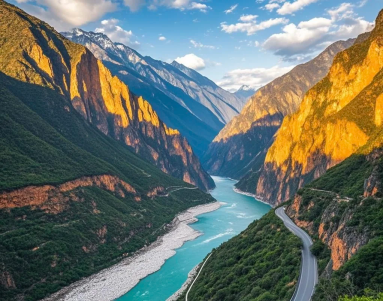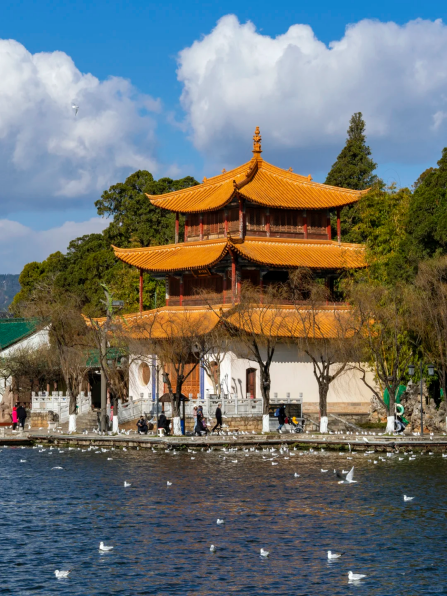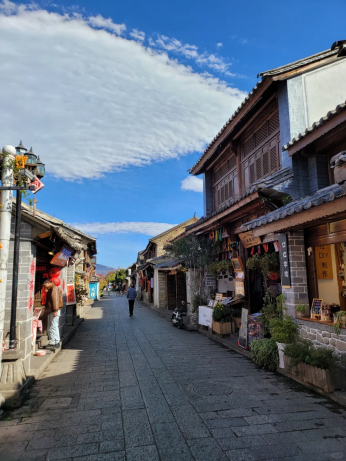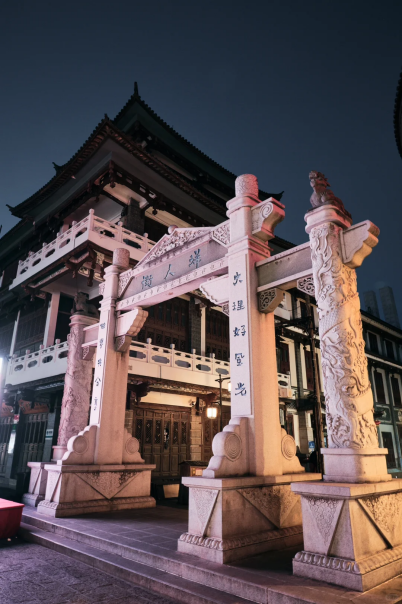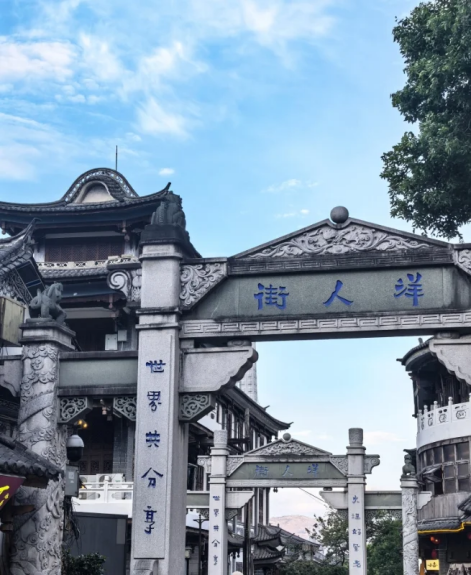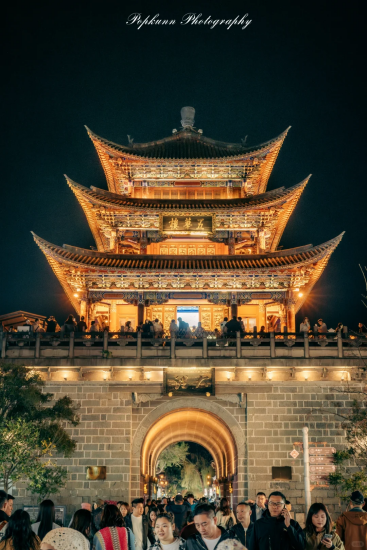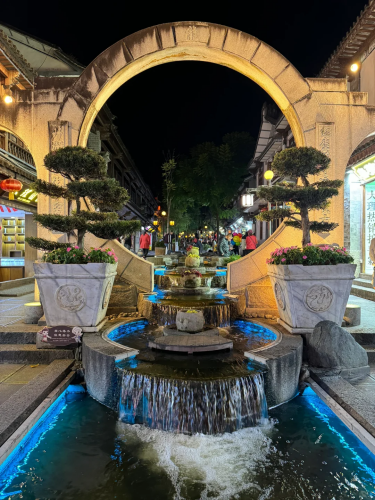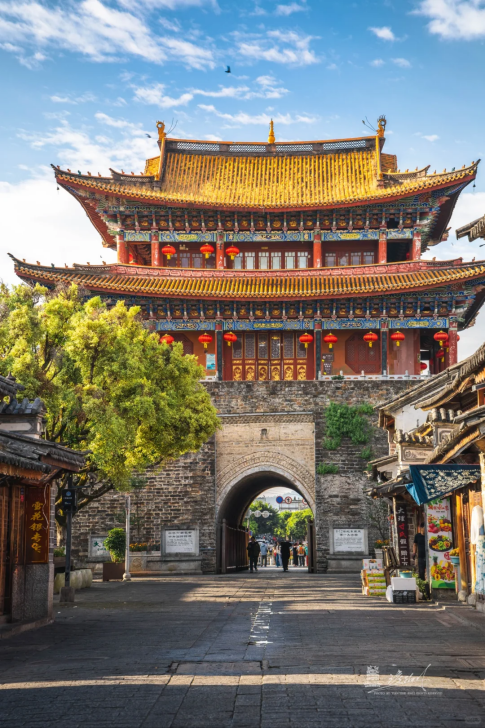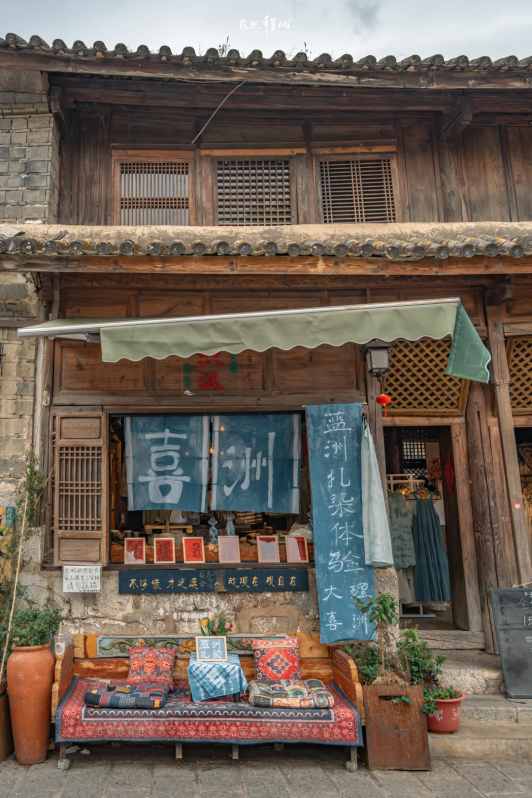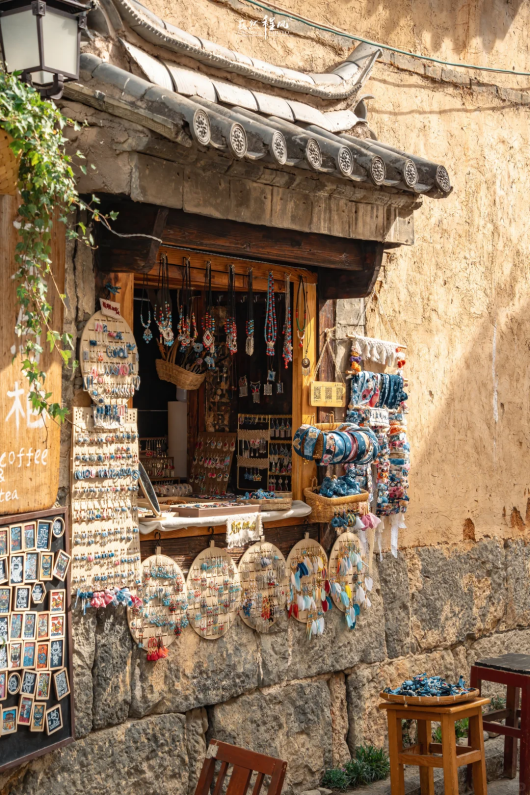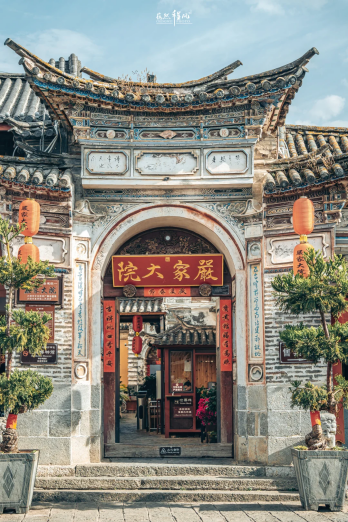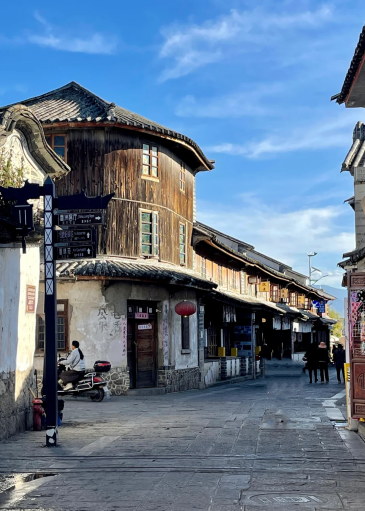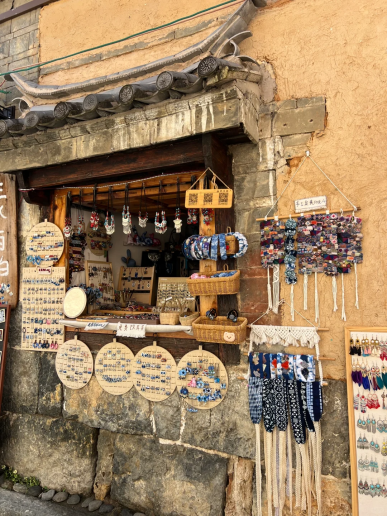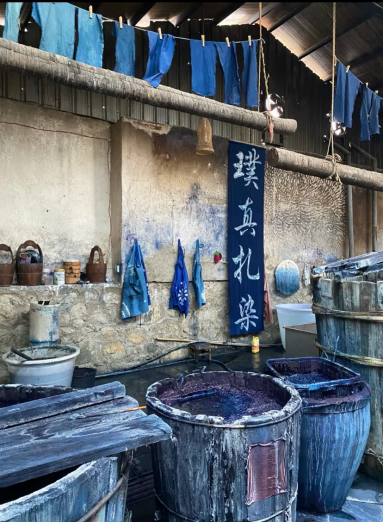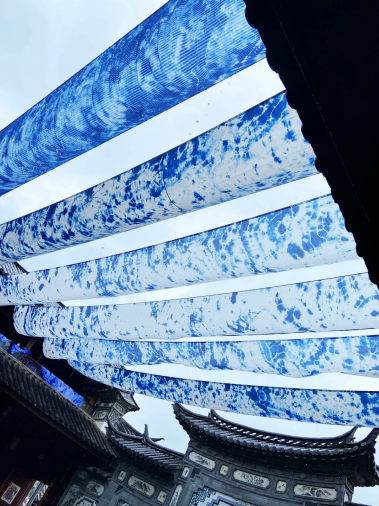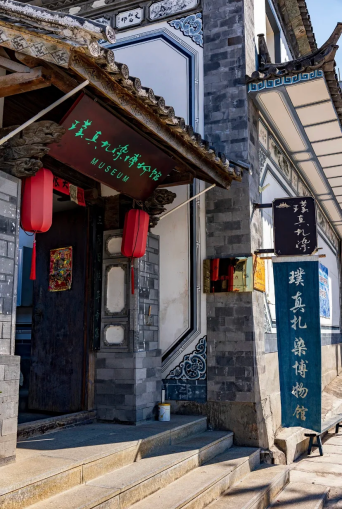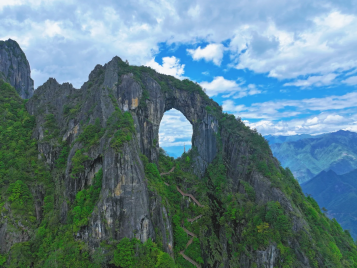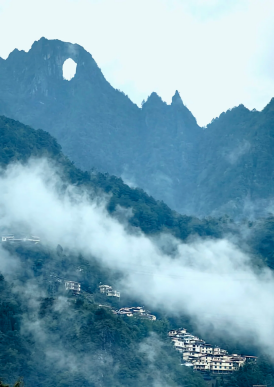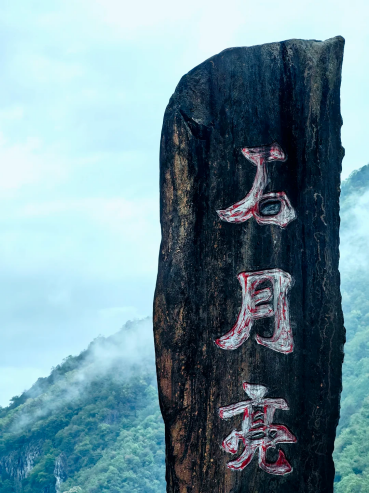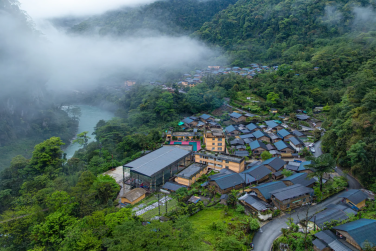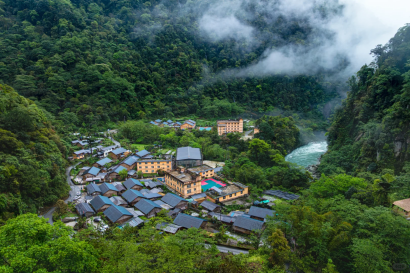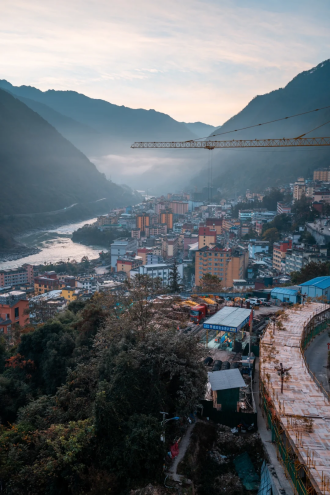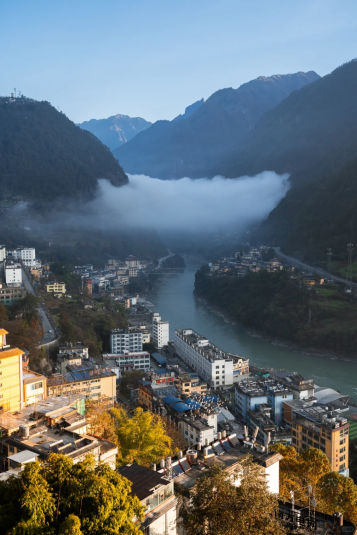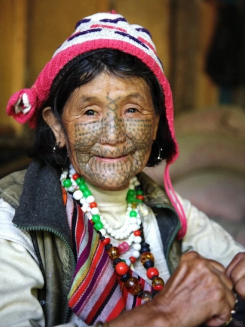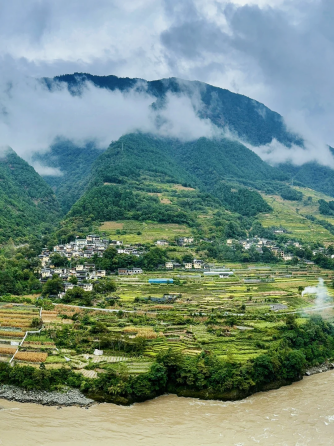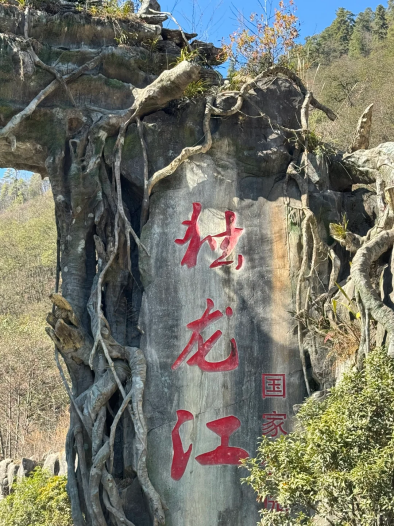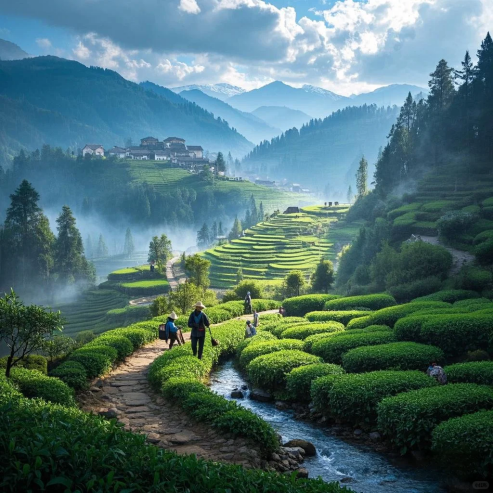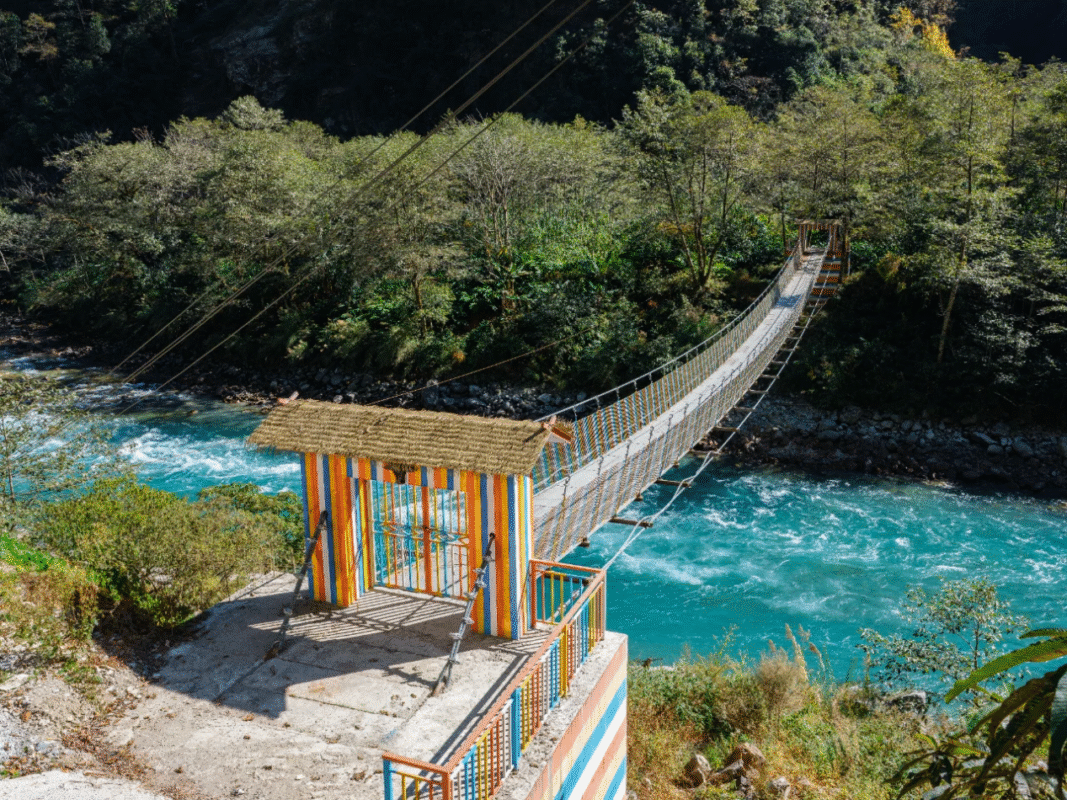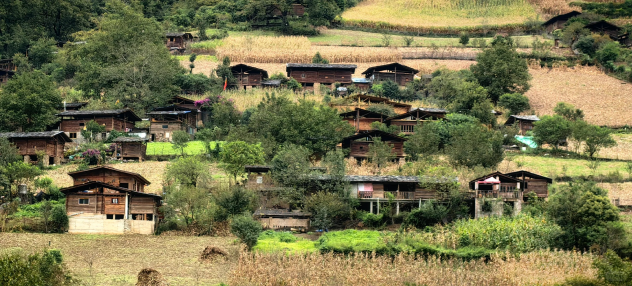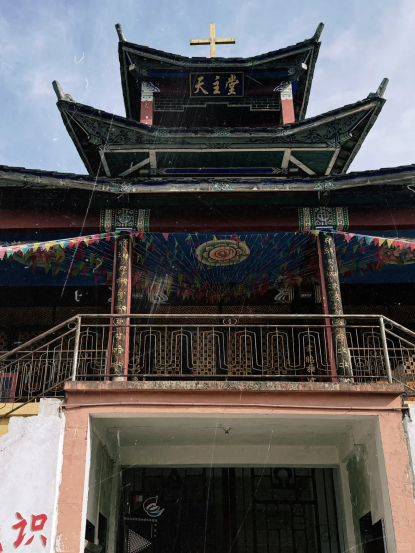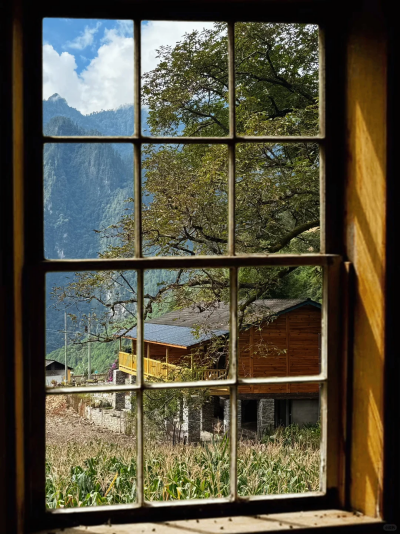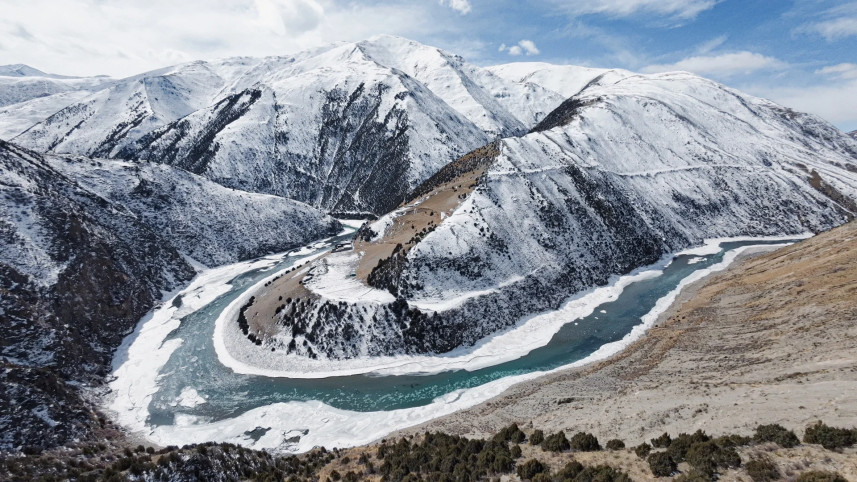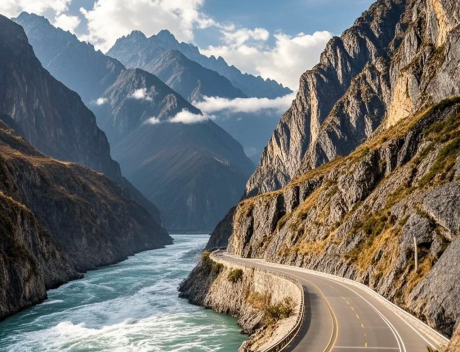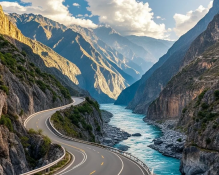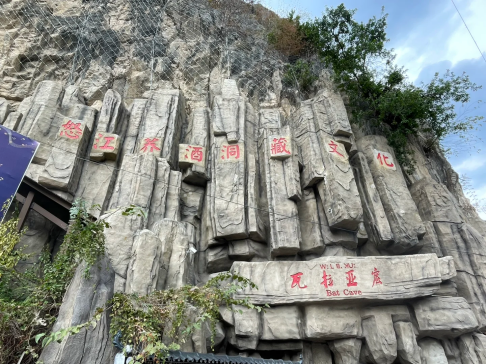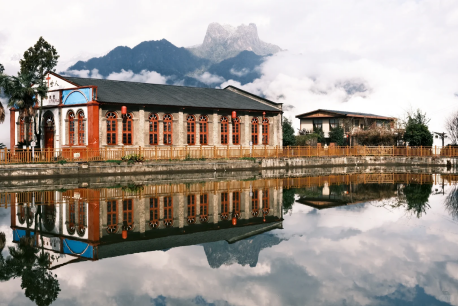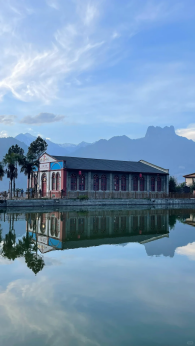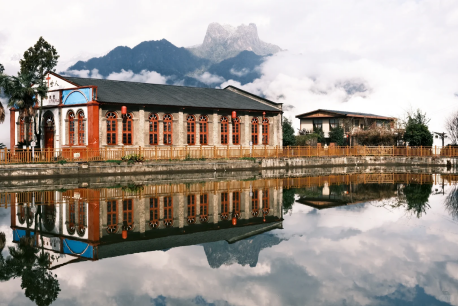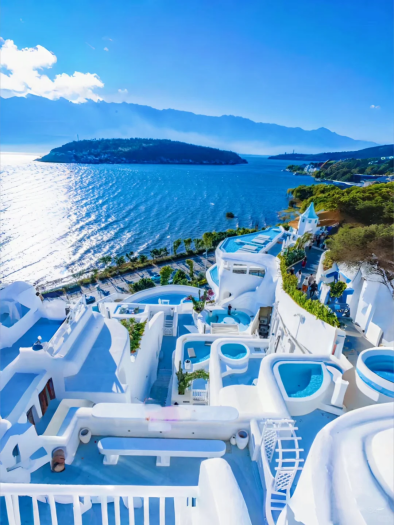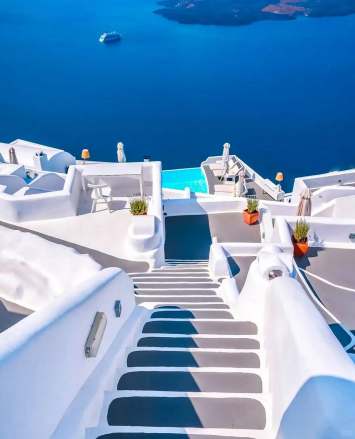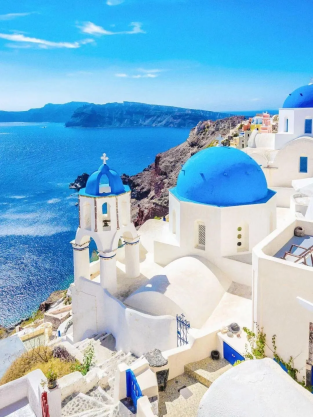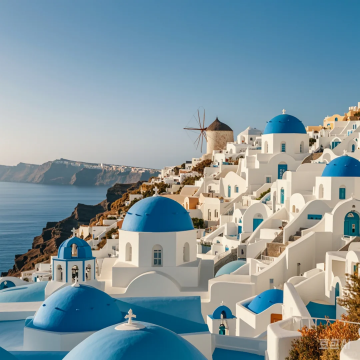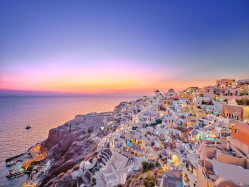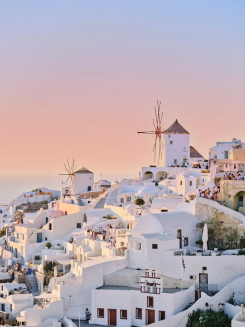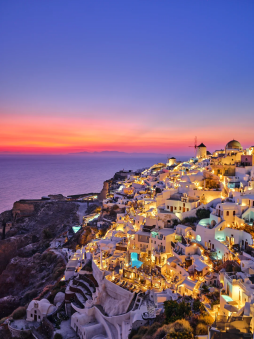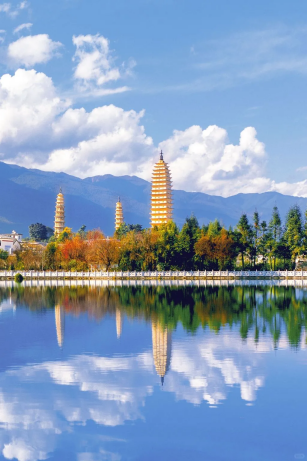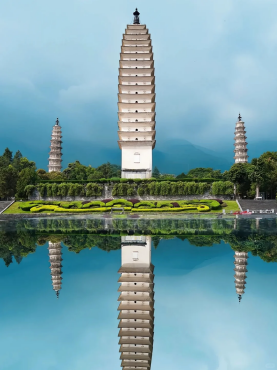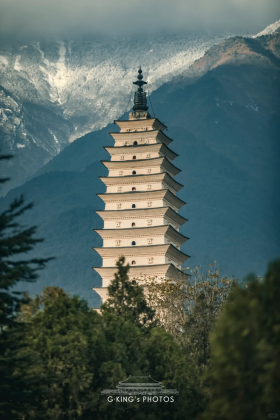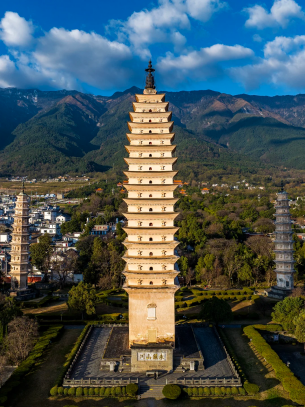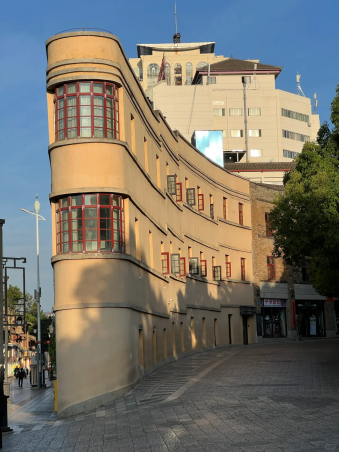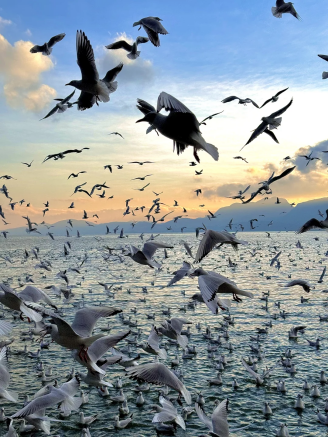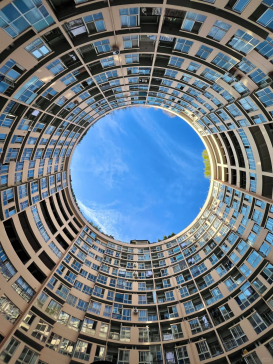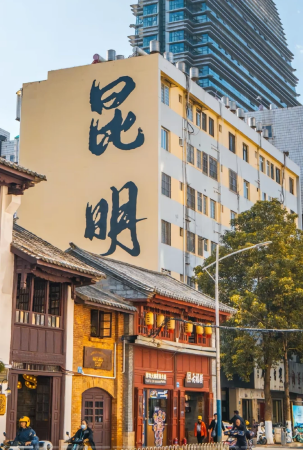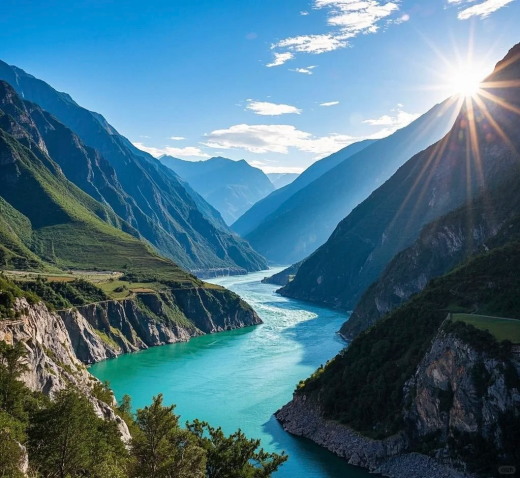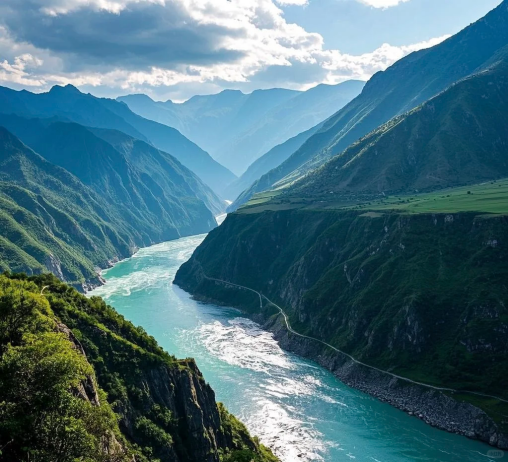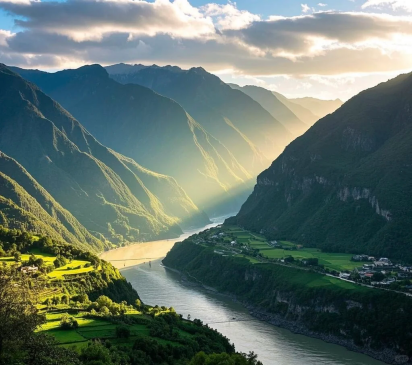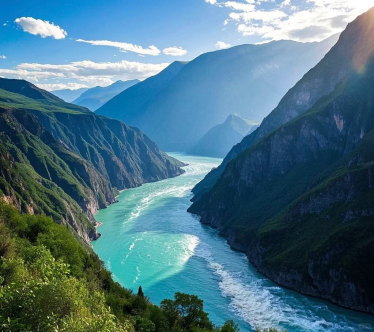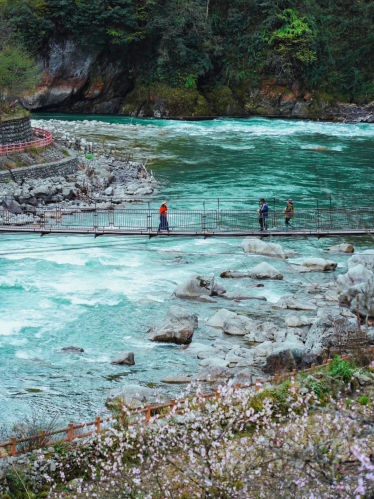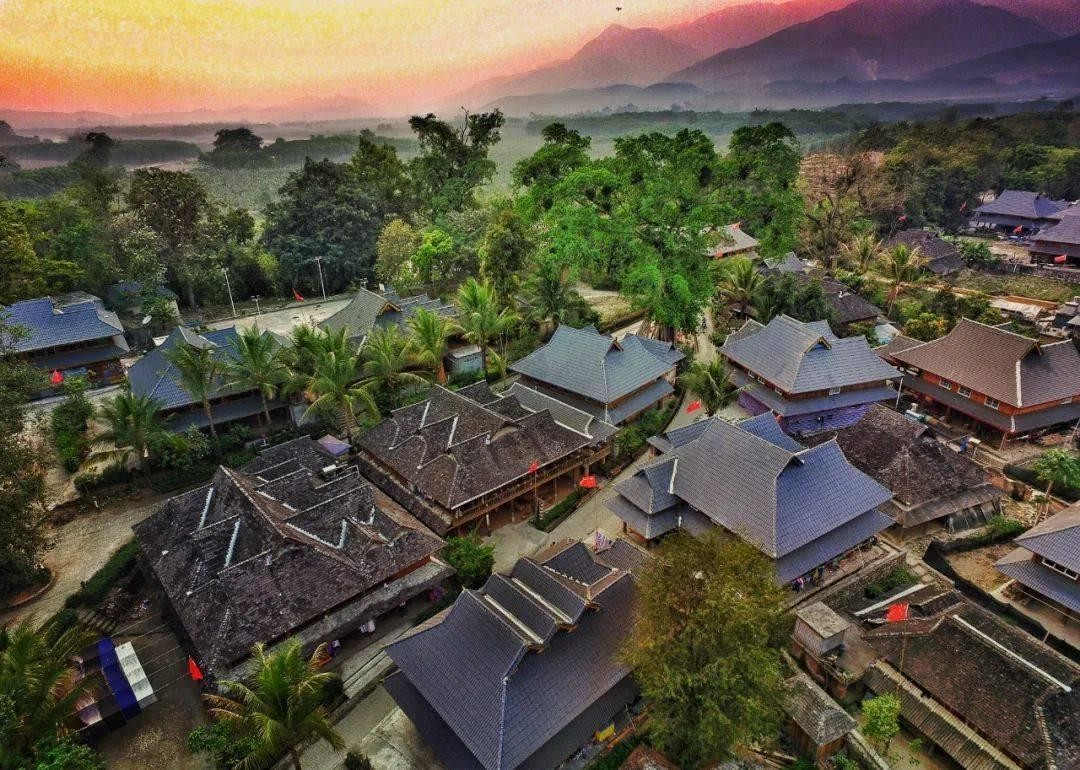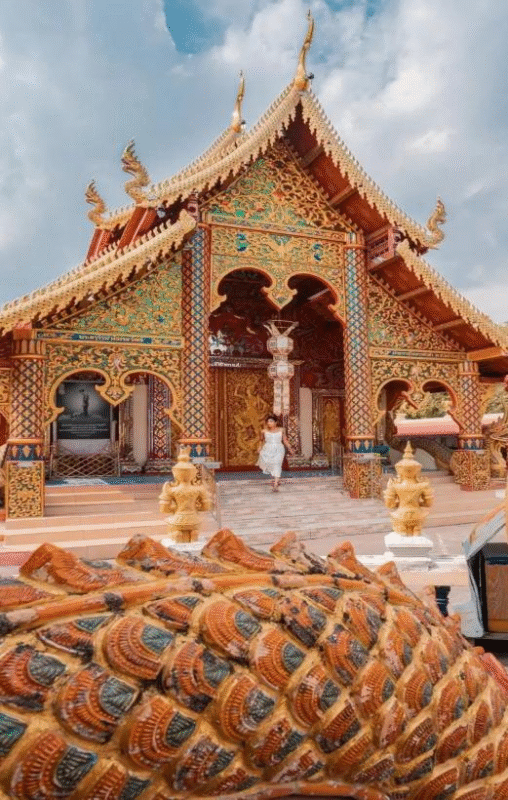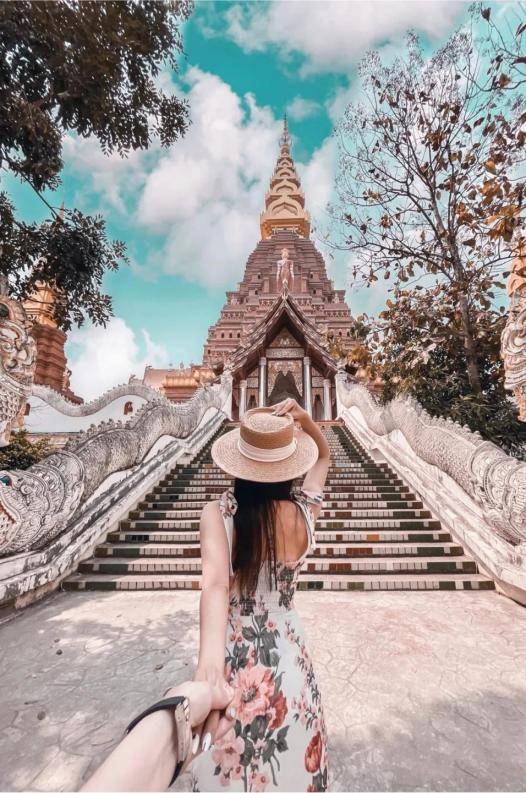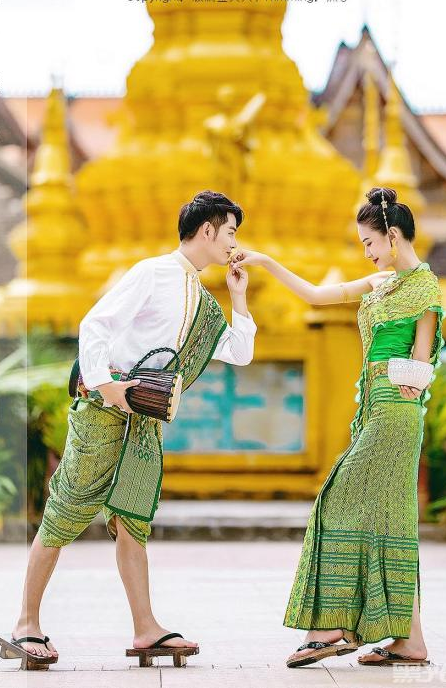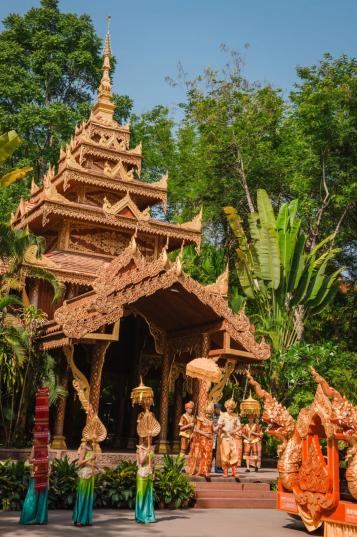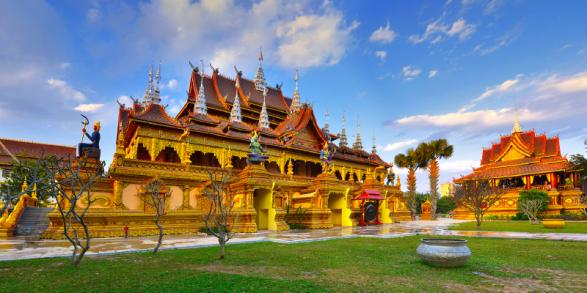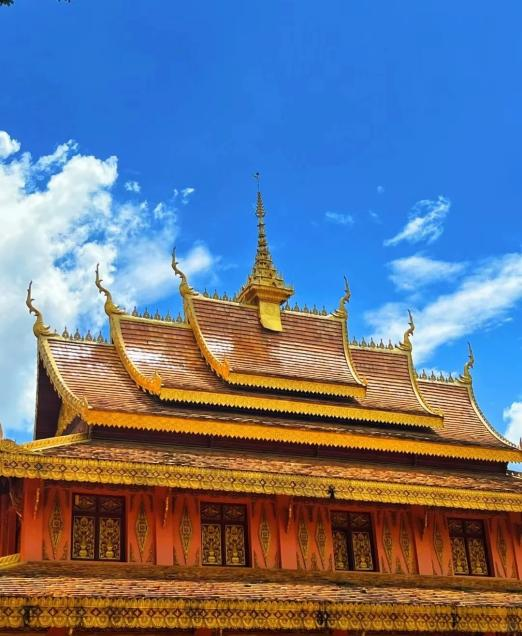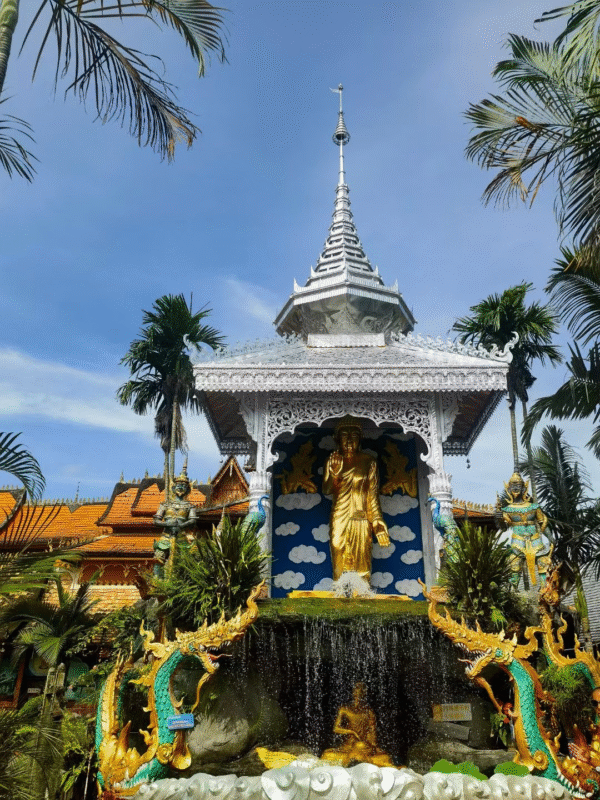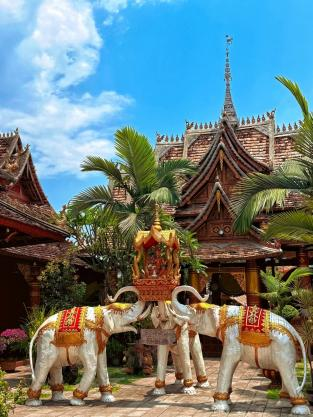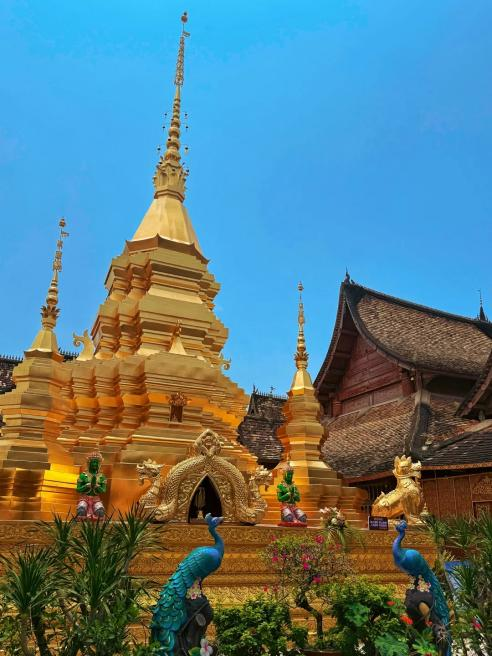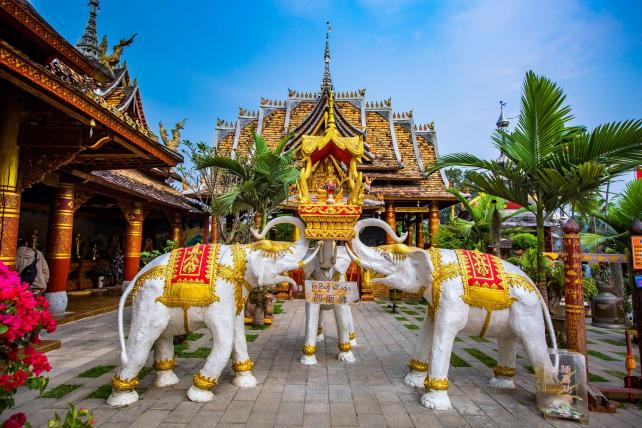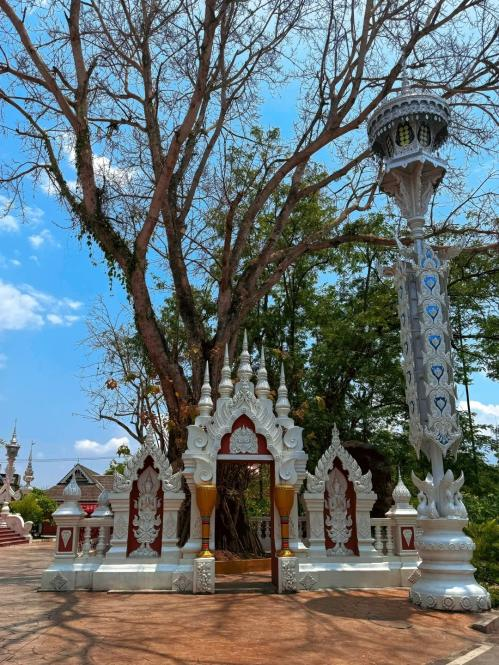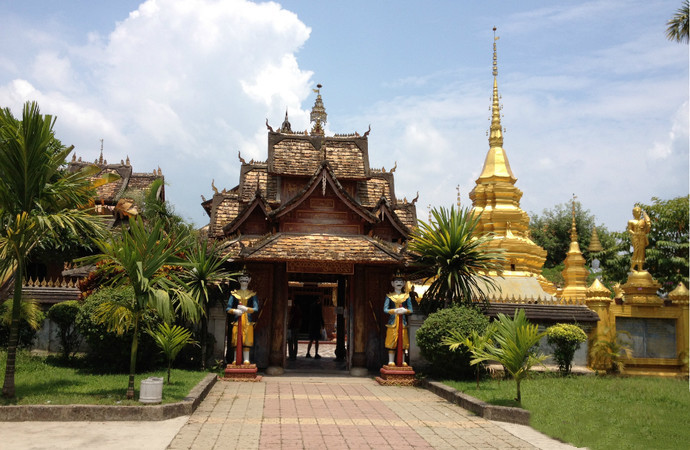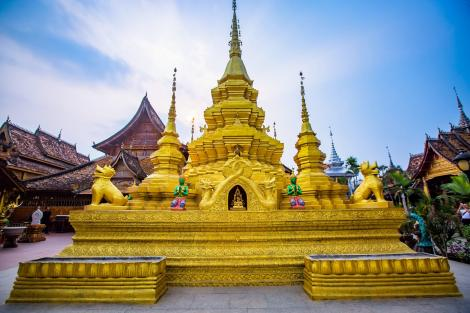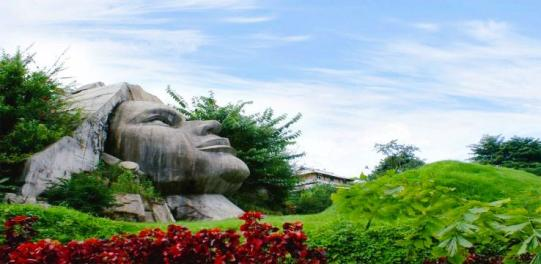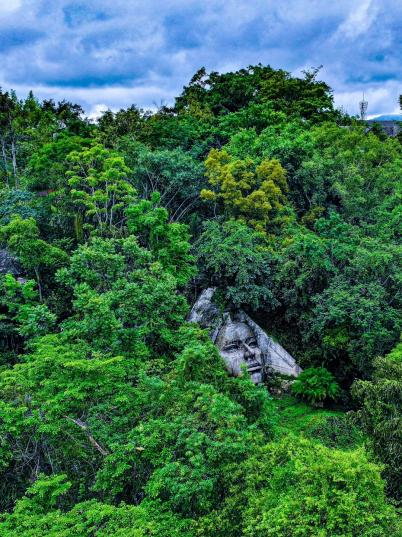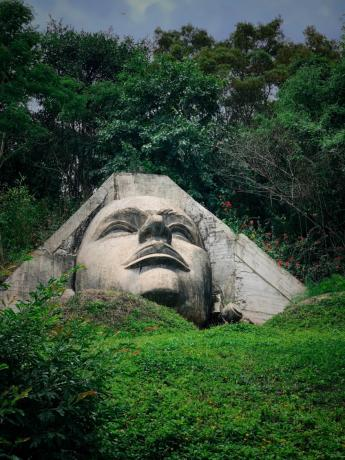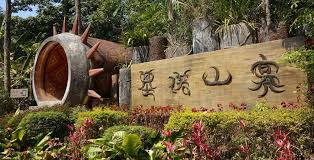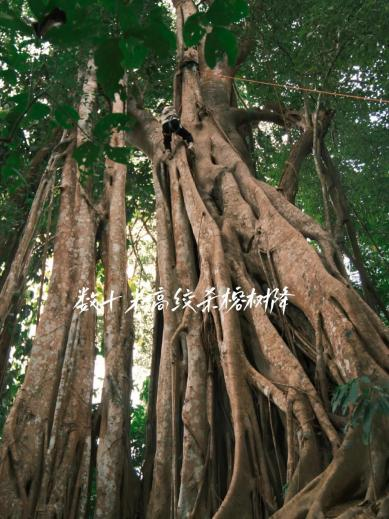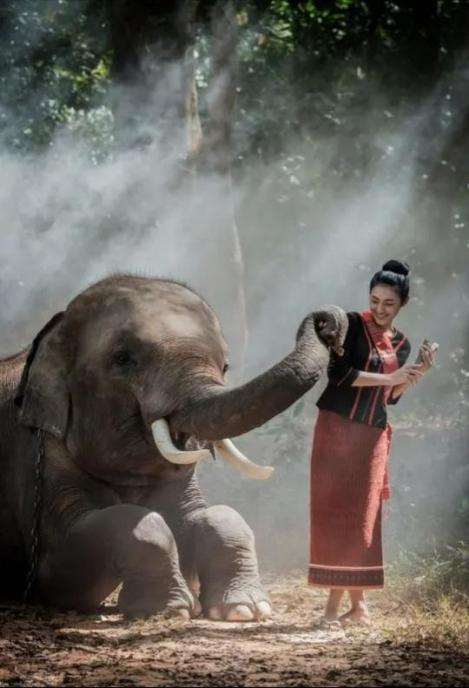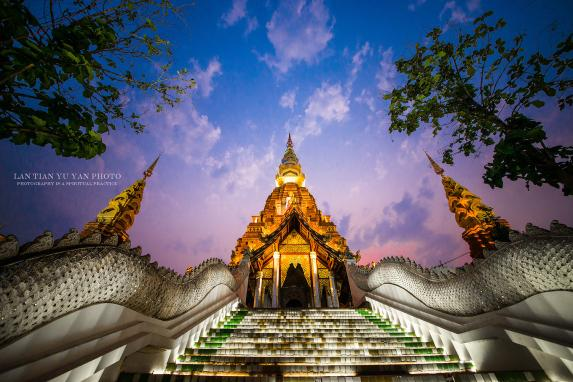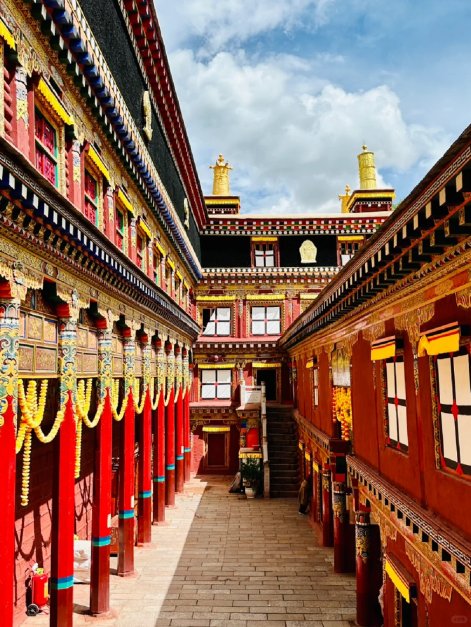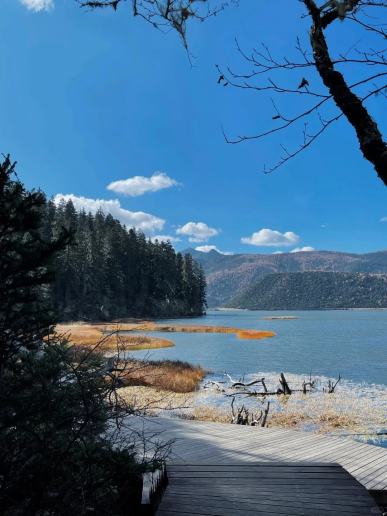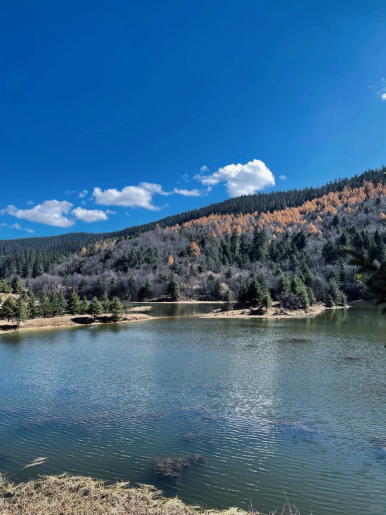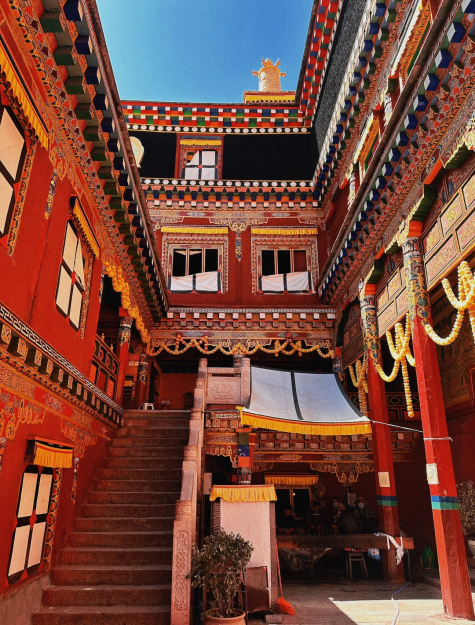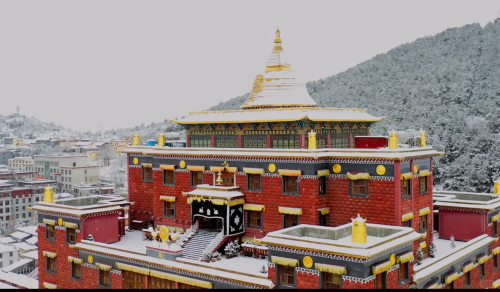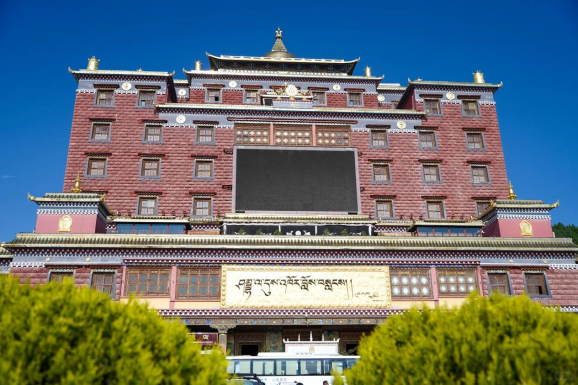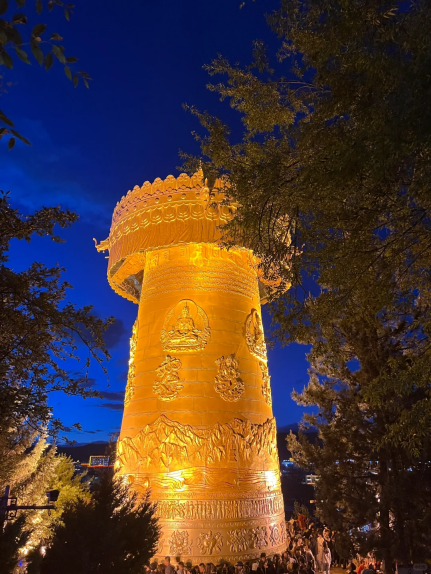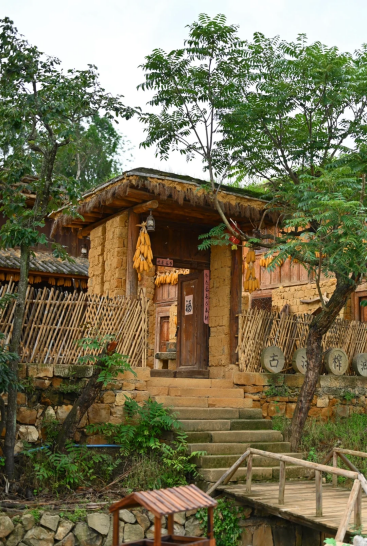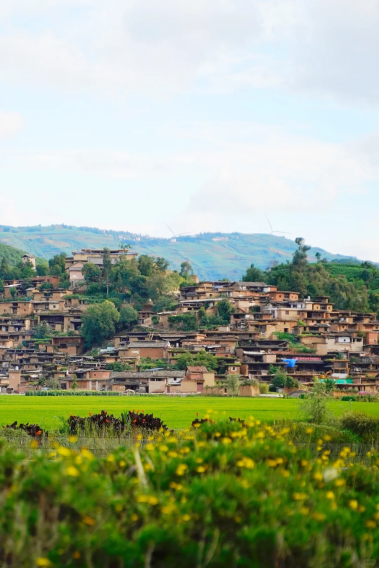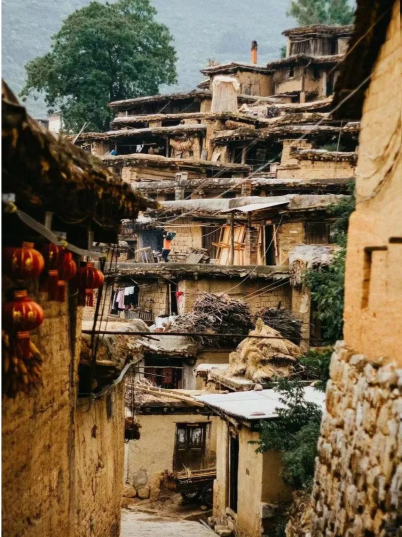Eight hundred miles northwest of Yunnan, the civilization from Bazi to Shenhu travels (10 Days)
10 Days 9 Nights- Flower pick-up
- Customized welcome card
- Seasonal travel photography
- 24-hour butler service
- Make the bed with flowers for the wedding night
- Guests will be given a birthday cake on their birthday
Overview
When the morning mist of Dianchi Lake was still soaked in the bronze rust of the ancient Dian Kingdom, Bimo of Chuxiong had already lit the chapter of the Yi creation epic “Meige” with a torch; Along the hoof prints of the ancient tea horse road to the west, the Fanzhong of Nanzhao between Cangshan and Erhai Lake echoed in the wind and snow, and the tie-dyed banlan root blue in the hands of Bai Aniang sank into the soft waves of Erhai Sea with the reflection of the three towers. Under the snow line of the Jade Dragon Snow Mountain, Naxi Dongba used hieroglyphs to transcribe “Lu Pan Lu Rao” on a century-old leather paper, and the stone road of the ancient city of Lijiang is still covered by the descendants of the Ma Gang out of the tea and salt years.
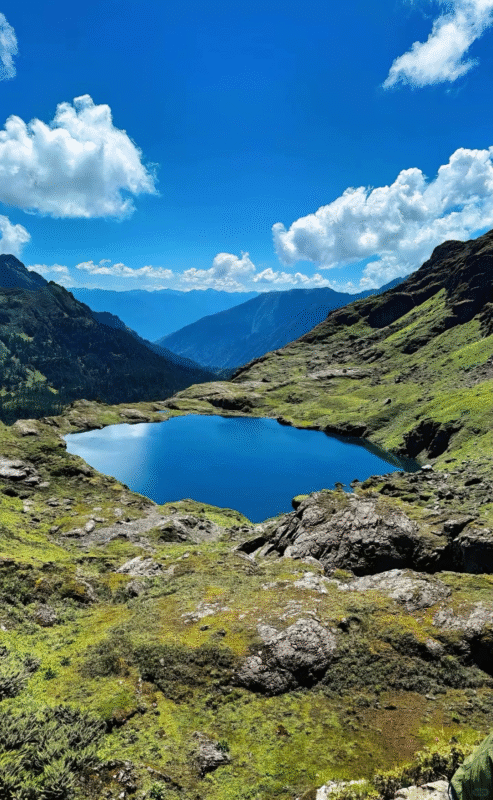
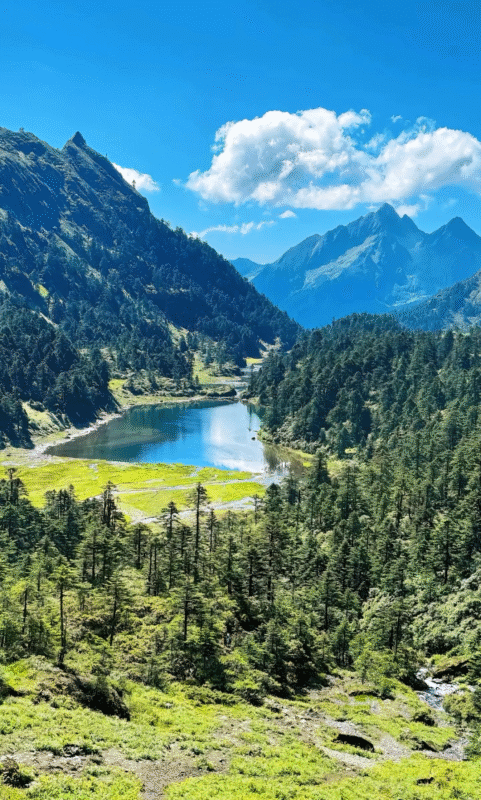
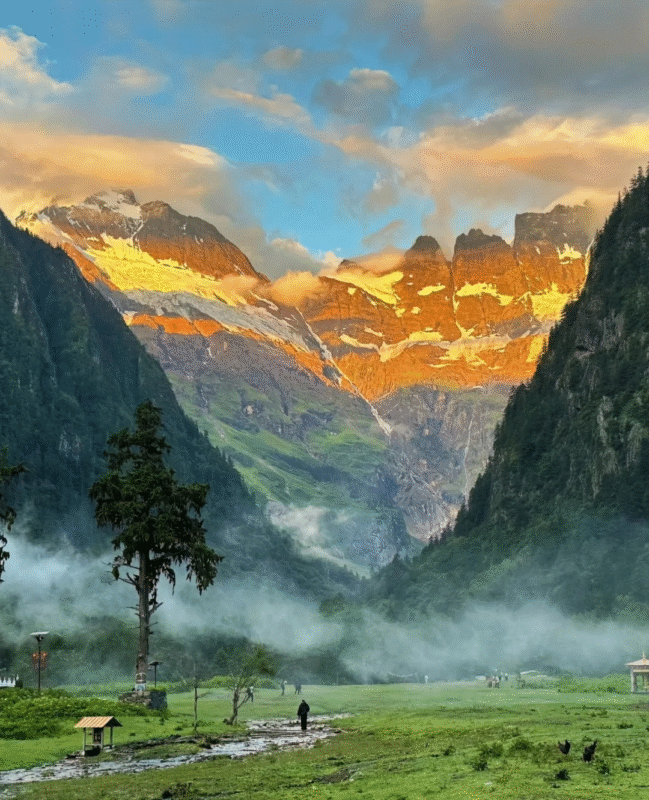
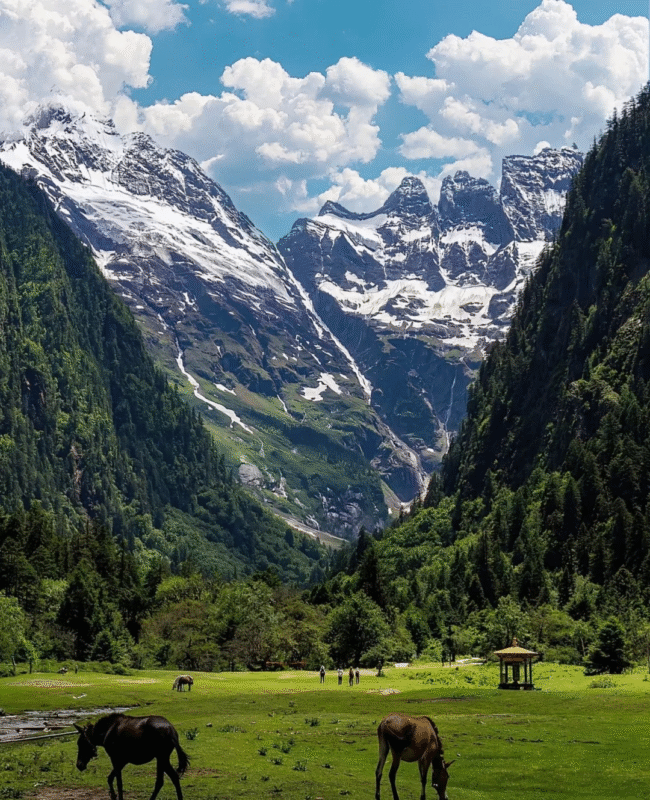
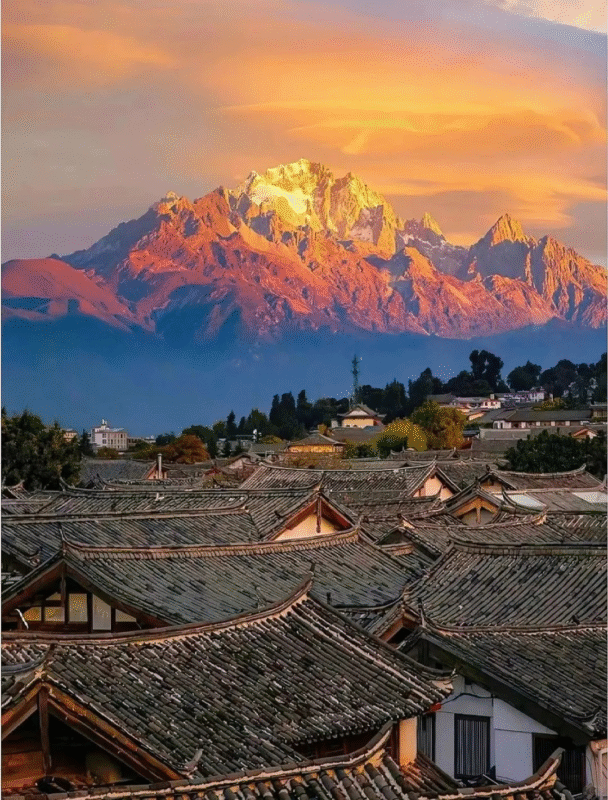
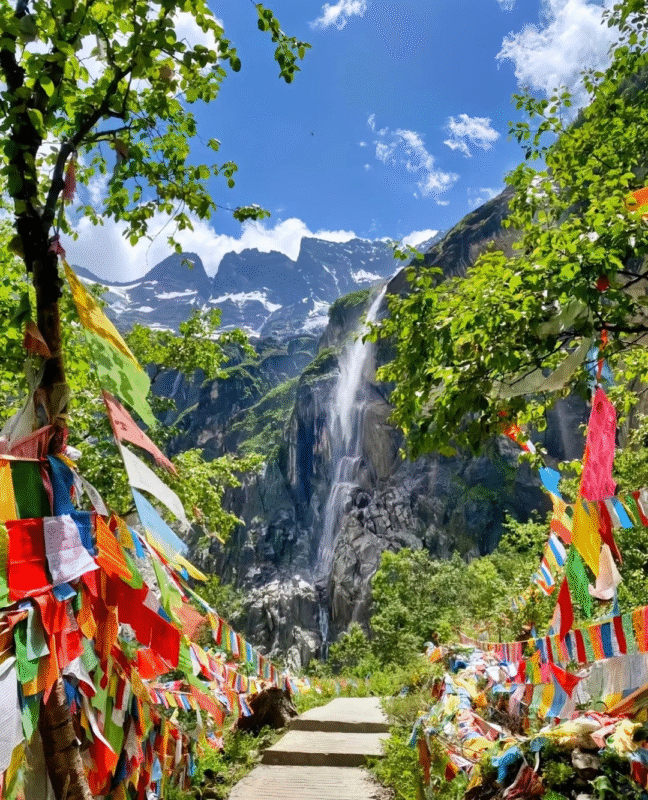
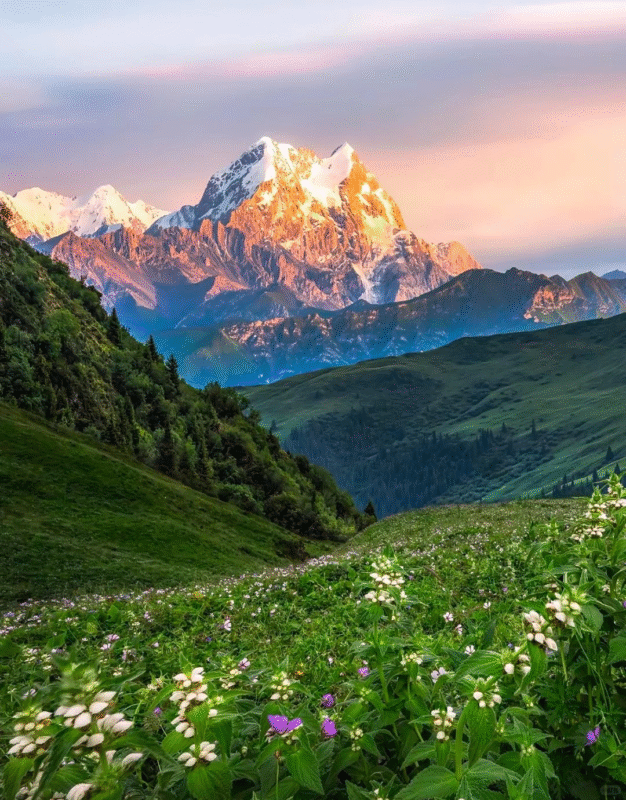

To the north, the prayer wheel of the ancient city of Dukezong rotates the six-character mantra of Tibet, and on the shore of the capital lake in Pudacuo, the yak bell shakes up the primeval forest where pineapples hang – that is the breath of the Blue Moon Valley in “Lost Horizon”. Turning to the east, Ninglang of Xiaoliang Mountain brought out the tartary buckwheat and cobblestone meat of the Yi people, and a piece of glass suddenly opened at the end of the mountain road: the pig trough boat in Lugu Lake cut through the morning mist, and the fire pit of the Mosuo grandmother’s house, the sweet fragrance of Surima wine wrapped in the wedding song rose. The pig fat hanging on the fire pit is engraved with annual rings, and the hostess of the wooden flute room twists the pine needles to tell how the matrilineal bloodline weaves the warp and weft of the daughter’s country.
Along the way, the porcelain of the Han region, the Tibetan Buddha, the fire of the Yi people, and the boat of the Mosuo were melted into the soul of northwest Yunnan in the folds of the Hengduan Mountains – the mountains and rivers are not old, and the old people are still the same, and the eight hundred miles of clouds and moon are just a scoop of drink in the long river of civilization.
Highlights
- Panorama of Yunnan: Stone Forest/Dali/Lijiang/Shangri-La, enough to play at one time
- Stone Forest Scenic Area: In the Yunnan Stone Forest Scenic Area, 2.7 billion years of geological changes are condensed in one stone, and the limestone pillars such as sword-shaped, gui-shaped, and mushroom-shaped constitute the "first wonder of the world", and the karst caves and dissolution lakes are combined to form the "World Karst Museum", and the legend of Ashima adds romantic and humanistic charm to it
- Jade Dragon Snow Mountain: Famous for its magnificent glacial landforms, vertically distributed vegetation belts and mysterious Naxi culture, it is one of the first 5A-level tourist attractions in China
- Taste all over Yunnan's special food, Check in the most original taste of Yunnan's ethnic minorities, Yunnan cross-bridge rice noodles, Catch the horses and chickens, Flower feast, Toast feast
- Luxury accommodation: Ctrip 4 diamond boutique light luxury hotel throughout the whole journey + 1 night at a Wyndham hotel
- In-depth play: Jade Dragon Snow Mountain/Blue Moon Valley/Tiger Leaping Gorge in the first bay of the Yangtze River/Pudacuo Park/Dukezong/Napa Sea
- A different experience, play a different Yunnan
- VIP private yacht aboard Kinso
- Watch the large-scale performance "Impression of Lijiang"
- Mabang Jianghu performing arts
- Jade Dragon Glacier Cableway
- Night tour of the old town of Lijiang
- Ethnic costume travel photography: Flower Sea Travel Photograph
- Support halal dining, Meet the Muslim family to travel in Yunnan, Halal catering and accommodation are guaranteed throughout the proce
Itinerary
Meal arrangement: There is no meal schedule today
Upon arrival at Kunming Changshui International Airport, our staff will arrange a transfer to your hotel. If time permits, it is recommended that you go to visit the Kunming landmark "Army Lecture Hall" located in the center of Kunming, and you can also go to Shuangqiao Night Market to taste Yunnan special snacks: feel the special stinky tofu, come to a bowl of fragrant small pot rice noodles, the freshest all kinds of juices, dazzling Yunnan snacks, hundreds of varieties for you to choose from, and feel the atmosphere of "Spring City" at the same time!
Warm tips:
★ When you check in to the hotel to pay attention to rest, do a good job of physical reserves, especially the first time on the plateau of the VIP, please note not to strenuous exercise and excessive drinking, today is not arranged group meals, you can taste Yunnan snacks by yourself.
★ When registering, please leave your mobile phone number during the tour, so that the tour guide can contact you and strive to receive you at the airport exit as soon as possible.
Dining arrangement: breakfast hotel buffet, Chinese flower banquet, dinner long street banquet.
After breakfast at the hotel, gather and set off for the national 5A-level tourist attraction - [Stone Forest Scenic Area] (free scenic battery car).
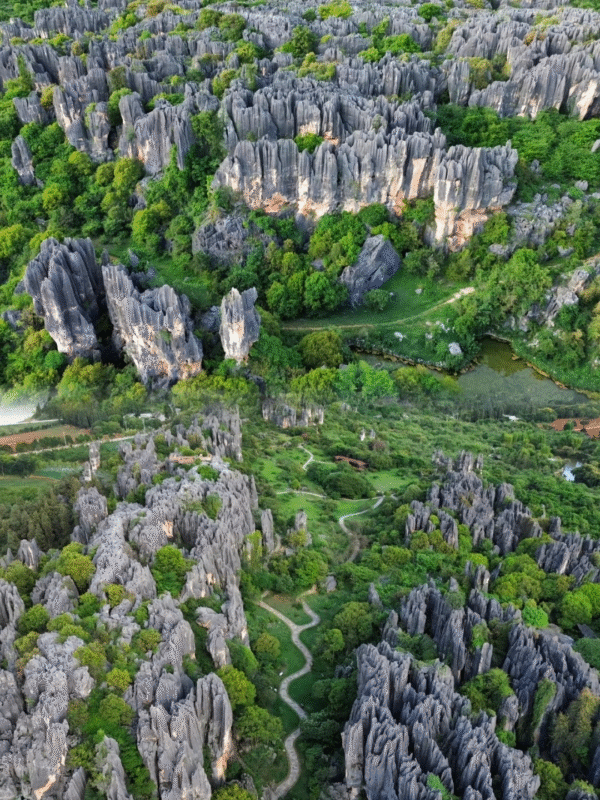
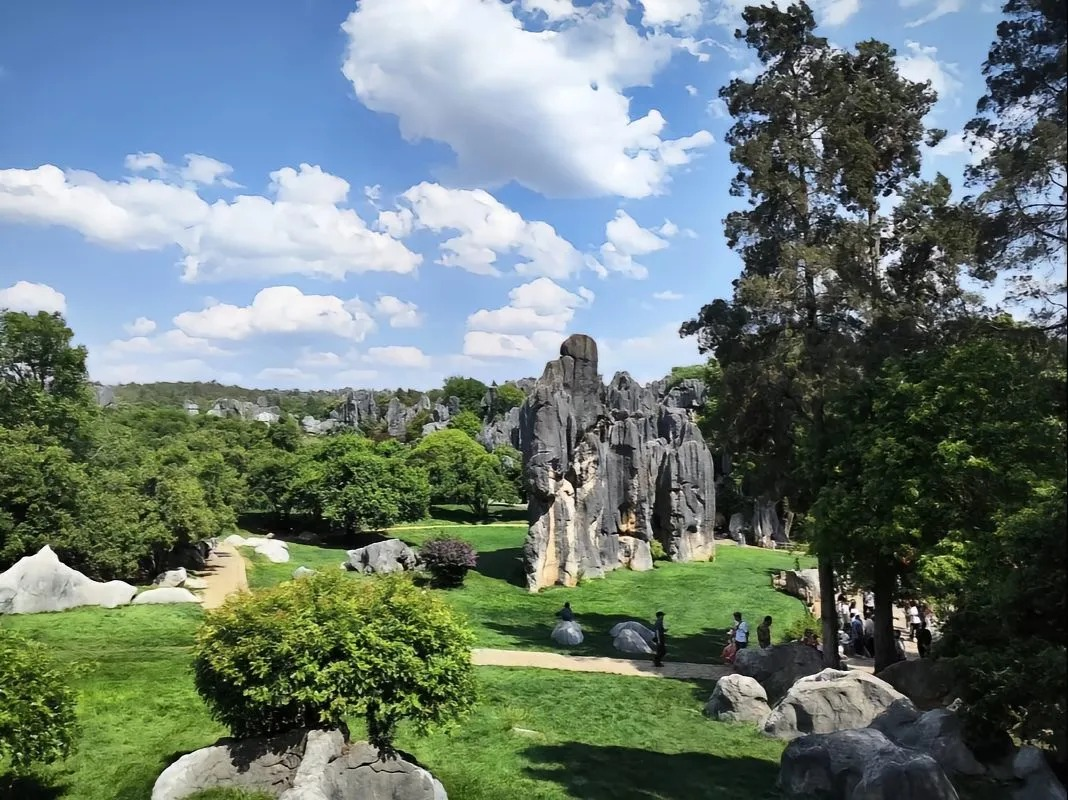
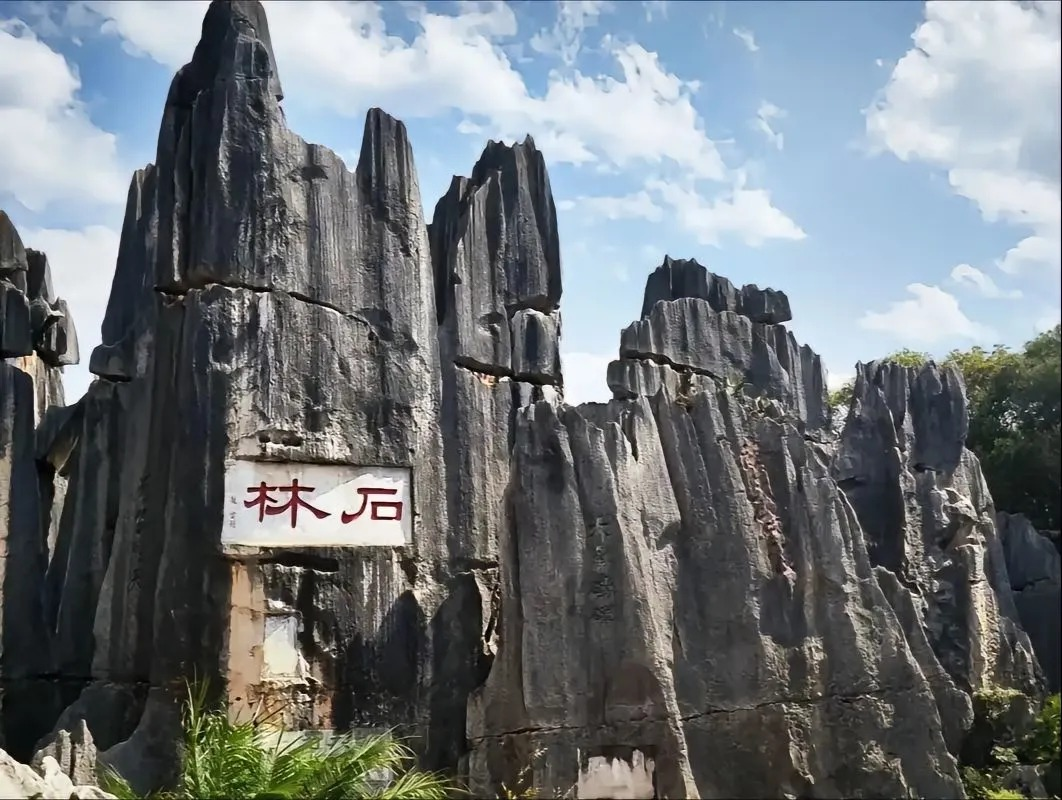
Located in Shilin Yi Autonomous County, Kunming City, Yunnan Province, about 78 kilometers away from Kunming City, Stone Forest Scenic Area is a world natural heritage site, a world geopark, and one of the first national scenic spots and national 5A-level tourist attractions in China. Its karst landform was formed in the marine environment about 270 million years ago, and through the uplift and dissolution of the earth's crust, it has shaped a group of sword-shaped stone peaks in a variety of forms, which is known as "the first wonder of the world" and "the natural museum of modeling landforms", which is not only a living teaching material for the evolution of the earth, but also writes a geological epic with 100 million years of stone peaks; It is also a temple of Sani culture, conveying the national spirit through the legend of Ashima.
The strange peaks in the stone forest are handsome, the clear water and blue sky, the spring flowers are blooming, poetic and picturesque, strolling through the forest paths, enjoying the natural bonsai, and experiencing the fairyland of the world. The karst landform of the stone forest was formed 270 million years ago, and the scenic area is about 350 square kilometers, with strange stones, lakes, waterfalls, streams, and karst caves all over the territory, and the scenery is breathtaking. Standing on the Wangfeng Pavilion, you can see the surrounding stone peaks standing in a forest, overlapping and overlapping like ten thousand horses galloping, "flying stone", "phoenix flowing wings", "double bird crossing food", "fairy clothes hook" and other scenic spots are in full view, which is dizzying. You can also meet the incarnation of "Ashima" in the small stone forest.
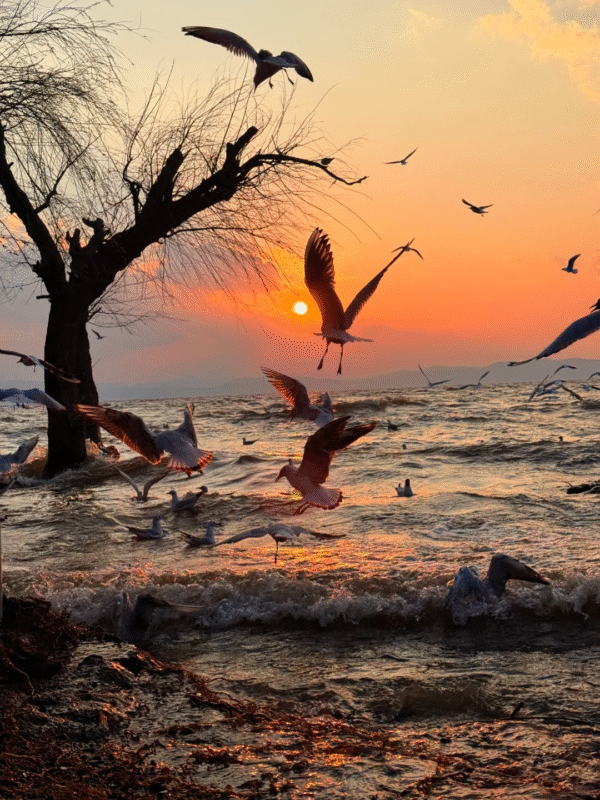
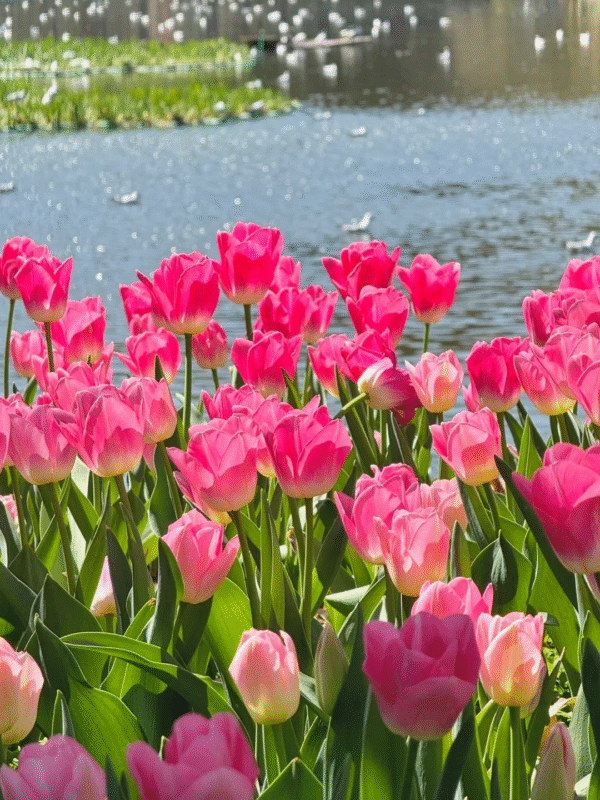
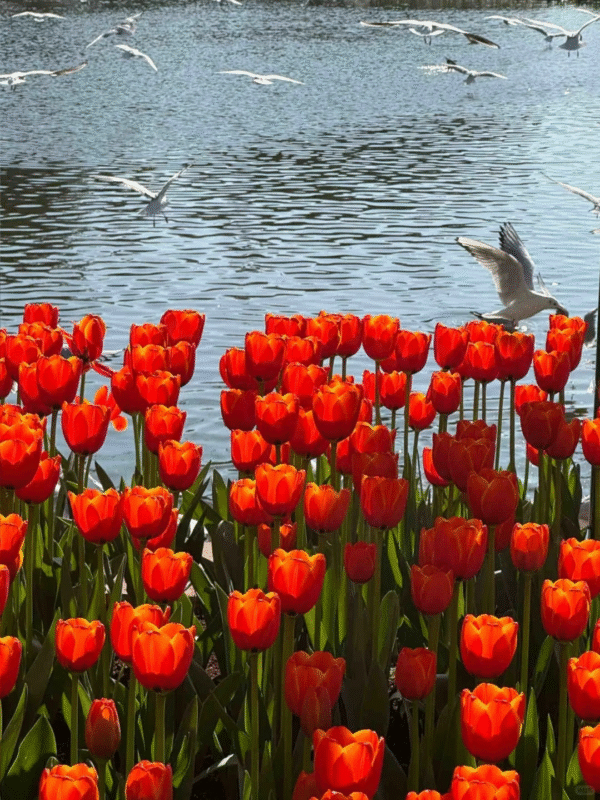

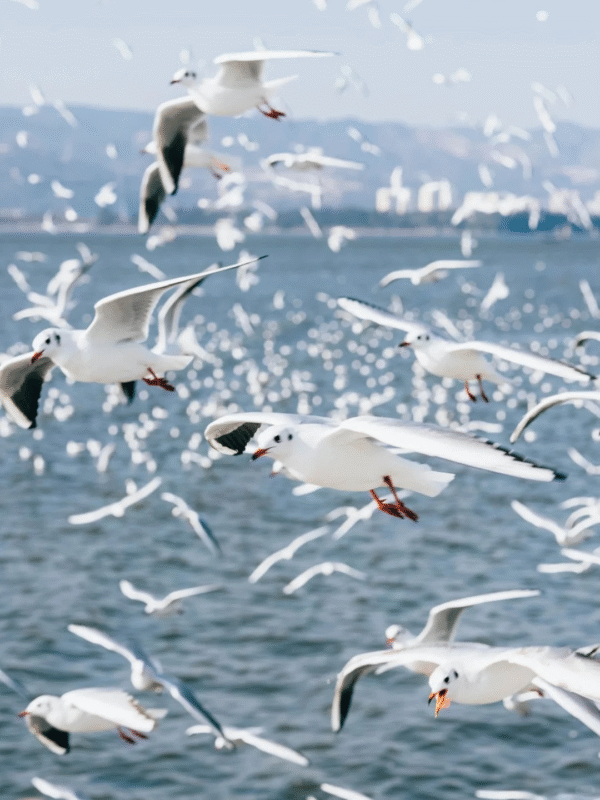
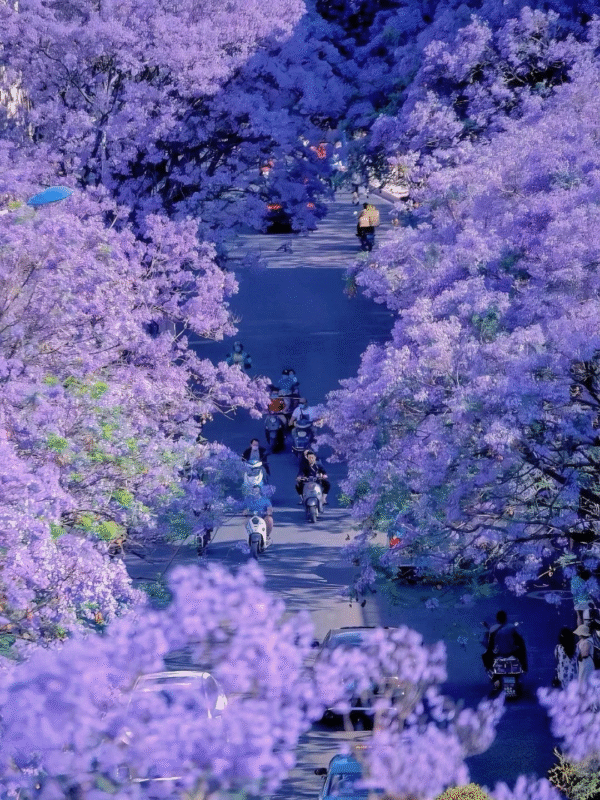
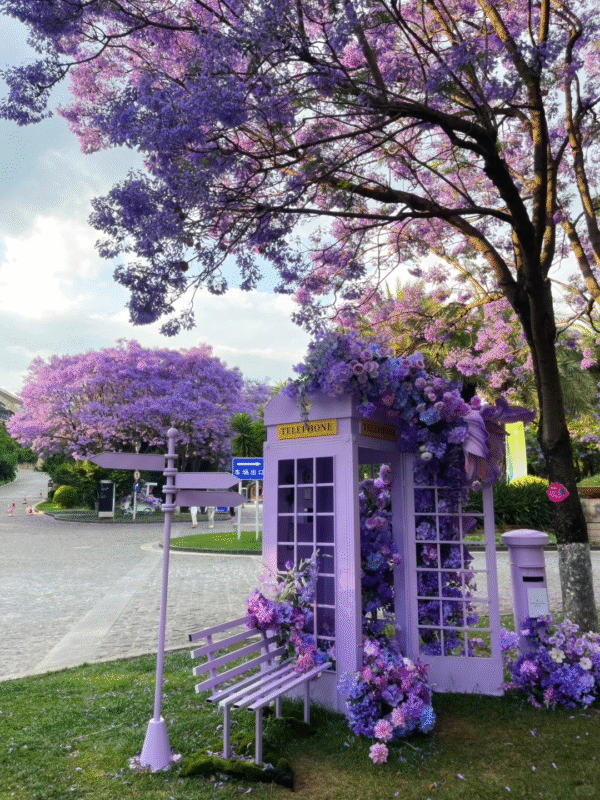
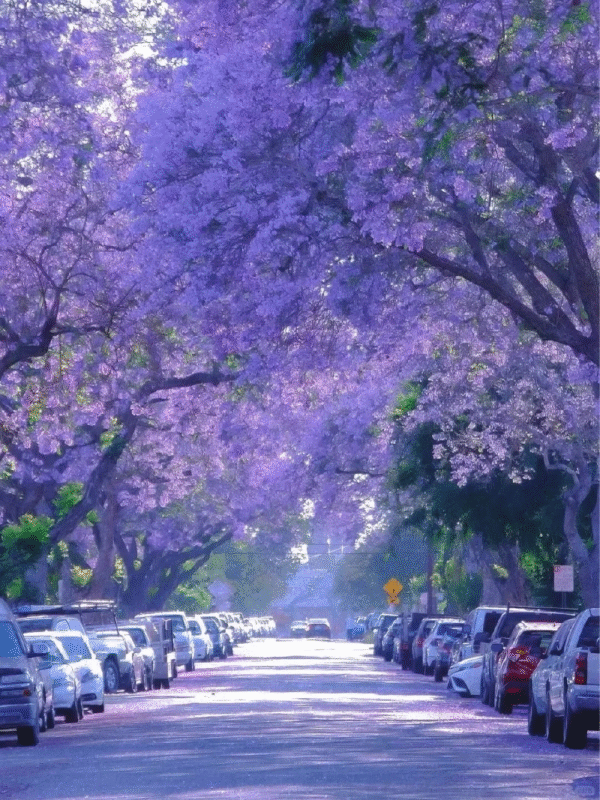
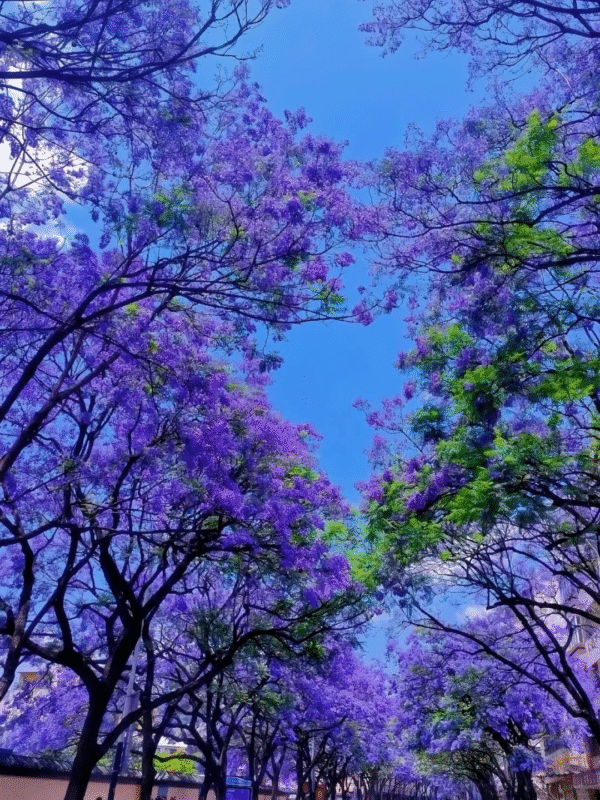
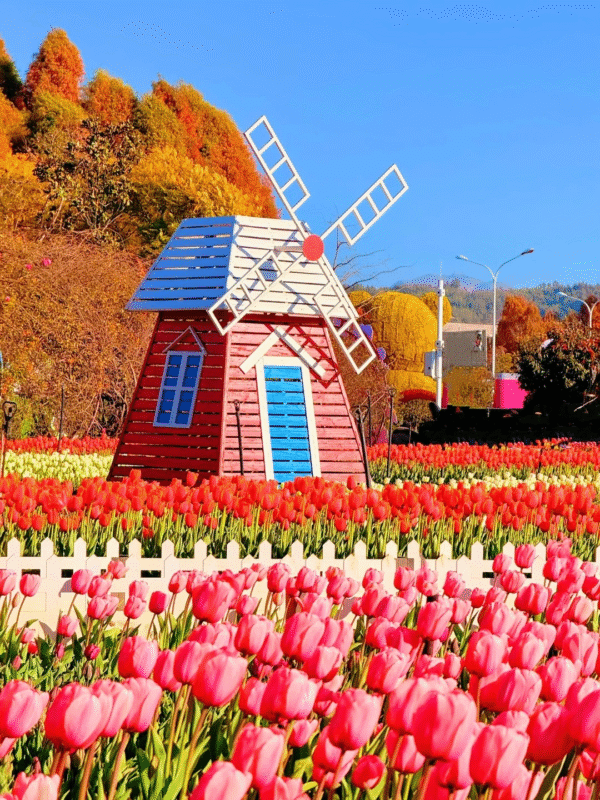
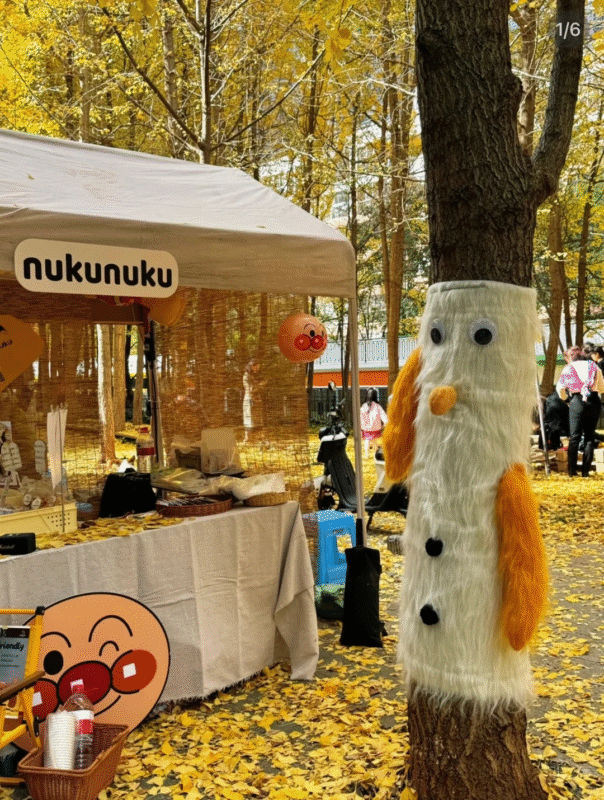
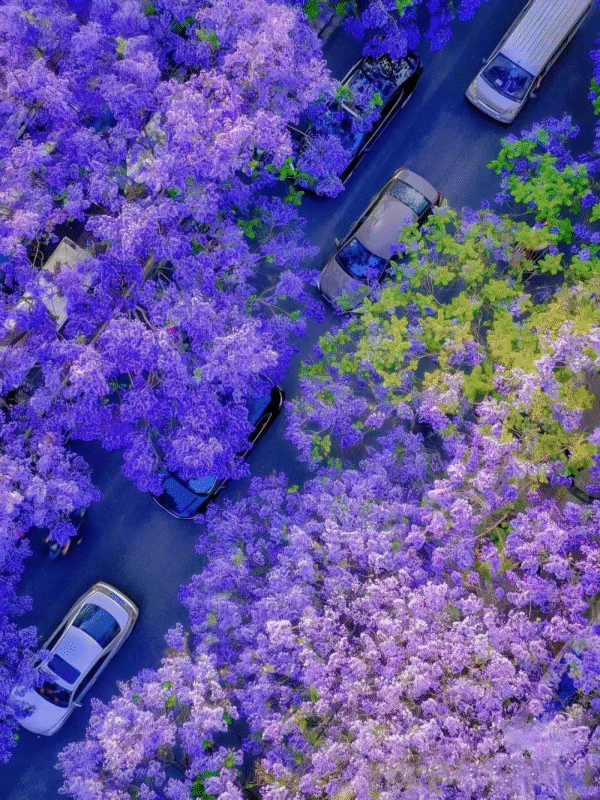
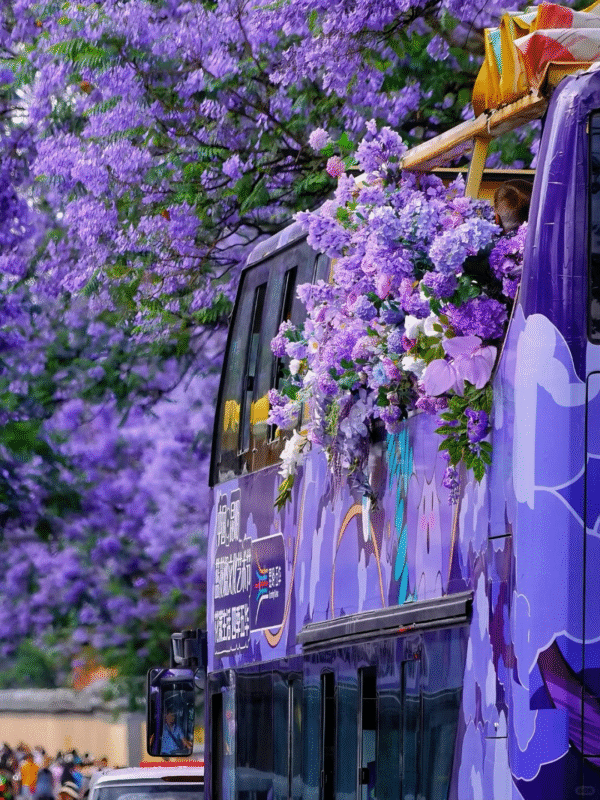
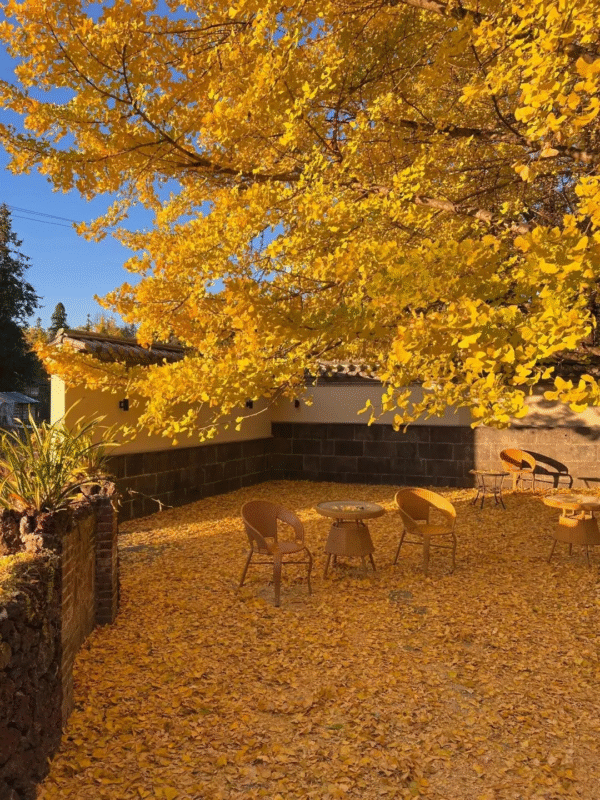
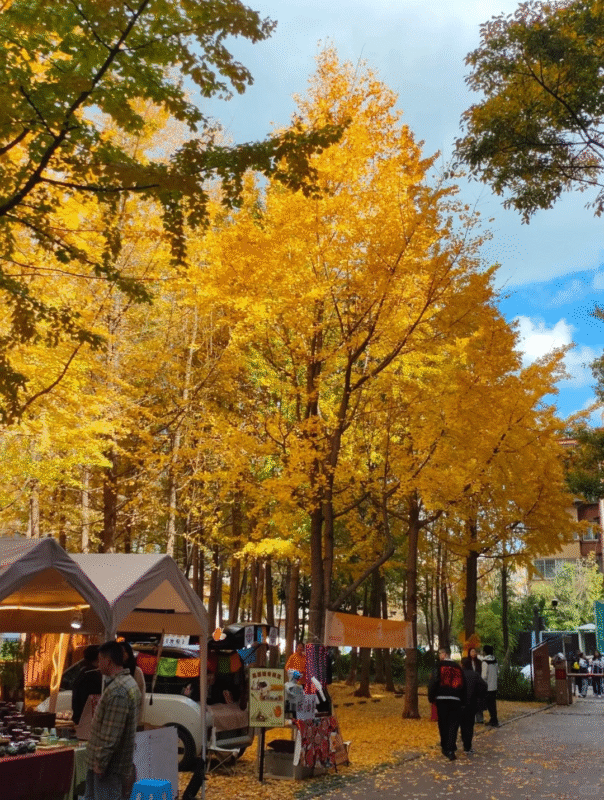
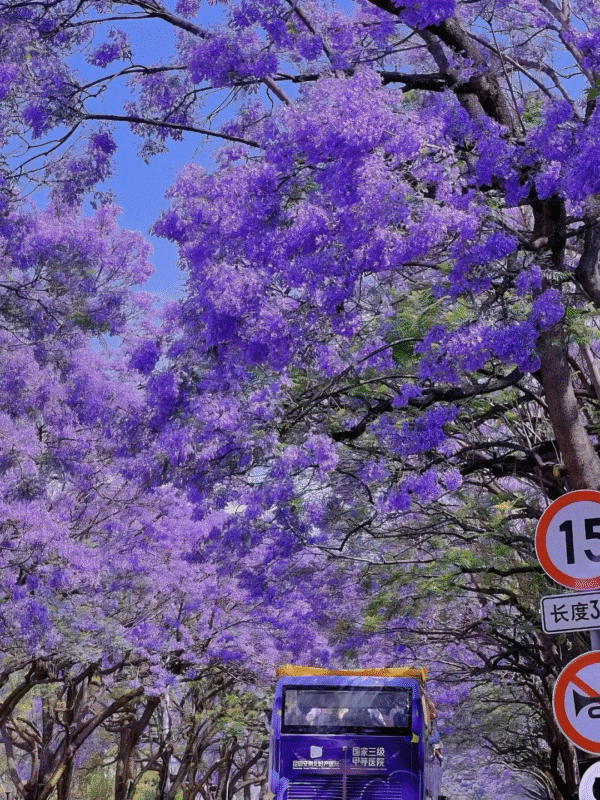
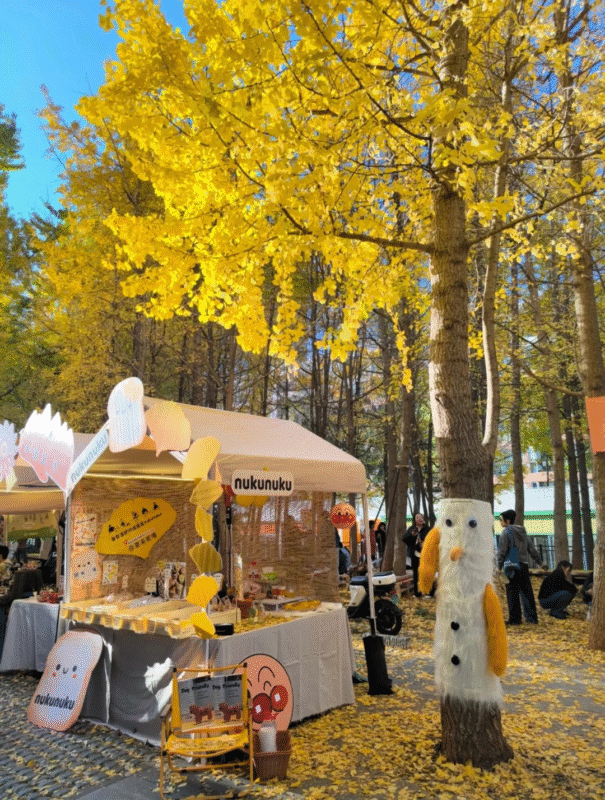
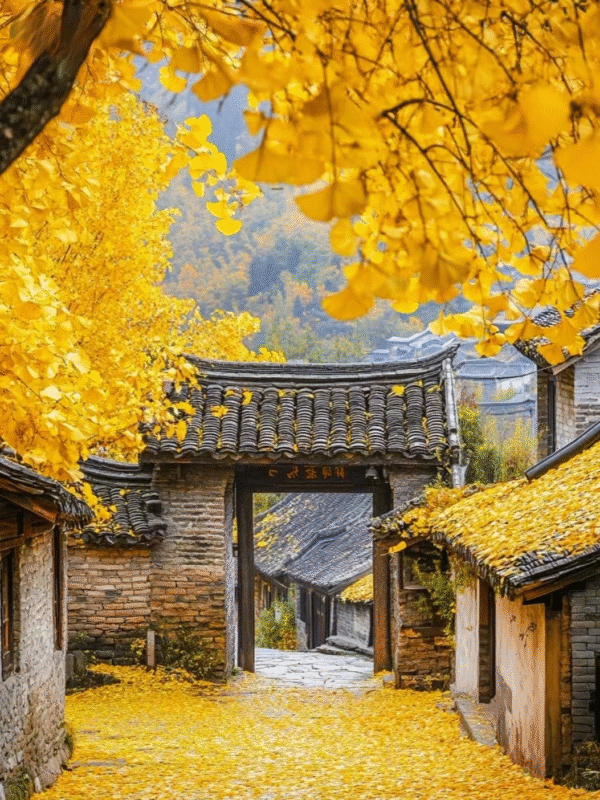
After lunch, go to Kunming scenic spots, the season blind box is limited, (the scenery of Yunnan has four distinct seasons, there are colorful tulips in spring, intoxicating purple jacaranda in summer, golden and brilliant ginkgo trees in autumn, and Siberian seagulls that never miss an appointment in winter) according to different seasons to arrange different attractions for everyone, so that you can have a mysterious colorful trip to Yunnan. (3 free digital photos)
In the afternoon, take a car to Chuxiong, follow the customs, walk into the Yi tribe, and carefully plan and experience the local customs of the Yi flavor festival [Long Street Banquet]: taste the special food taste of the Yi nationality, the cooking pot is strong, the tuotuo meat, buckwheat baba is extremely refreshing, the aftertaste is endless, drink the mellow and fragrant Yi Tujia wine, a domineering toasting song shows the boldness of the Yi people, and the simple smiling faces convey the enthusiasm of the children of the Yi family. After that, we will go to Chuxiong and check in to the hotel for rest.
The long street banquet, which is a long food dragon made of thousands of tables, is the core ritual of the Hani people in southern Yunnan to worship the god of the village and worship the dragon and pray for rain in the "Ang Ma Tu" festival, and it is also an epic of agricultural civilization flowing in the streets and alleys. It originates from the Hani people's reverence for the divine power of nature: every year in the tenth lunar month, the terraced rice returns to the warehouse, and the "Migu" (priest) in the village leads the people to kill pigs and sacrifice to the dragon tree, and the "dragon meat" is shared with the whole village, implying that the god of the village blesses all beings equally; After that, the family harvested in one year - yellow glutinous rice, three-color eggs, rice field fish, beef jerky and other nearly 40 kinds of mountain and wild flavors - set up a table along the street into a feast, winding like a dragon, which is not only a gift to the dragon god who blesses the water source, but also weaves a bond of unity in the village in "concentric rice and concentric wine". During the banquet, the old man beats the drum and recites the ancestors, the young people sing the song, and the outsiders can all sit and drink together, this unbounded inclusiveness makes the long street banquet become the living carrier of the Hani people's cosmology of "people and gods are happy together, and neighbors are happy".
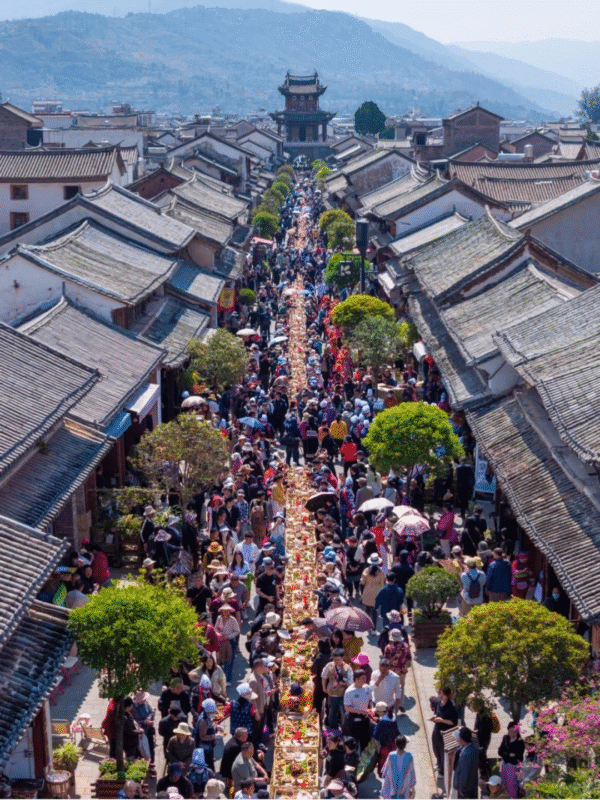
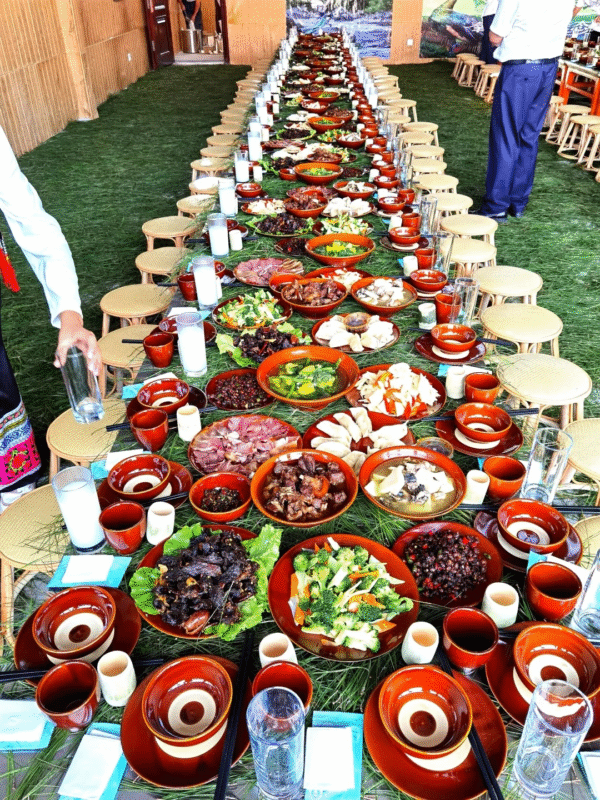
Warm tips:
★ Today's drive is hard, please cooperate with the tour guide and keep a good mood. In case of motion sickness, please take precautions in advance.
★ During the tour, pay attention to non-slip, do not climb the pinnacles, rocks and protective fences to avoid accidents.
Dining arrangement: breakfast hotel buffet, Chinese Group Meal, Dali's Speciality: Roast Chicken on Horseback
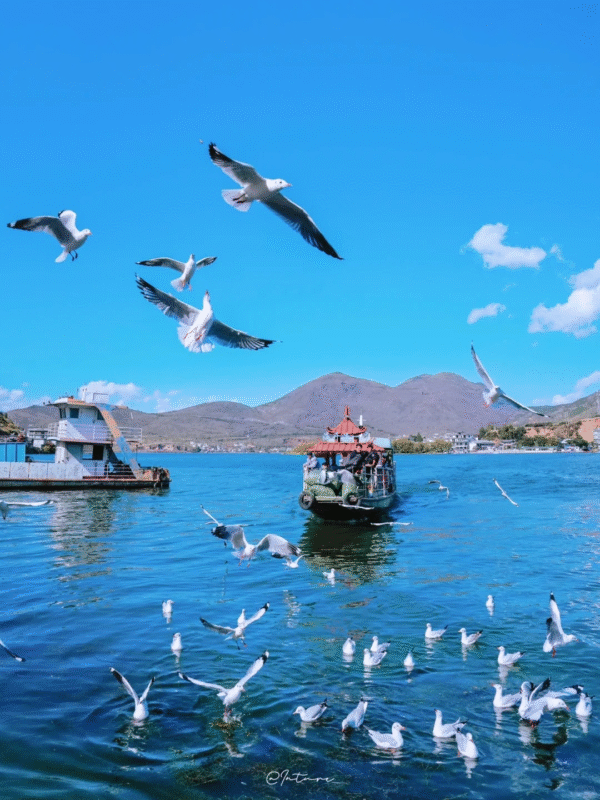
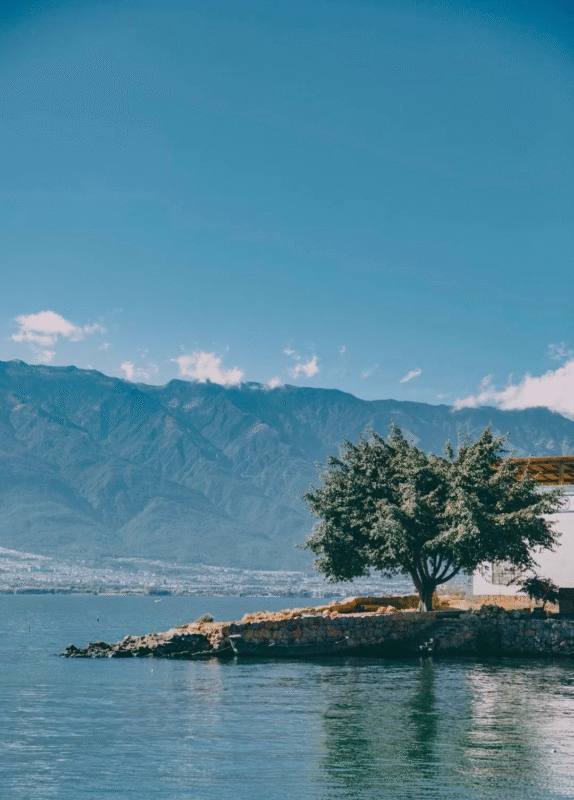
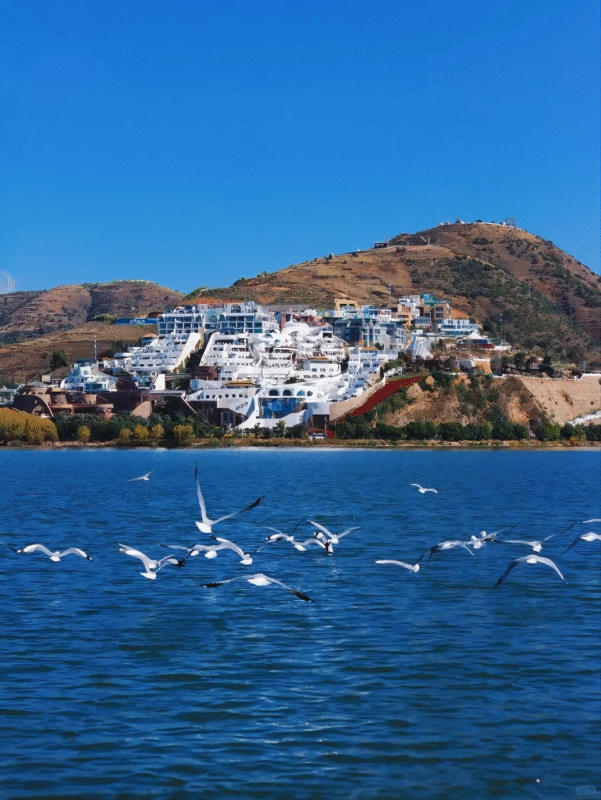
Jinsuo Island, the shape is named after the weaving Jinsuo, the whole island is 2.5 kilometers long, it is the only island with aborigines among the three islands of Erhai Lake, it is known as the living museum of the Bai nationality in the Erhai Sea for thousands of years, this island is ignored by tourists, it is actually a miniature bonsai of the Erhai civilization - because it is surrounded by water on all sides, it retains the life form of the Bai nationality since the Ming Dynasty more completely, and the unique "cave in the island" wonder (the Longgong cave runs through the mountain), the Bai fishermen regard it as the residence of the dragon king of Erhai Lake.
When the sunset dyes the fishing nets gold, you will hear the most original Bai ancient song "Haidong Tune" rippling in the waves.
Wake up early and take the [VIP private yacht to Jinsuo Island] (about 30 minutes to experience the yacht around the island) to visit the beautiful Dali Royal Summer Palace [Dragon Palace Scenic Area] to enjoy the Bai song and dance performance.
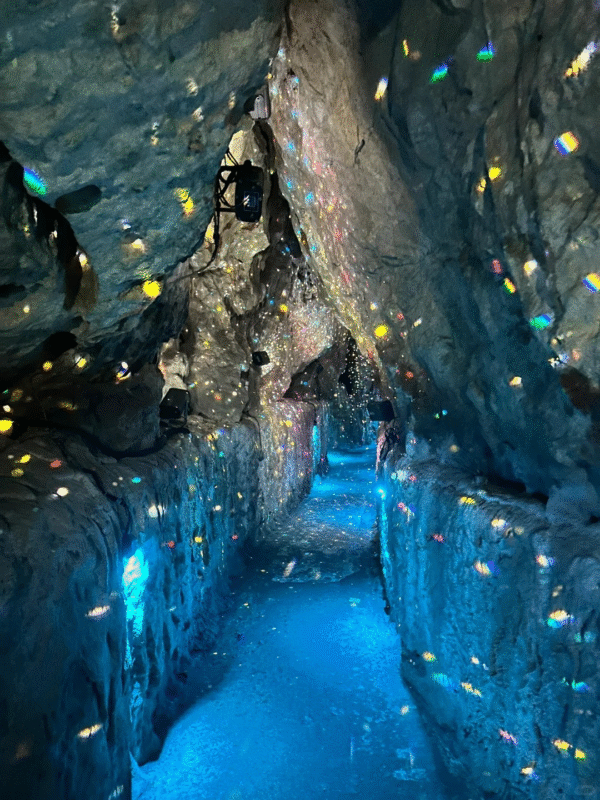
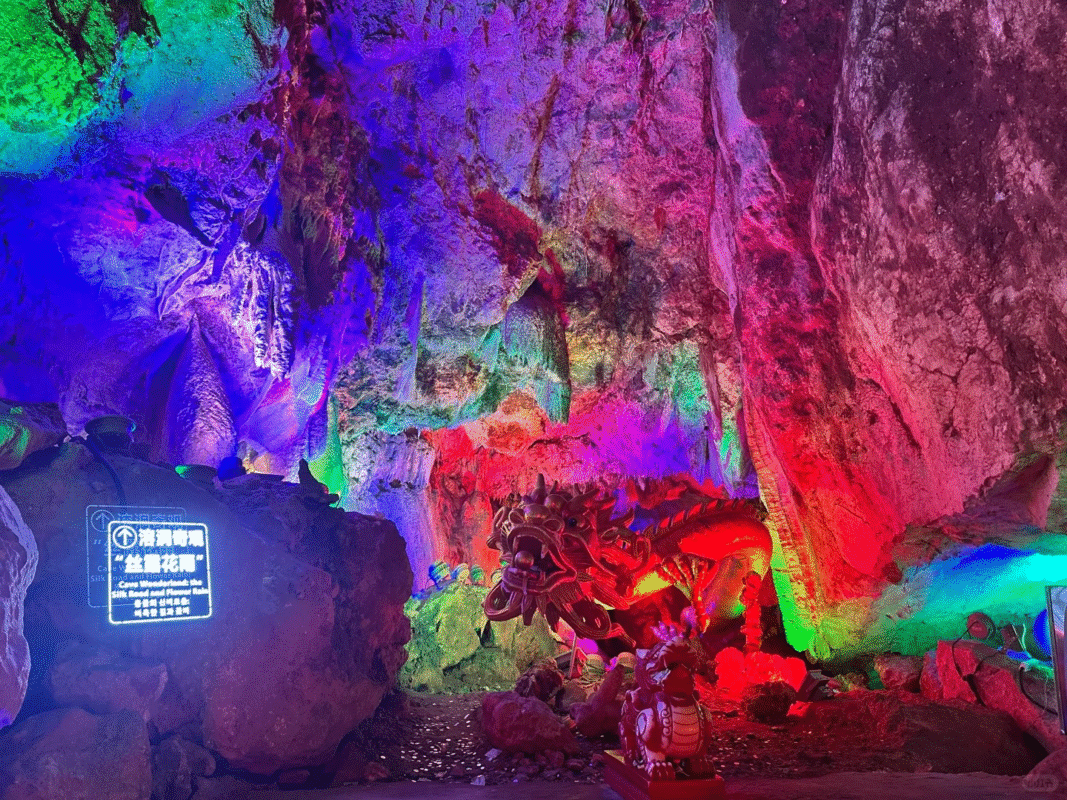
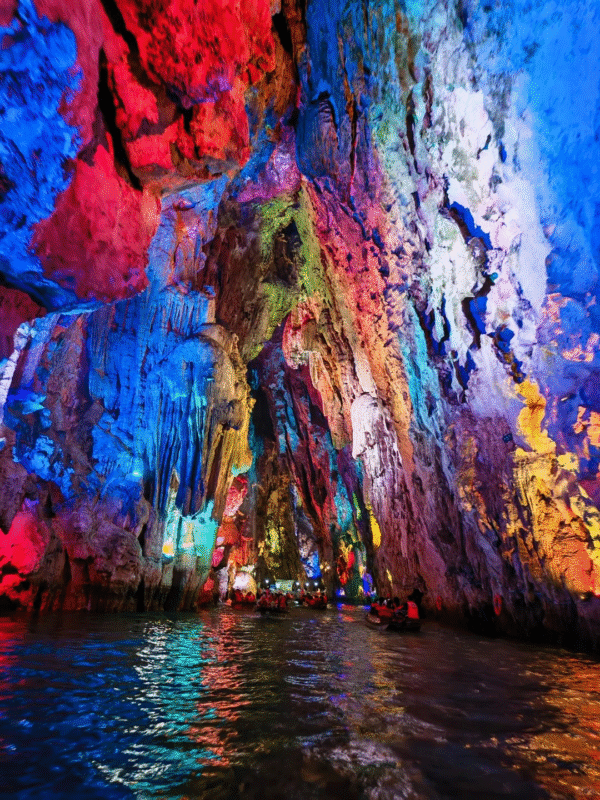
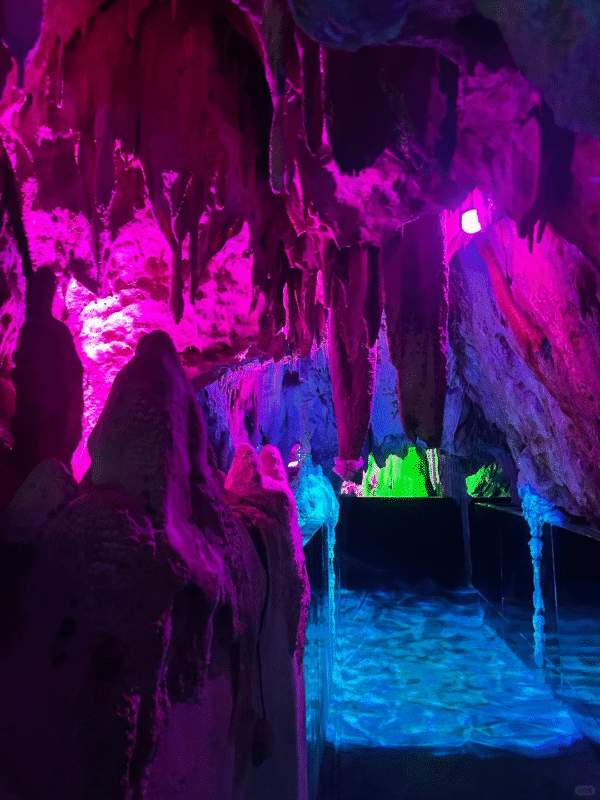
The Dragon Palace is a natural underground cave formed in the island, the so-called island in the sea, there is a hole in the island, and there is a view in the hole, which is beautiful. Experience the comfort of being in a paradise on the island, and experience the folk customs that have been preserved for thousands of years, let us feel the water rafting in this quiet fishing village, and take in the scenery of Erhai Lake. In the Longgong Cave, enjoy the [Song and Dance Show "Sea Cauliflower"] with the theme of sea cauliflower growing in clean seawater, divided into four chapters: "Flower of the Sea", "Fishing Dance", "Net Dance" and "Fish Tune", relying on the life customs of fishing, fishing and shipping in Erhai Lake for generations of fishermen on Jinsuo Island, using artistic techniques to show the happy and peaceful life of the Bai people represented by Jinsuo Island, as well as the beautiful picture of protecting Erhai Lake, caring for the environment, and harmonious coexistence between man and nature, and praising the splendid Bai culture of Dali. Strong ethnic customs, unique natural scenery.
Note: Jinsuo Island battery car does not belong to the battery car project in the itinerary, and tourists choose it voluntarily according to their own situation.
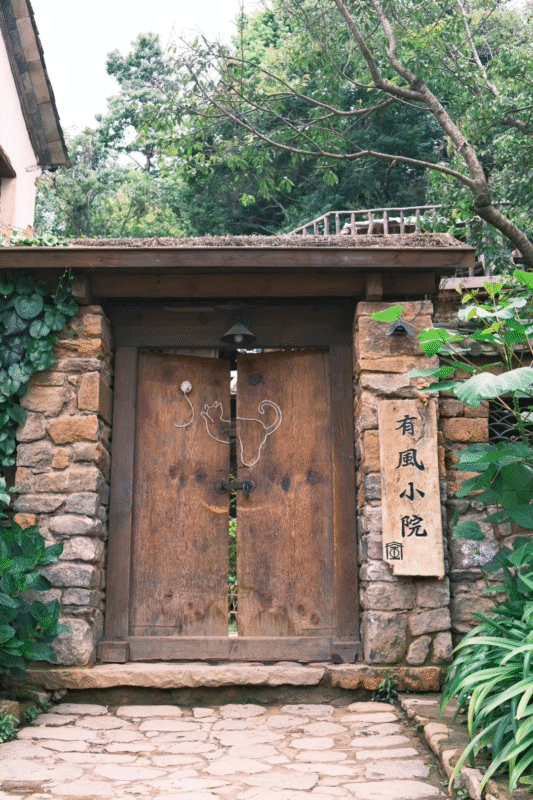
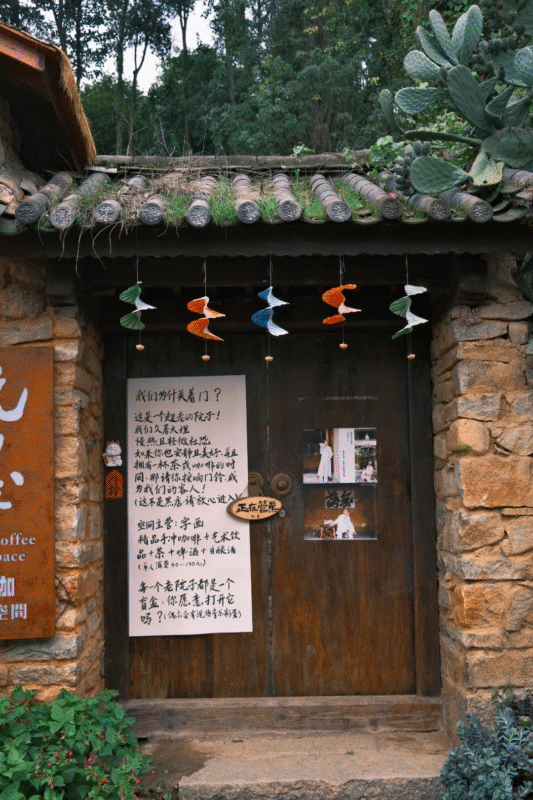
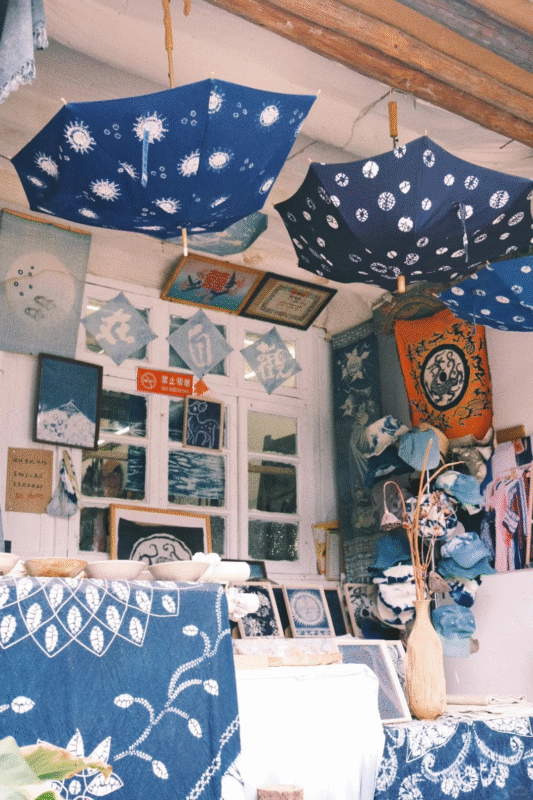
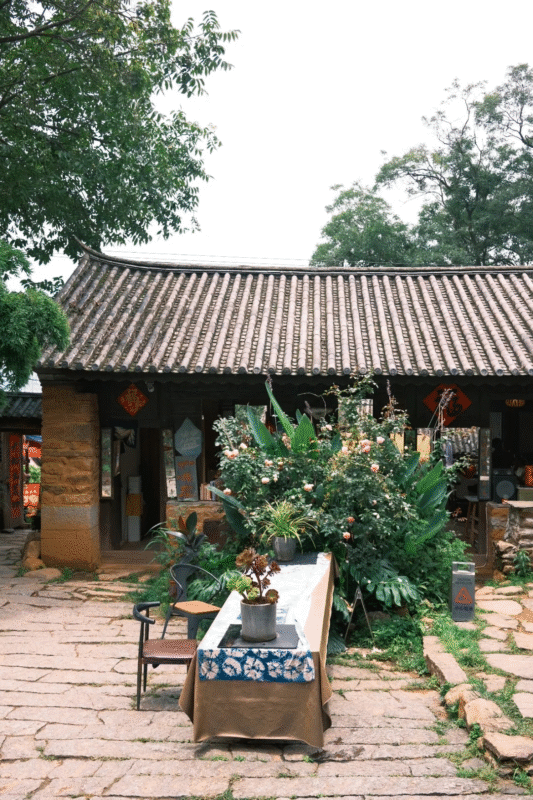
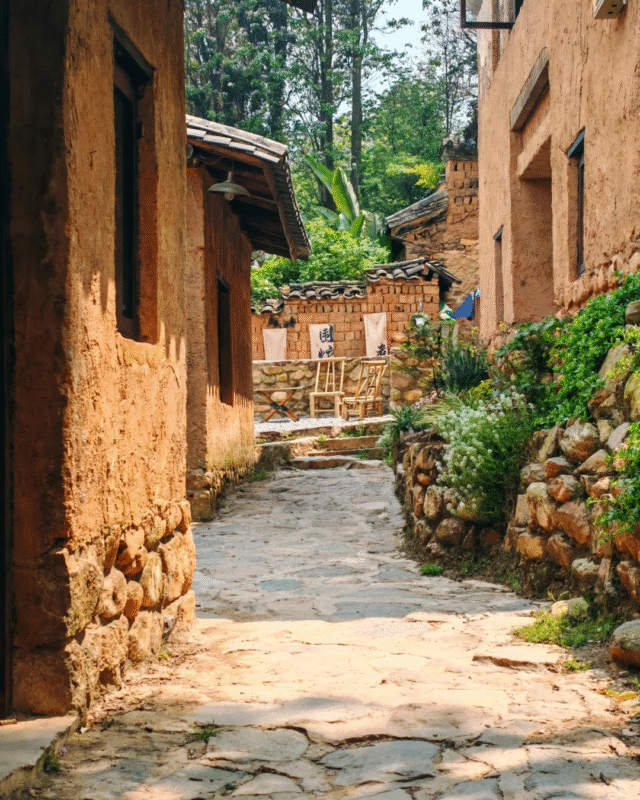
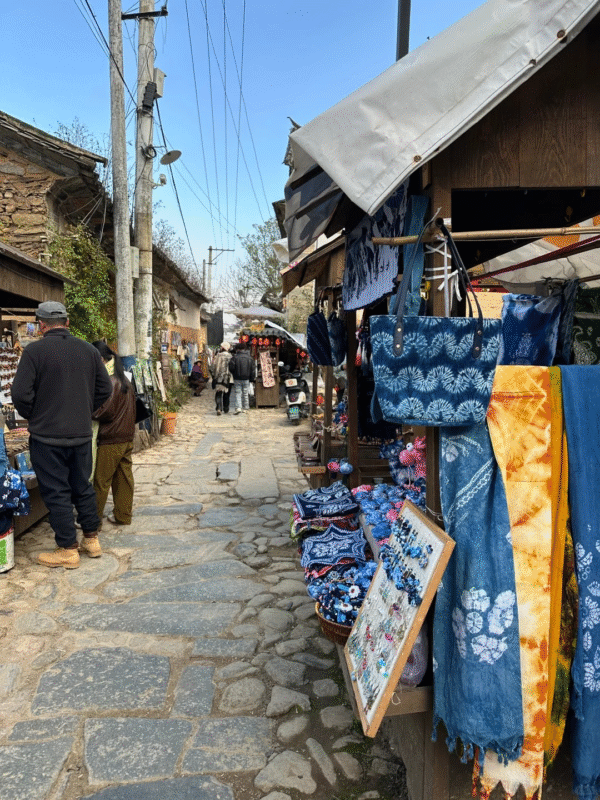
After that, go to [Fengyangyi], Fengyangyi town is located near the ancient city of Dali, which is an ancient village on the ancient tea horse road.
It began in the Han Dynasty and is an important node of the Southern Silk Road "Bonan Ancient Road", and the most complete site of the Ancient Tea Horse Road (1.8 kilometers of bluestone road) in Dali exists. The horseshoe pit on the bluestone slab is up to 12 centimeters deep, witnessing the prosperity of the "salt tea market" since the Tang and Song dynasties
Along both sides of the ancient road, 82 earthen warehouses are preserved (loess rammed stone wall foundation), forming a pattern of "streets and alleys are hidden in the house, and the house is hidden in the mountain". "No. 4 Straw Hat Street" still retains the horse feed trough and guillotine, and the second floor is a special "bodyguard room" for the leader of the horse gang
This ancient village, which was set on fire by "Going to a Windy Place", is actually a three-dimensional textbook of the Ancient Tea Horse Road. When the horseshoe-shaped wildflowers bloom in the cracks of the stones, you can feel the temperature of time frozen in the loess walls.
This town was originally called "brick kiln", and in history it was mainly used to fire brick and tile clay pots, and later took the meaning of "Danfeng Chaoyang" and changed its name to "Fengyangyi", which means auspiciousness, happiness and bright future. At the same time, Fengyang-eup is also the filming location for the filming of "To a Windy Place" in 2023. After going to Taihe City, Taihe City is the location of the first capital city after the establishment of the Nanzhao Kingdom, and its core area is the range from our Taihe Ancient Village to the west of King Kong City. Because in the language of the white barbarians, "and" has the meaning of a hillside; "Tai" and "Da" are themselves pseudonymous characters in ancient Chinese. Then Taihe Castle means "a city built on a hillside". It is also the most well-preserved city site among the three capitals of Nanzhao, and you can feel the history and culture of the ancient country of Nanzhao.
Then go to [Huahai Travel Photography Base - National Costume Travel Photography] to check in the Internet celebrity photo spot.
Dali's clouds travel very slowly, the flowers bloom long enough, and even the afterglow of the sunset is full of infinite reverie. Take a break from the hectic life of the city and enjoy the perfect combination of plants, flowers, gardening and the most leisurely time in Dali. Let you travel through time and space in an instant and experience the beauty of thousands of years.
For dinner, taste the local caravan special banquet: [Horse Chicken], the chef is the inheritor of Yunnan Horse Chicken, immerse yourself in the authentic Nanzhao special food, and at the same time you can also watch the melodrama: Horse Gang Jianghu, thrilling high-altitude rappelling, wonderful martial arts fights, explosive air explosion effects, and lively singing and dancing performances.
"Horse Chicken" is a living fossil of the caravan food culture bred by the ancient tea horse road in western Yunnan, and its name is as straightforward as the caravan number, which exhausts the survival wisdom and feelings of the horse people for thousands of years. Legend has it that in ancient times, the caravan trekked through the steep mountain roads, and when they rested, they had to use local materials and cook food as quickly as possible - from slaughtering live chickens to serving gongs and pots, it only took ten minutes. A large piece of local chicken is fried in hot oil until it is fried, and it is only seasoned with grass fruit, dried pepper, and wild artemisia (a mountain thatch). This dish carries the collective spirit of the caravan: the gong pot is the sacred "ancestor", the grass fruit is worshiped as the incarnation of the mountain god, and the rules when sharing the food are more humane - children are expected to grow strong with chicken legs, the elderly eat chicken liver to show filial piety, and the last piece of meat in the pot must be left to the companions, interpreting the righteousness of the rivers and lakes that "the horse chasers take care of the most".
▼After that, drive to the hotel and check in to the hotel.
Warm tips:
★ Dali's ultraviolet rays are strong, so you should take sunscreen measures when traveling, and take care of your belongings when playing near the water
Dining arrangement: breakfast hotel buffet, Chinese food Snow Mountain nutritious meal package, dinner team meal
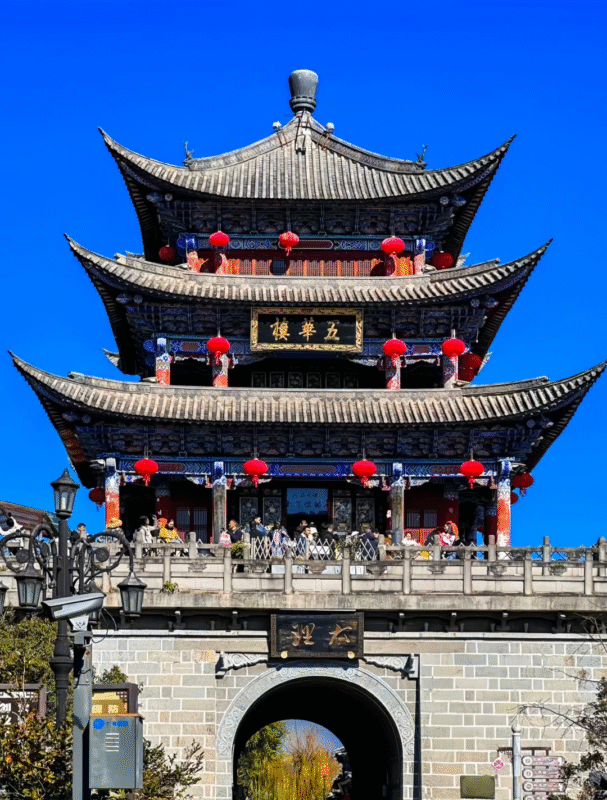
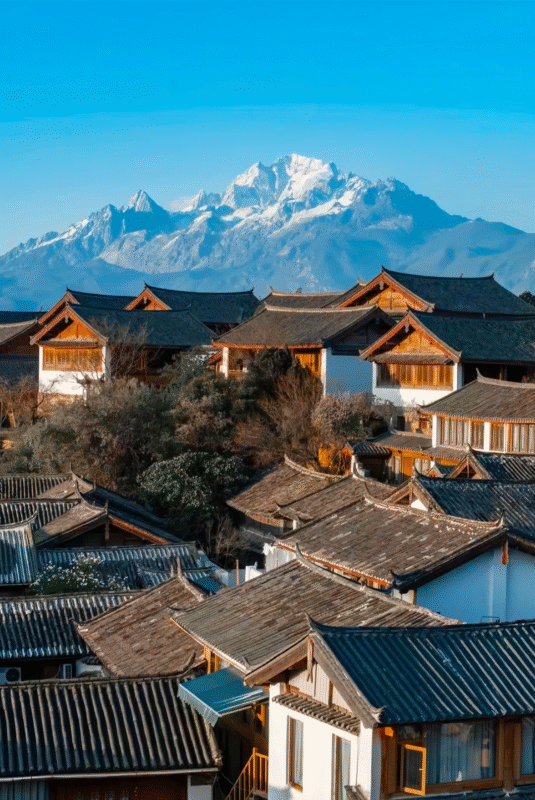
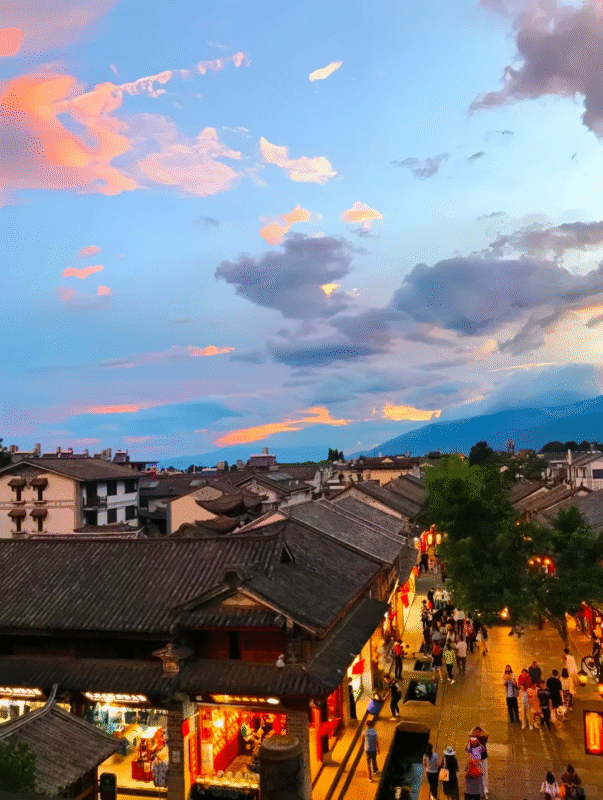
After breakfast in the hotel, visit the ancient city of Dali, quietly shuttle through the ancient city wall full of stories, wander in the streets and alleys of the ancient city of Dali, listen to the wind blowing through the moss and green tiles, for thousands of years, here merchants are like weaving, tea and horse markets, quietly interpreting the charm of the precipitation of the years.
Located in the center of Dali Bazi, the ancient city of Dali is an ancient city with a long history, in the Tang and Song dynasties for more than 500 years of history, it is the political, economic and cultural center of Yunnan, and there are 14 key cultural relics protection units above the municipal level in the ancient city, carrying the historical culture, religious culture and national culture of Dali.
At the same time, the ancient city of Dali, as one of the ethnic minority settlements, is a place where Bai cultural resources are enriched and multi-ethnic culture is blended and developed, where the Central Plains culture, exotic culture and local culture collide and exchange, forming a splendid Nanzhao Dali culture and distinctive Bai culture, showing a strong ethnic customs and a brilliant cultural landscape. The ancient city walls, well-organized streets, and quaint courtyards of the Bai family, here you can read Dali.
Set off at the designated time to visit the [Jade Dragon Snow Mountain] scenic spot. Take the Glacier Park Ropeway (oxygen and winter clothing are provided).
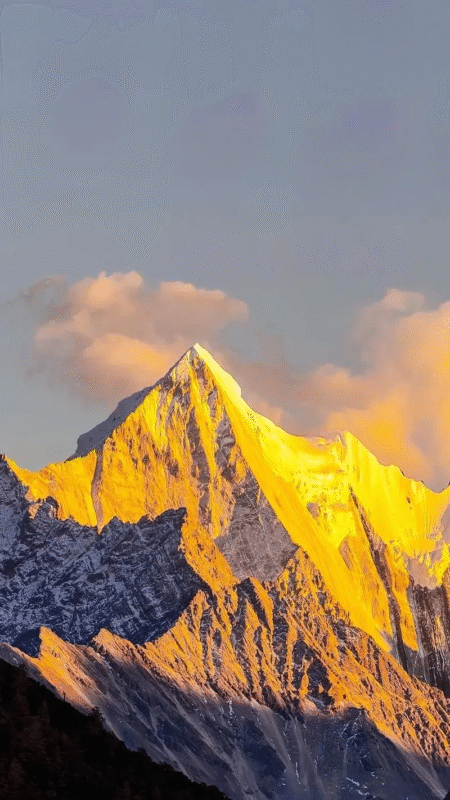
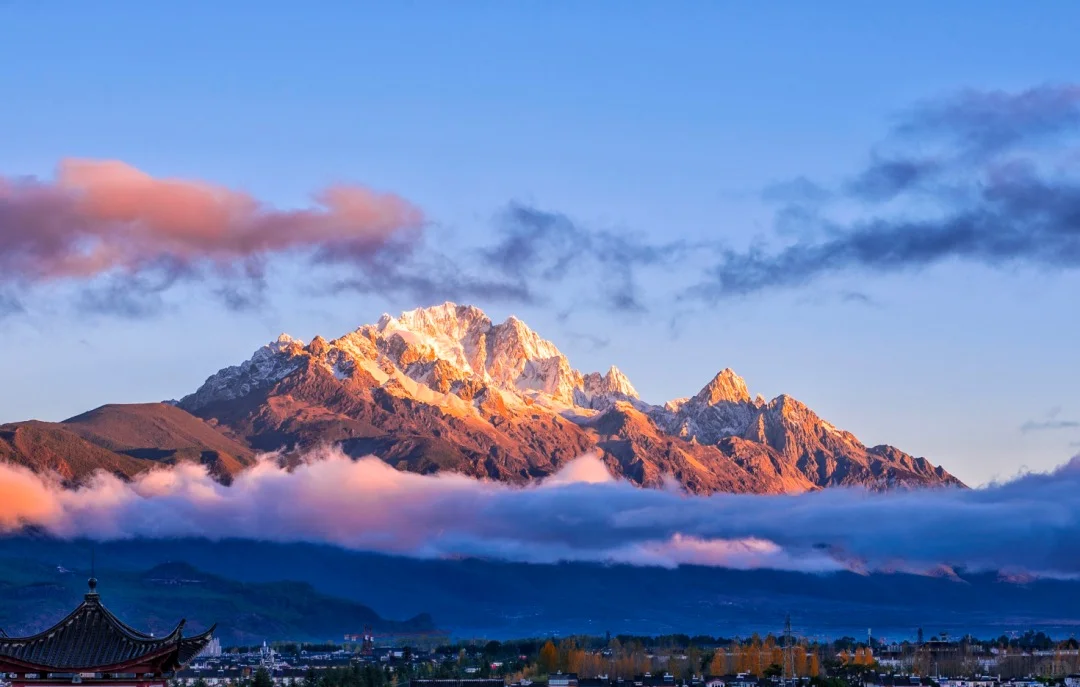
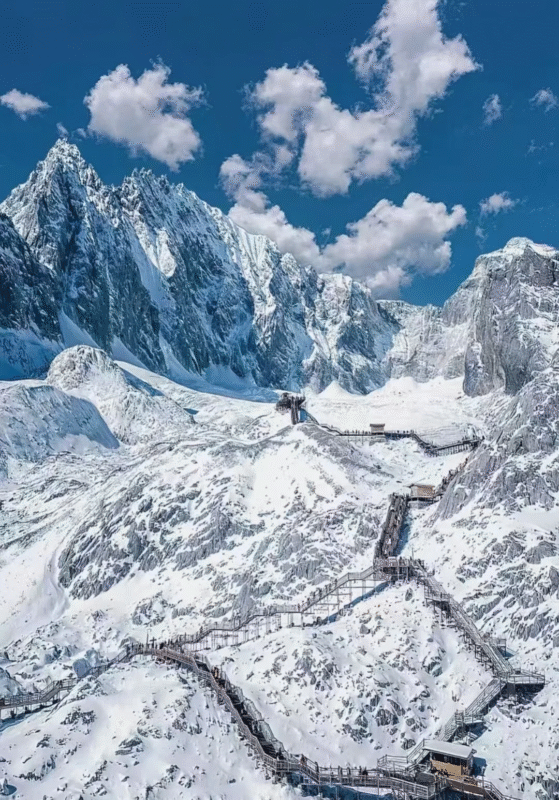
Jade Dragon Snow Mountain] is a sacred mountain in the minds of the Naxi people and various ethnic groups in Lijiang, the protector of the Naxi people "Sanduo" is the incarnation of the Jade Dragon Snow Mountain, and Lijiang still holds an annual grand "Three Flowers Festival". The Jade Dragon Snow Mountain is not only a symbol of natural wonders, but also a living witness of the spiritual totem of Naxi culture and the integration of multiple ethnic groups. Its cultural heritage is rooted in the Dongba civilization of the Naxi people, the pluralistic symbiosis of the Ancient Tea Horse Road, and the cultural inheritance and innovation in the development of modern tourism, forming a magnificent picture of the interweaving of nature and humanity.
At this time, we can enjoy the scenery of the Jade Dragon Snow Mountain, climb the snow peak, pass through the cold and summer and the clouds, look at the alternate landscape of the four seasons, and have the clouds and clouds that linger on the side, overlook all things in the Snow Mountain from a high place, feel the shocking momentum of the Jade Dragon rushing into the river, the highest altitude of the Jade Dragon Snow Mountain is 5596 meters, and it is covered with clouds and snow all year round, and it is magnificent. Climb the snow peak, enjoy the snowy scenery of thousands of postures, and express the ambition of Lingyun at a glance of the mountains; The glaciers that have not melted for thousands of years are close at hand, and the beautiful Hengduan Mountains in Yunnan are unobstructed.
After that, go to Xiaojiuzhaigou [Blue Moon Valley], which is known as the "Immortal Relic Field" (including the Blue Moon Valley battery car, the Blue Moon Valley battery car is a gift project, and the fee will not be refunded if you don't go).
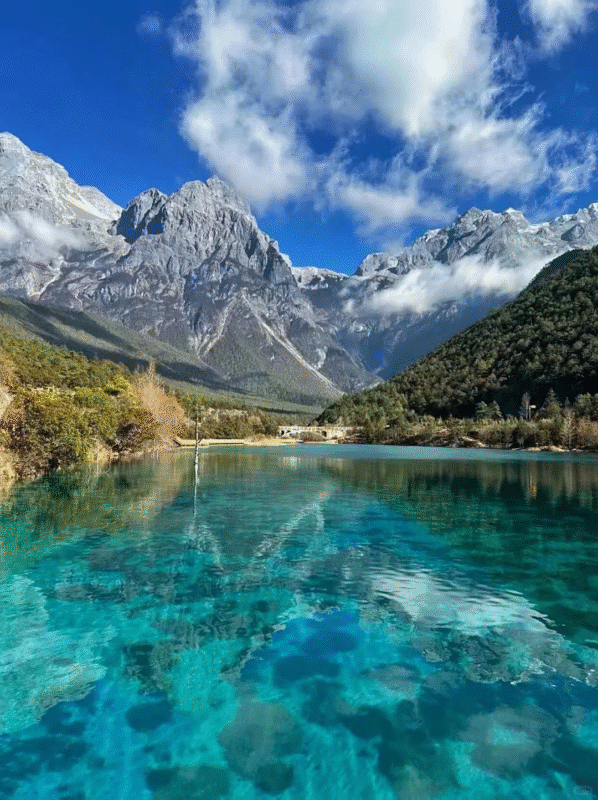
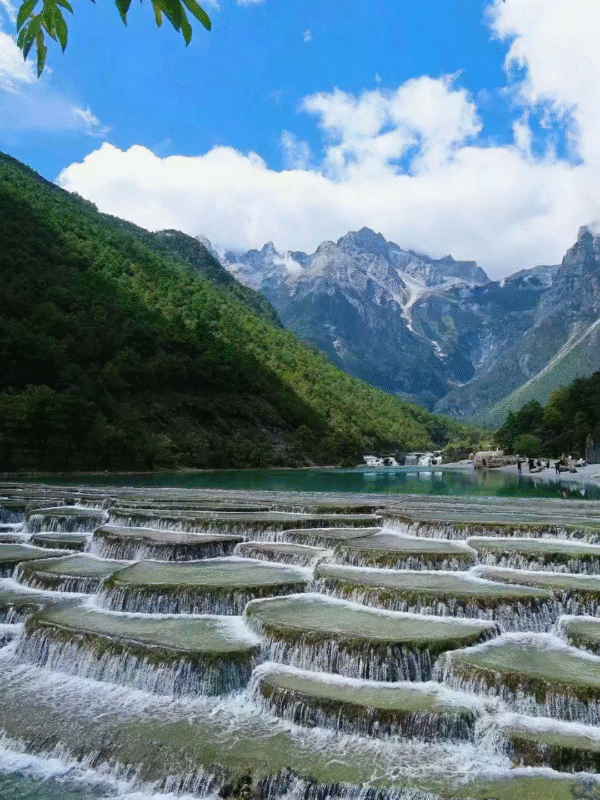
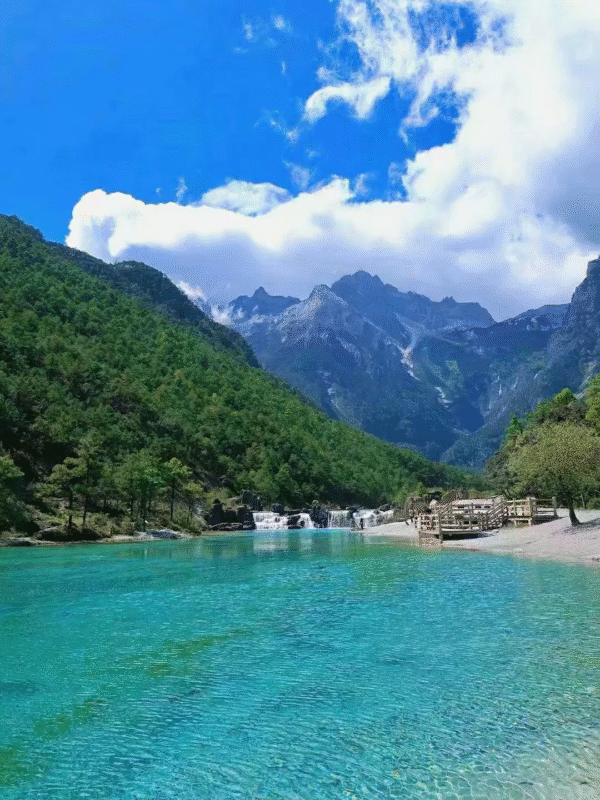
[Blue Moon Valley] has the name of "Little Jiuzhai", the color of the water is blue on a sunny day, the valley is crescent-shaped, and it looks like a blue moon inlaid at the foot of the Jade Dragon Snow Mountain from a distance, so it is called the Blue Moon Valley. Tibetans regard it as "a mirror for the goddess to dress".
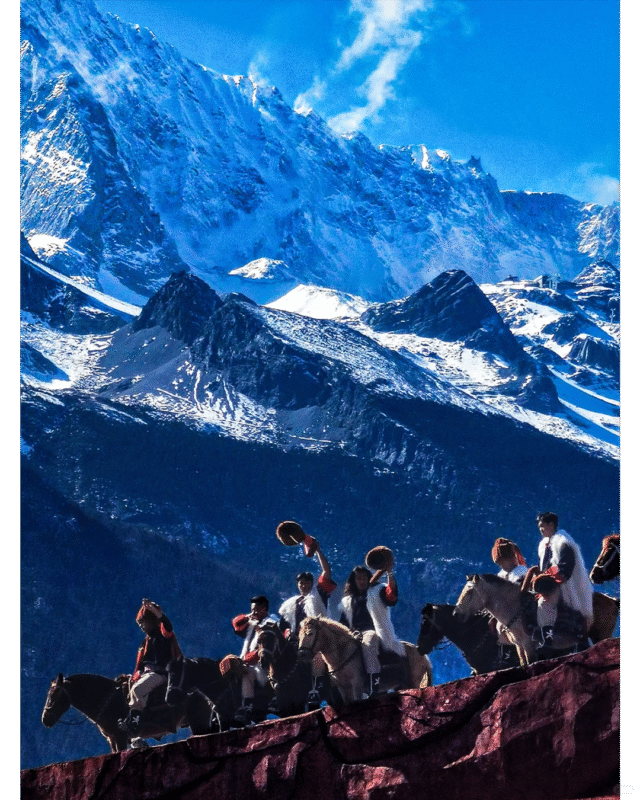
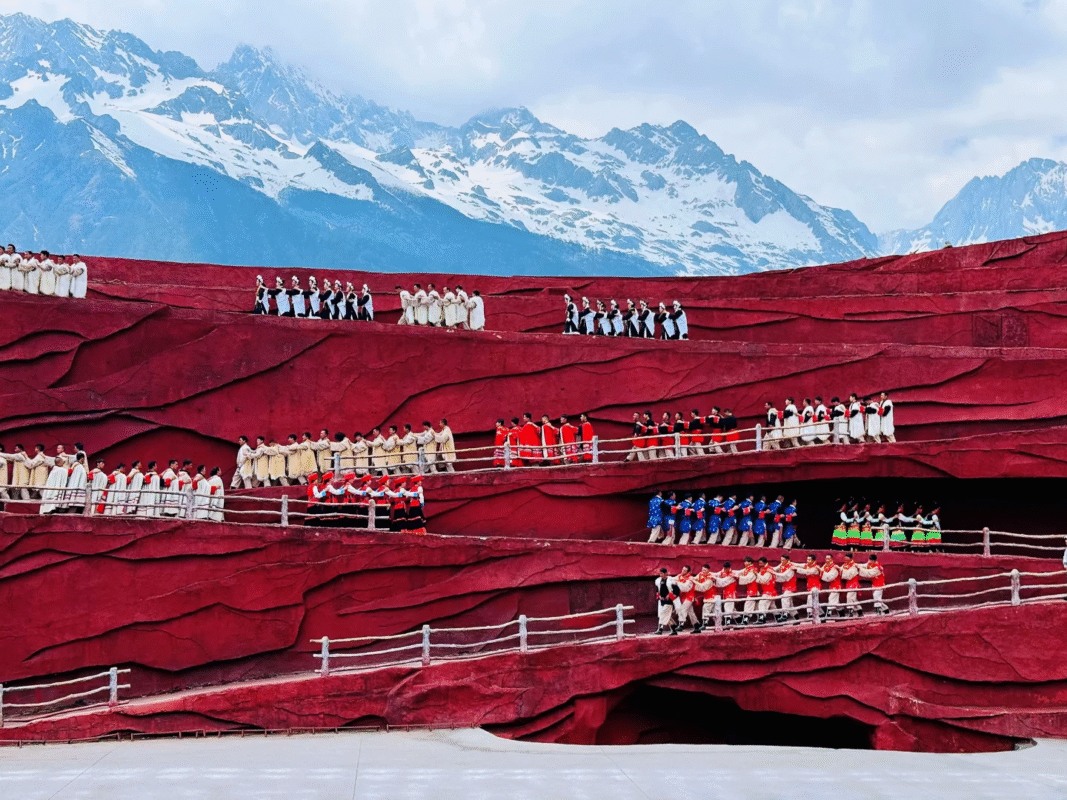
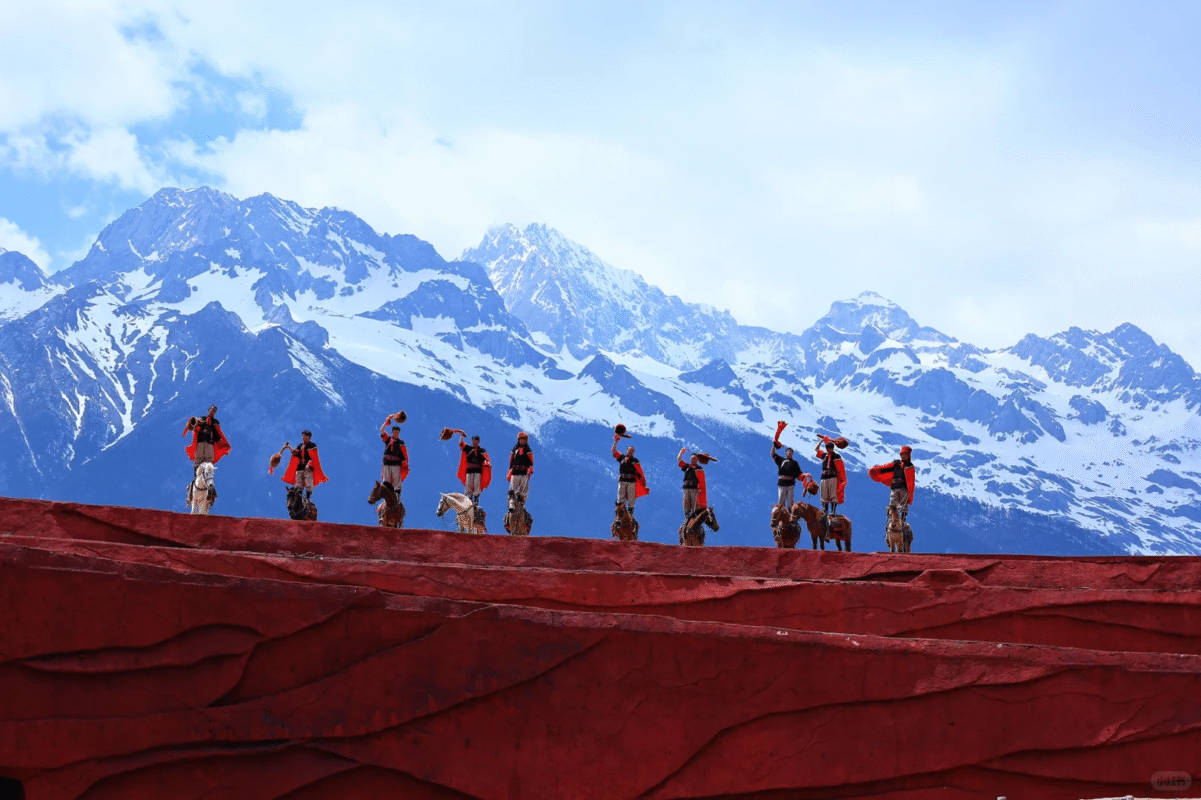
Complimentary to watch a large-scale live performance [Impression Lijiang - Snow Mountain] (special notice, the gift project, in case of adjustment of the number of performances in the scenic spot, the schedule conflicts with the itinerary, resulting in the inability to watch "Impression Lijiang", will be changed to "Lishui Jinsha" (the gift fee will not be seen or refunded) (PS: The order before and after the attractions will be subject to the tour guide's arrangement according to the actual situation of the day) Feel a real feast of live performances that cleanse the soul. The first part, "Snow Mountains", is a dialogue with mountains and experiences the close relationship between life and nature. The second part is to have a dialogue with life through people climbing the Jade Dragon Snow Mountain and visiting the old town of Lijiang; The third part, "Ancient City", is a dialogue with the ancestors, in which it is discovered that there has always been a sacred kingdom in the hearts of people throughout the ages. (Yulong Snow Mountain Glacier Park Cableway is strictly scheduled, tickets need to be booked in advance, once the locked time cannot be changed and returned, please also cooperate with tourists and friends to arrange the time.) In addition, due to force majeure factors or the quota of the ropeway in the off-peak season, we will make alternative adjustments according to the actual situation of the day and change to the small cableway spruce flat or the middle cableway yak flat, and refund the price difference of the large cableway according to the actual situation).
In the evening, you will have free activities in [Lijiang Old Town], taste local snacks by yourself, and stay at Lijiang Hotel (today's dinner is at your own expense, Lijiang Old Town needs to go to the hotel by yourself after the tour due to the different time of the personal tour, please be aware).
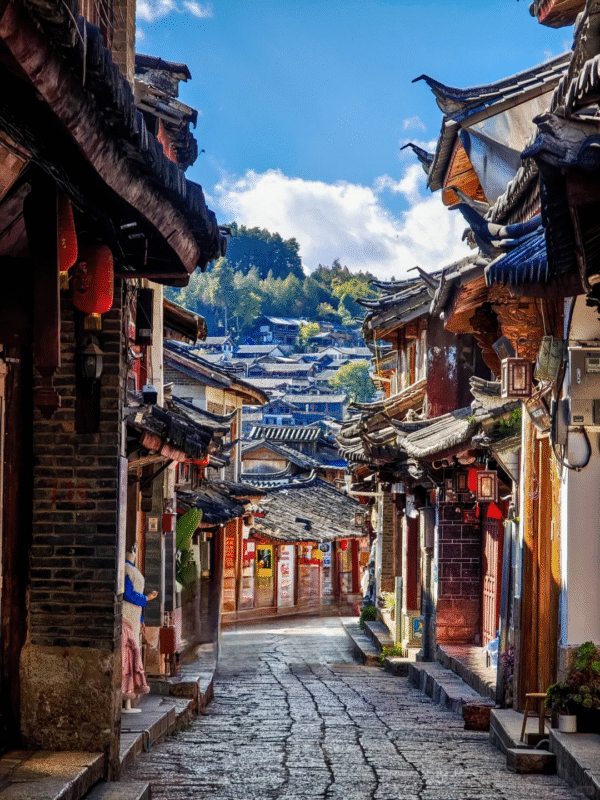
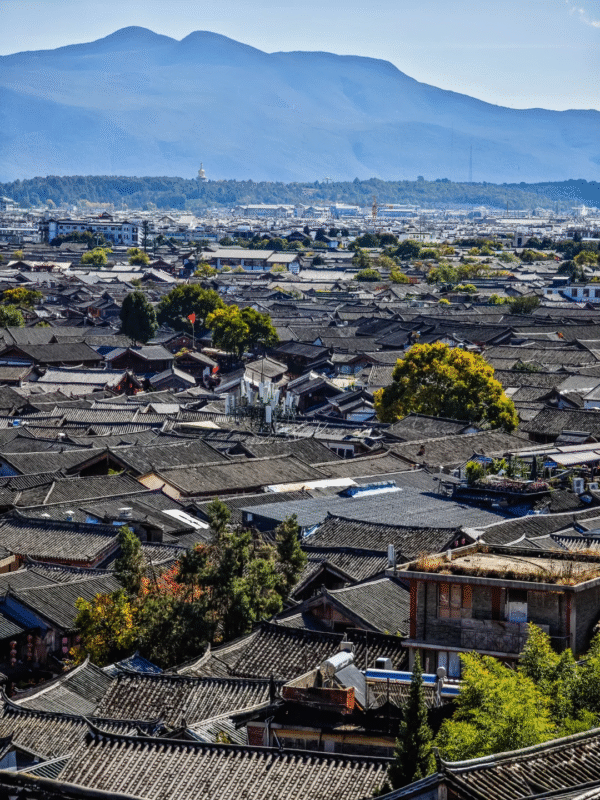
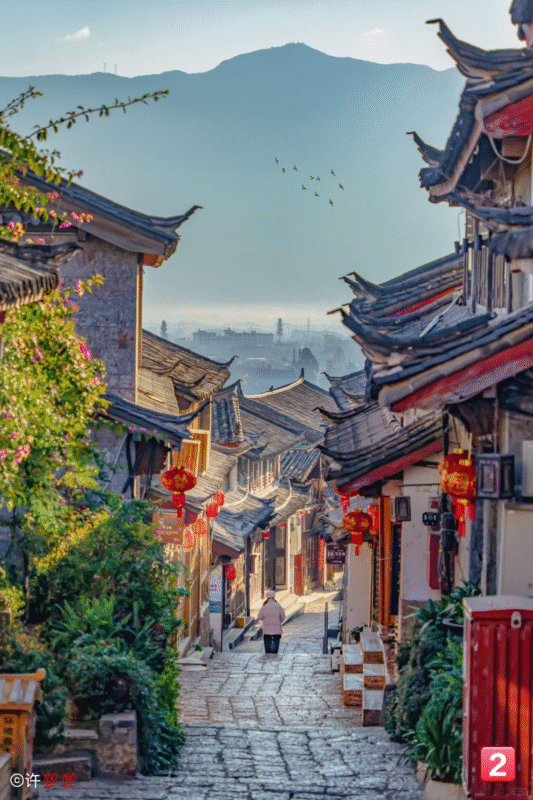
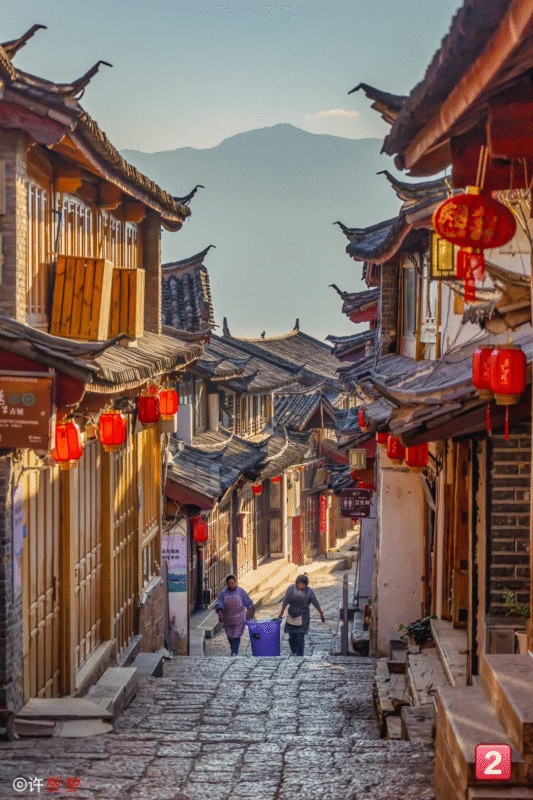
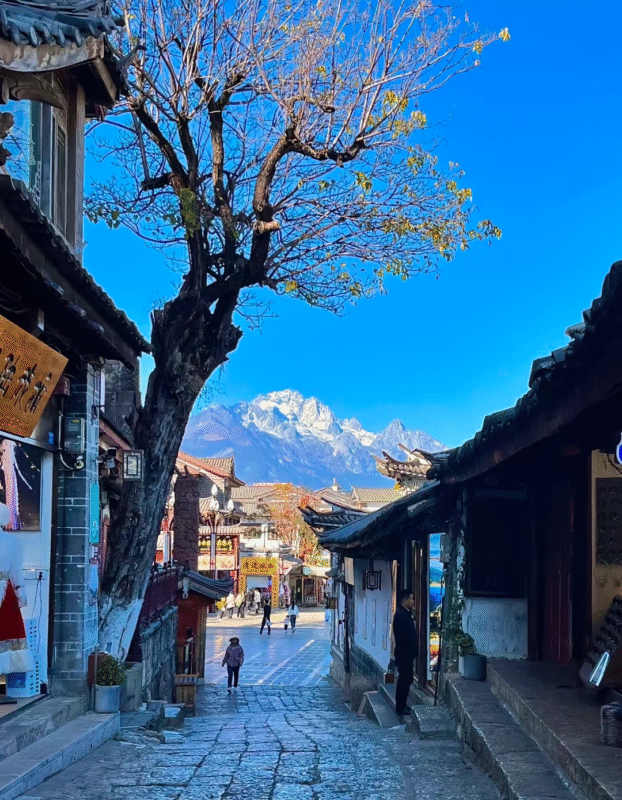
Warm tips:
It is crowded when visiting the ancient city, so pay attention to safety and take care of your belongings during the tour.
Dining arrangement: Breakfast, hotel buffet, Chinese food, Naxi turppool chicken, dinner, group meal
After breakfast at the hotel, drive to Shuhe Ancient Town (tour time is about 90 minutes).
Shuhe Ancient Town, a thousand-year-old Naxi village lying quietly in the northwest of Lijiang, 300 years earlier than Lijiang Dayan Ancient Town, has formed a market in the Tang Dynasty, and is called "Shaowu" (meaning "village under the peak") in Naxi language, but it has always maintained the original pulse of the era of the Ancient Tea Horse Road. On the mottled stone slabs of Qinglong Bridge, the indentations of the horse's hooves still tell the legend of the horse gang in the past, and the reflection of the snow-capped mountains of Jiuding Longtan reflects the piety of the Naxi people to sacrifice to nature. Walking through the stone pavement between the old houses of Hanging Fish, you will meet the Dongba heirs who made paper from the bark of the soba tree, the old craftsmen who beat the bronze ware, and the remnants of the Tang and Song dynasties wafting from the Naxi ancient music on Sifang Street. The water system here still follows the ancient wisdom of the "three-eyed well", and the wood carved double fish under the eaves swayed in the morning light, as if time had never left the era of the tea and horse market. When night falls, the river lanterns in the water area of the flying flowers fall downstream, overlapping with the grand scene of Xu Xiake's "Julu Luji" in a trance - the beauty of the Shuhe River lies in the fact that it uses the living tradition to tell the story of the 800-year-old caravan.
There is no dinner scheduled today, and guests are free to move around according to their personal preferences.
Dining arrangement: Breakfast, hotel buffet, Chinese group meal, dinner, toast feast.
Pick up from the hotel, drive to the vanished horizon Shangri-La (Shangri-La means a place close to heaven) holy land, passing through the [Yangtze River First Bay] to stop for about 15 minutes to take pictures.
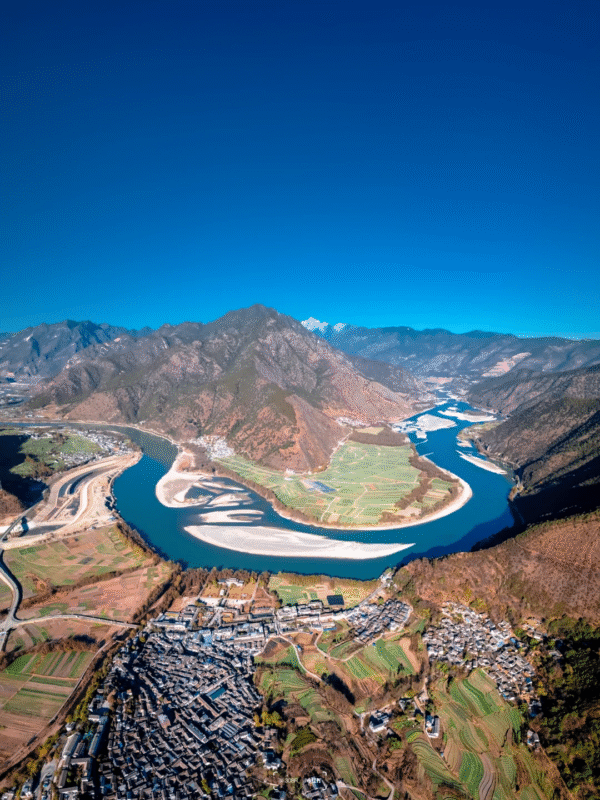
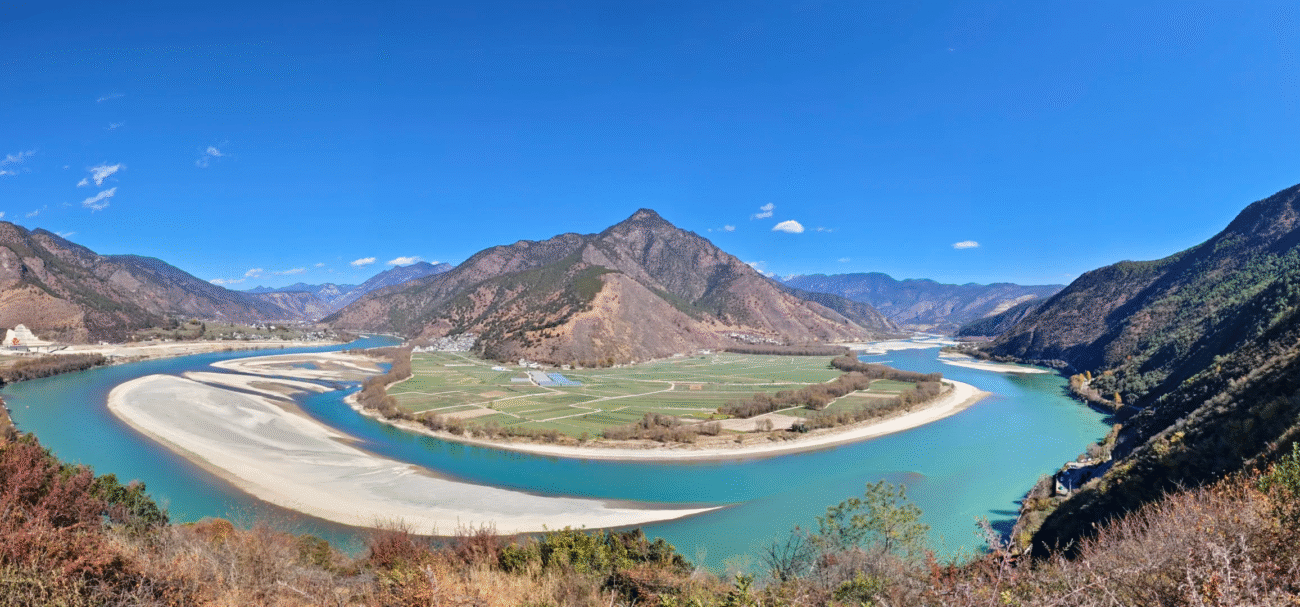
The first bay of the Yangtze River, located between Shigu Town and Shangri-La Shasongbi Village in Lijiang, Yunnan Province, is a rare "V" shaped bend formed by the Jinsha River in the Hengduan Mountains, known as the wonder of "the river flows here into a reversal and rushes into the Central Plains to grow and grow". Its historical heritage is profound: during the Three Kingdoms, Zhuge Liang's "May Crossing of Lu" pacified Nanzhong, and the Yuan ancestor Kublai Khan's "Ge Bao Crossing the River" to conquer Yunnan in the south, all left strategic footprints here; In 1936, the Red Second Front Army rushed to cross the Jinsha River to the north to resist Japan, and the existing 8.1-meter-high Red Army River Crossing Monument and Exhibition Room are engraved with the spirit of the Long March and the situation of the military and civilians. The folk even use the legend of "Jinsha Girl Turns East" to interpret the cause of Jiangwan - the Nu River and the Lancang River go south, but the Jinsha River breaks through the Jade Dragon and Haba Snow Mountain to flow eastward, and incarnates the source of the Yangtze River, giving the natural wonder a romantic life narrative. Nowadays, the Ming Dynasty Monument and the Qing Dynasty Iron Hongqiao in Shigu Town are blended with the Naxi pastoral terraces and willow forests and fishing fires, melting the border beacon smoke, ecological wisdom and red genes into a civilization landmark in northwest Yunnan.
After that, continue along the Yunnan-Tibet Road, the altitude is differently raised, and go to the world's most famous canyon - [Tiger Leaping Gorge] (Tips: The tour time is 90 minutes, Tiger Leaping Gorge is the world's famous Grand Canyon, and it is also one of the deepest canyons in China, famous for its "danger")
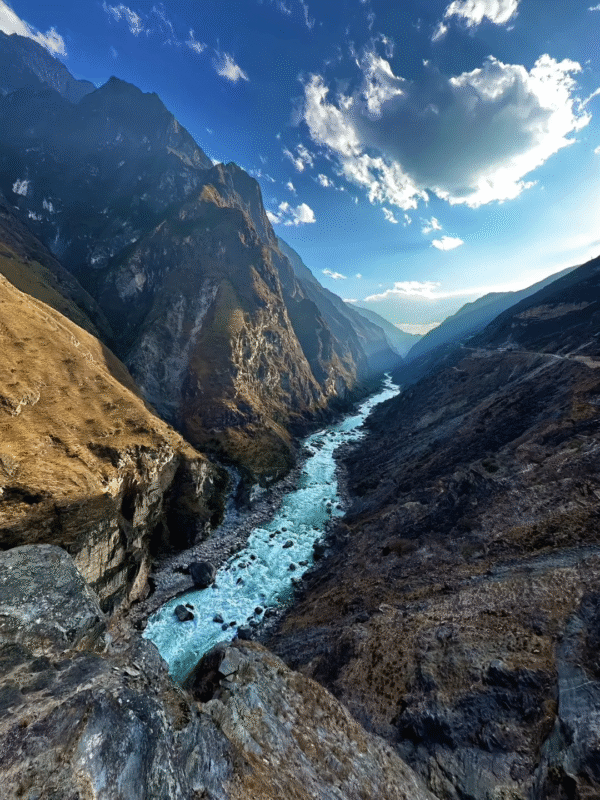
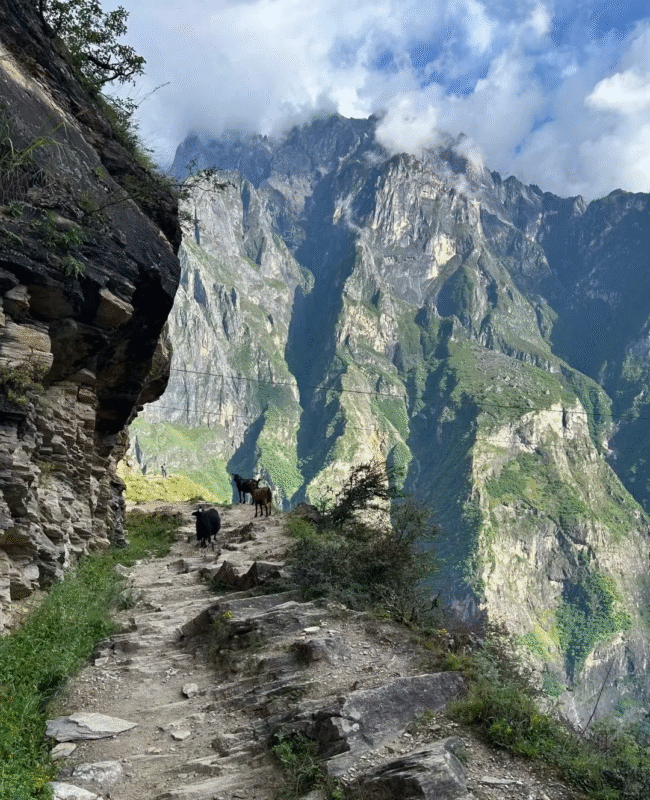
Tiger Leaping Gorge is a world-class canyon known for its danger, beauty, wonder and magnificence, and one of the top ten most beautiful canyons in China. Tourists enter the valley, see a crack in the sky, and see a dragon in the river; The cliff above his head, his feet near the torrent, and his heart trembled. Due to the fault collapse of the mountain rock, countless stone beams have fallen to the ridge, forming a forest of reefs in the river, interlaced with dogs' teeth, dense dangerous shoals, and waterfalls. It is one of the deepest canyons in China.
Because it can be sailed, since ancient times, the Tiger Leap between Dagu Township, Yulong County, Lijiang City and Sanba Township, Shangri-La City is the key point of the Ancient Tea Horse Road, and the ferry port and Dagu Iron Chain Bridge here maintain the commercial and cultural exchanges between the Han, Tibetan, Bai, Naxi and other ethnic groups in the border area of Yunnan, Sichuan and Tibet, and become the link between the animal husbandry production area and the agricultural production area.
At the end of the tour, drive to the restaurant for dinner, and then continue to walk through the [Yi Village] to stop and take photos for about 15 minutes.
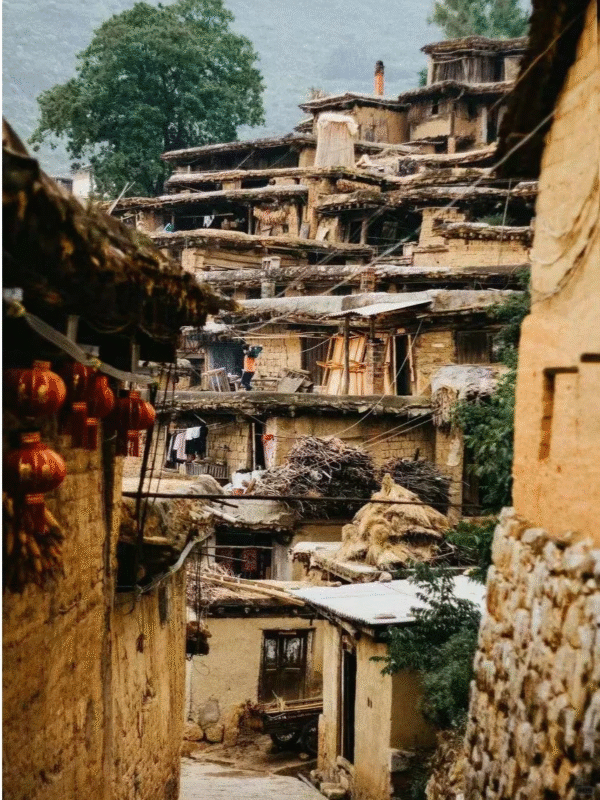
Yi villages, scattered in the mountains of southwest China, historical and cultural living fossils, carrying the creation of epics and migration memories in the ancient Yi classics, such as Guizhou Sanguanzhai (Yi language "Xiekudi") still retains the Le tribe's dwellings "tiger sitting" board wall houses, humming ancient music and Yijiao dance, known as the "Yi Ancient Books Museum".
Take a bus to [Pudacuo National Forest Park] (Tips: The tour time is about 180 minutes).
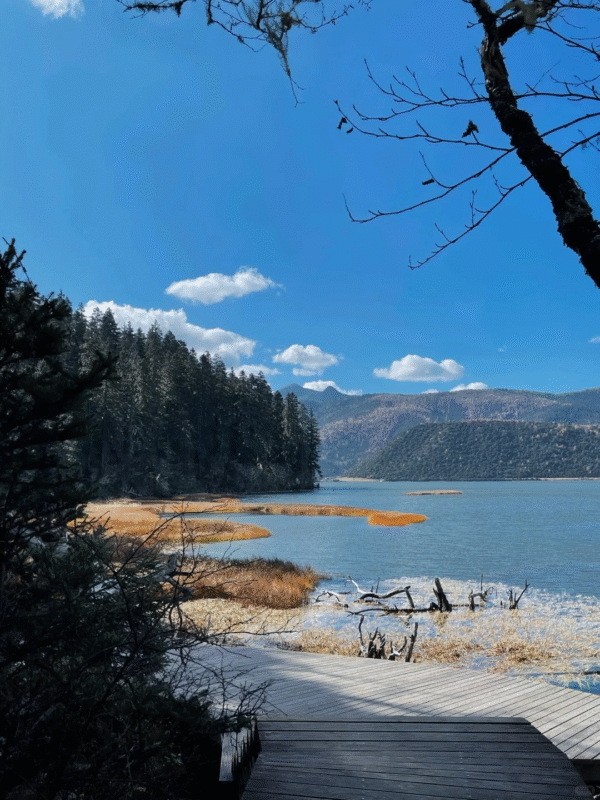
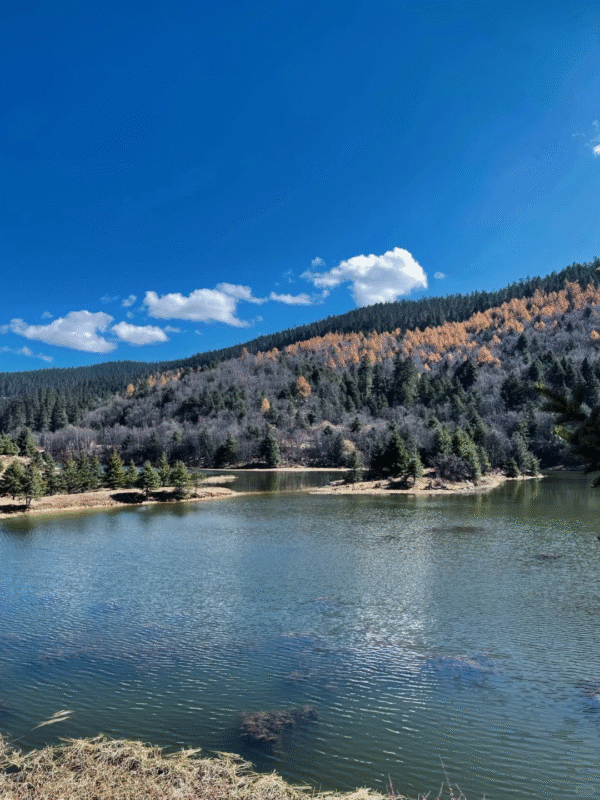
Dacuo National Park, China's first national park, is home to primeval forests, alpine meadows and rare flora and fauna (such as the Yunnan snub-nosed monkey). It is a fairy tale world without any pollution, the lake is clear, the sky is blue, the forest Tao carries the sound of water, the birds sing with the fragrance of flowers, and the scenery is different throughout the year.
The Tibetan word "Pudacuo" means "boat lake", and it is said to be the holy place of Guanyin Bodhisattva. Here, we can see the rhododendron trees all over the mountains, walk into the Xiaqi Tibetan Cultural Village, and feel the Tibetan lifestyle of integrating farming and faith, which shows the carving process and finished products of wood, thangka, and yak horn bones, highlighting the wisdom and art of the Tibetan people. The guarded by the scenic spot next to a number of Mani stone piles, the never-ending prayer barrel by the stream, carrying the Tibetan people's faith and sustenance, at this moment, the rich religious atmosphere itself is a cultural landscape.
In the evening, we will give away the most distinctive song and dance performance of the Tibetan people - [Collector's Toast Banquet] to experience the Tibetan food culture, appreciate the original ecological song and dance, so that you can enjoy the joy of the journey, (Tips: The tour time is about 90 minutes, barley wine, butter tea, green trees, tsampa, cheese, song and dance performances), and check in to the hotel to rest after the end.
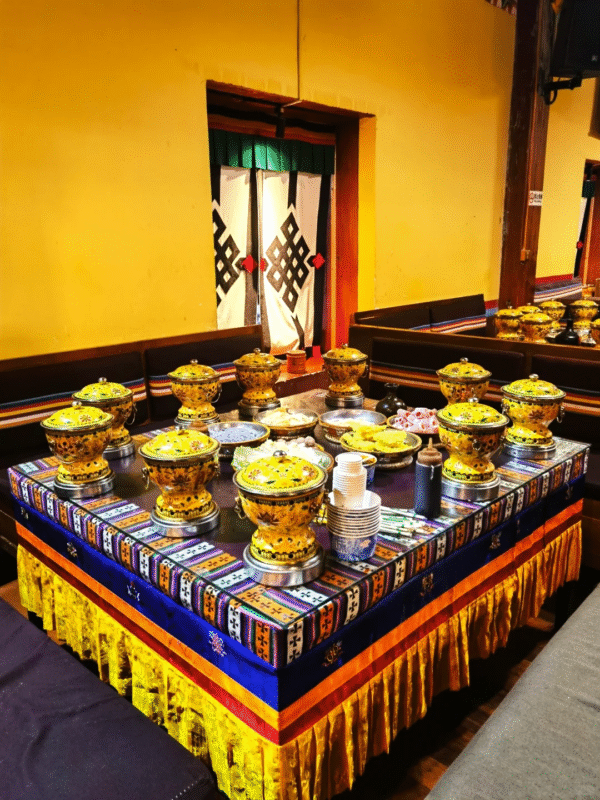
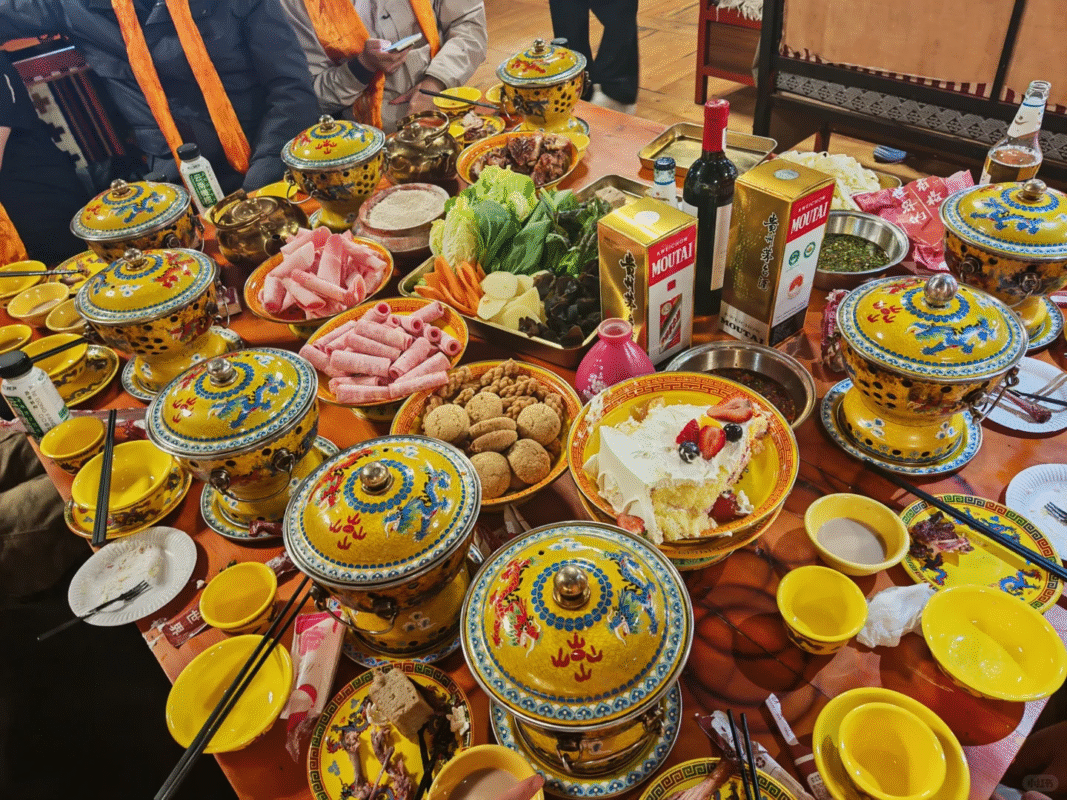
As a unique food cultural heritage under the Chinese toast system, the toast feast carries the historical memory of the integration of multi-ethnic regimes, class etiquette and ecological wisdom. It sprouted in the Tang and Song dynasties and flourished in the Yuan, Ming and Qing dynasties, and is not only a symbol of the authority of Tusi, but also a link connecting the emotions of the tribes. In Yunnan, more than 700 years of toast feast began in the Dai New Year celebration, Dai, Lahu, Wa gathered in the long street, with the first catch of fresh fish after the lifting of the ban in that year made "fish squeezing" and "hot and sour fish", hot and sour appetizing cold dishes and mountain hot food echo the hot and humid climate, the banquet "ten hot dishes, twenty cold dishes" regulation, not only shows the toast's sympathy for the taste of the people, but also condenses the essence of beef, fish, chicken and pork with "four soups", interpreting the Dai people's "animism" ecological outlook and multi-ethnic symbiosis philosophy. In Yunxian County, Xiyun, the "eight meat and eight vegetarian" imperial meals of Mengma Toast in the Ming Dynasty are extremely luxurious: black-bone chicken needs grass, fruit and herbs to fill the cavity, the earth pot is slow cooked, game such as white pheasant with snow mountain herbs, even the cooking water is taken from Longjing, firewood must be selected chestnut wood, banquet furnishings Chun wood table with blue and white porcelain, the skills of Yishan Han craftsmen are cast a seat, although some of the mountain treasures have disappeared due to ecological protection, but the crispy aroma of crispy meat and bubble skin is still in the folk stove to continue the filial piety inheritance of "living and honoring a bowl of soup". From southern Yunnan to western Xiangxi, from the cross-border flavor of "colorful glutinous rice" and "pearl duck" on copper plates in Daxin, Zhuangxiang, to the aristocratic aftertaste of barley wine and Tibetan dance in Shangri-Lazaya Manor, the toast banquet has long surpassed the diet itself, and has become a frontier epic on the tip of the tongue that remembers nature with sour and spicy, reconciles the nation with meat and vegetables, and divides history with knives and forks.
Warm tip:
Shangri-La is at a high altitude, please inform your guide in advance if you feel unwell.
Take care of your belongings during the ancient city tour.
Dining arrangement: breakfast hotel buffet, Chinese group meal, dinner group meal.
After breakfast, go to [Dukezong Ancient City] to visit Guishan Park, turn the world's largest prayer wheel together, and pray for the blessing of the family.
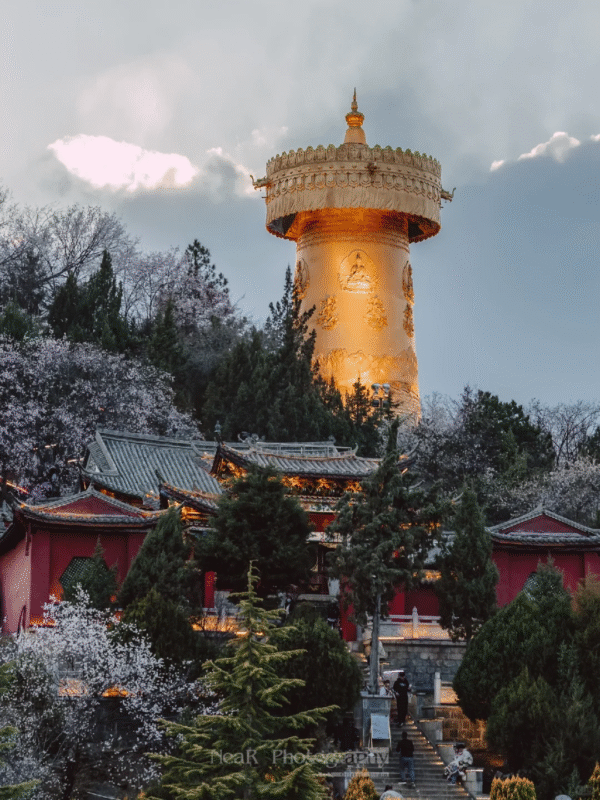
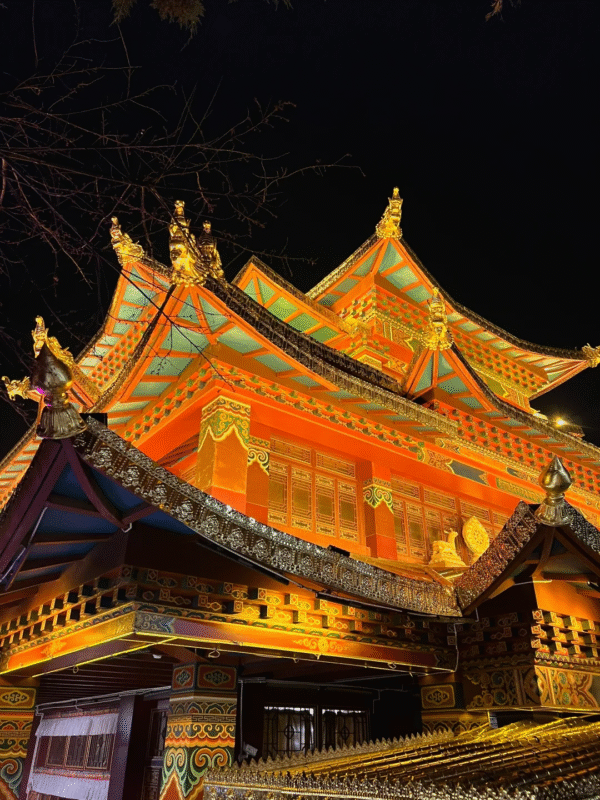
The most iconic attraction of Kameyama Park is the "Giant Prayer Wheel", which is said to be one of the largest prayer wheels in the world, requiring at least seven people to work together to turn it, and one turn is equivalent to chanting the Buddha 1.24 million times.
Each rotation is like a meditation of the mind, and the chanting of the Buddha name seems to echo in the mountains, adding a solemnity and sacredness to the tranquility here. The seven visitors turn together, not only as a respect for Buddhist rituals, but also as a sense of participation and a religious experience.
Here, you can see the endless snow-capped mountains when you look up, and you can see the view from the bottom of Shangri-La City. The bright sunshine, the pure blue sky and white clouds, the solemn temple gate, and the golden prayer wheel constitute a sacred and solemn picture.
After that, we will visit the Shangri-La Mandala, which integrates modern architecture and Tibetan architectural style.
It is designed according to the concept of the round sky, with the connotation of Tibetan Buddhism and the penetration of national culture, you can see at a glance the treasures of Tibet, colorful Shambhala, snowy impression, Shangri-La and other ethnic customs, respectively from the natural scenery to human life, history to religious art, showing a variety of Tibetan culture from different perspectives, it is also the current Tibetan area to introduce Tibetan culture and Tibetan Buddhist culture more comprehensive place. And all the essence and meaning of the mandala is also the expectation of peace and tranquility in the real world. The exquisite Kalachakra mandala is an illusion of the Pure Land, and it is also an expectation of reality.
【3A-level Printing Institute Scenic Area】
The scenic spot is located in the picturesque Xiaqi Village near the mountains and rivers, showing a number of static and dynamic cultures, including woodware art, horn art, thangka art, Tibetan incense art, stone carving art, Tibetan silverware and knife art, and the on-site production of craft workshops such as Tibetan medicine and Tibetan medicine museum, so that the Tibetan culture and folk handicrafts that are on the verge of being lost can be protected and inherited. After arranging Chinese food. (Due to the irregular closure of the Tibetan Culture Experience Center, a mandala or a printing institute will be randomly arranged according to the situation).
After lunch, we will head to the "Napa Sea" scenic spot in the Yila grassland. (Note: Duration 60 minutes).
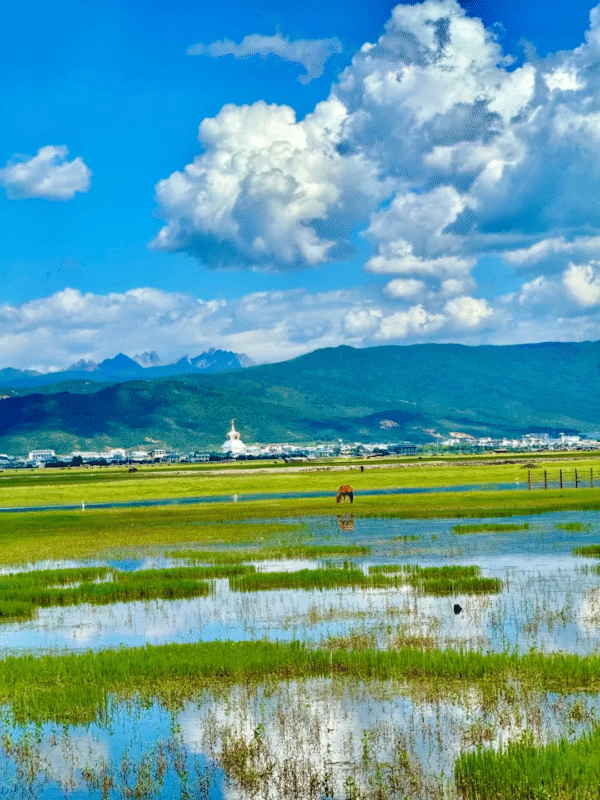
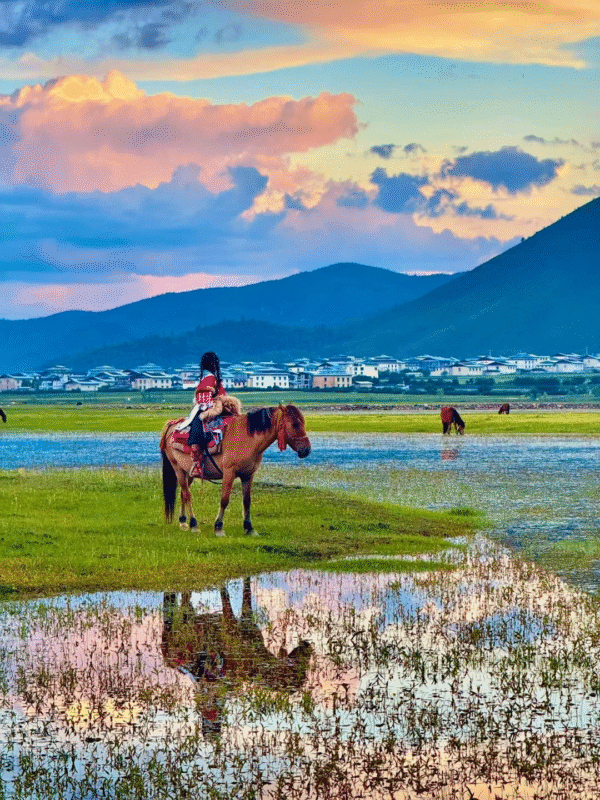
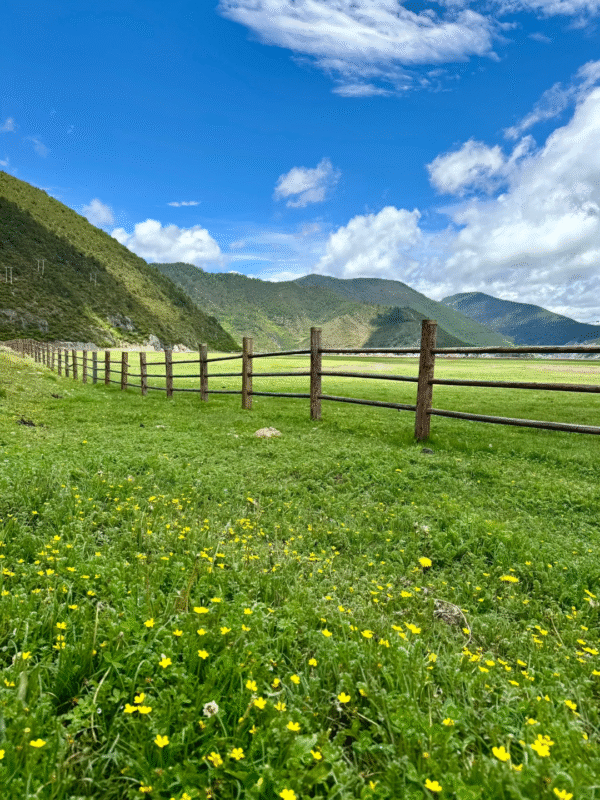
The "Tears of the Plateau" Napa Sea is known locally as "Napa Tso", which means "lake by the forest". The seasonal lakes and marshes of the plateau give it a unique style of romance and beauty. When there is enough rain, the grassland is covered by the lake, forming the "Napa Sea", and when the lake water degrades during the non-rainy season, it becomes the "Ira Grassland". Located in the Hengduan Mountains of western China, the Napa Sea is a stopover and wintering place for many migratory birds such as the "Plateau Fairy" Black-necked Crane and the "Panda among Birds" Black Stork. From September to March of the following year, the black-necked crane roosts here for about half a year. The Yila grassland is the largest grassland in the Yunnan Plateau, where the simple Tibetan herdsmen ride horses and drive herds of cattle and sheep to live a fairy-like life.
After that, drive back to Lijiang and check in to the hotel!
Dining arrangement: breakfast hotel buffet, Chinese team meal, dinner and wedding banquet.
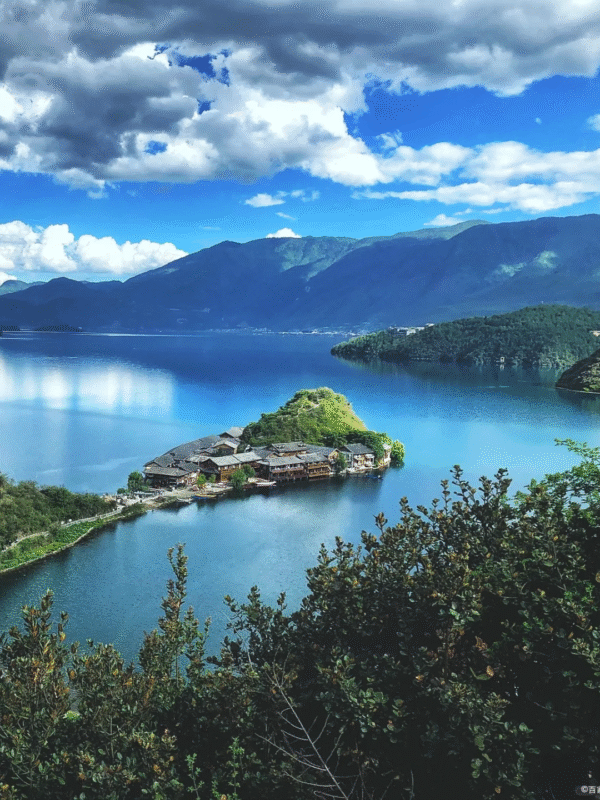
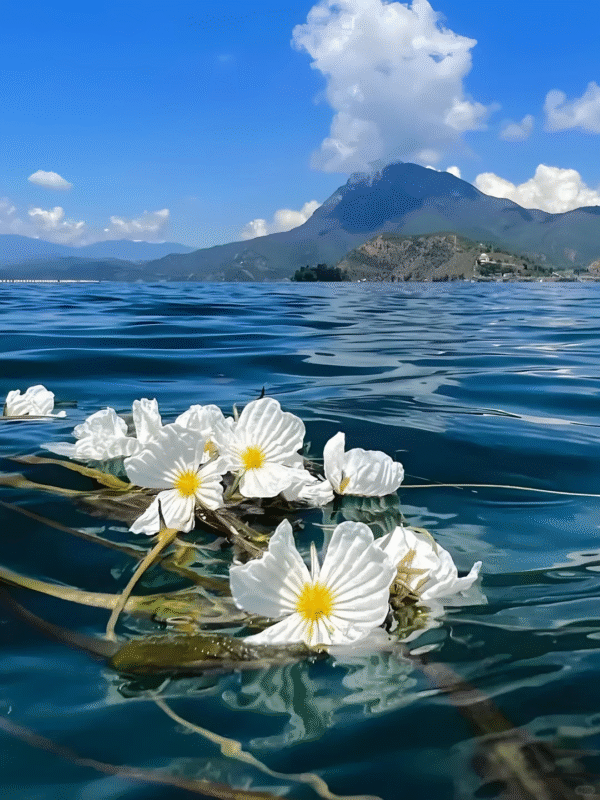
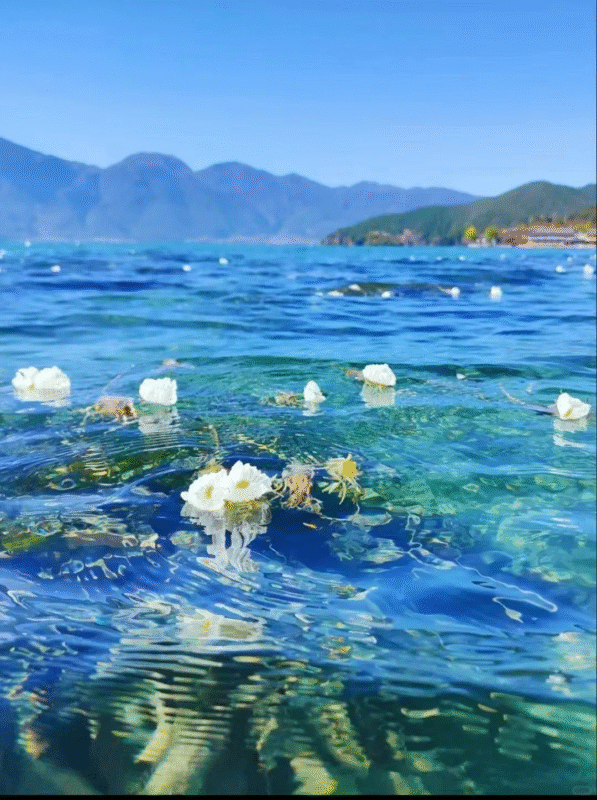
After breakfast at the hotel, drive to Lugu Lake, the best leisure destination selected by China National Tourism. "Autumn water in Luhu Lake.
The best view to enjoy the most beautiful view of Lugu Lake ➱ [Lugu Lake Observation Deck] (about 15-20 minutes).
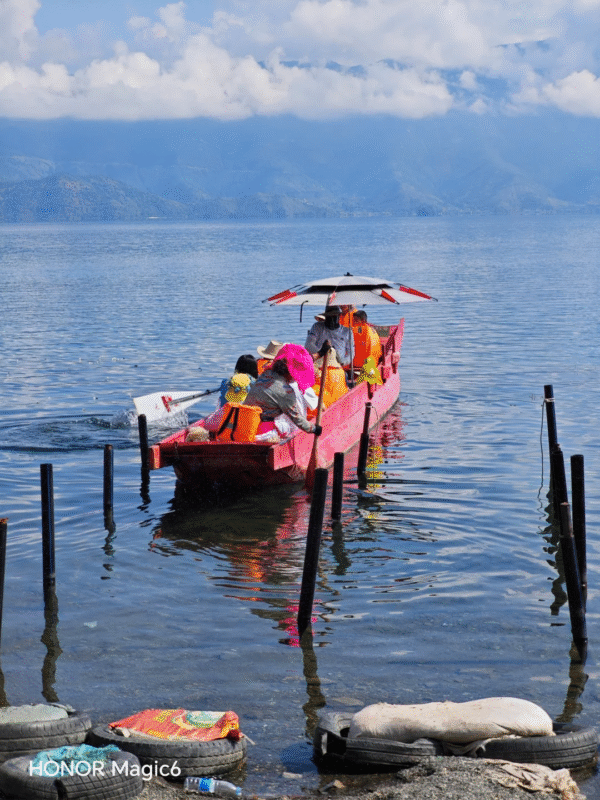
Take the unique transportation of the Mosuo people ➱ Pig Trough Boat to ➱ Liwubi Island / Nisai Island / Bird Island (depending on the guided arrangement, about 60 minutes of play, including the pig trough boat) Walk under the shade of the primeval forest, and listen to the Mosuo people tell the legend of Ayun Mountain.
Take a car around Lugu Lake, passing through ➱ Lige Peninsula, Lover's Beach, Sea of Grass, and Wedding Bridge. Tonight, arrange a Mosuo cultural experience for VIPs ➱ Mosuo Wedding Banquet/Mosuo Bonfire Party to learn about the matriarchal clan customs that have been passed down by the Mosuo people for more than 1,500 years.
As China’s only extant living matriarchal society, Lugu Lake is celebrated not only for its natural splendor as the "Pearl of the Plateau" but also for its Mosuo culture, which weaves a unique tapestry of harmonious coexistence between nature and humanity, tradition and modernity.
Faintly soaked in hibiscus. Stand side by side with the waves and row the peaks of the sea. A trip to the sky, a thousand miles of horizontal lock trees. "For hundreds of years, many literati ink.
The guests are poured under the beautiful scenery of Lugu Lake, and the blue sky, white clouds and Mosuo people of the mysterious daughter country use poetry to make this far away from the hustle and bustle
A place for adults to be a wonderland!
To the southeast of Lugu Lake lies Grass Sea, a marshland named for its dense reeds. Spanning this wetland is the Walking Marriage Bridge - a symbolic "Magpie Bridge" from Mosuo love legends (said to unite lovers) and a modern-day emblem of matriarchal culture. Nearby, Gemu Goddess Mountain and Houlong Mountain, revered as incarnations of star-crossed lovers, stand as spiritual landmarks deeply rooted in Mosuo mythology.
Lugu Lake’s cultural landscape unfolds like a living anthropological epic, preserving the DNA of matriarchal civilization while dynamically engaging with modernity. Every wisp of hearth smoke rising from a Mosuo home, every "pig-trough boat" (traditional dugout canoe) gliding across the lake, poignantly the possibility of "another way of living" - one where tradition and harmony with nature endure.
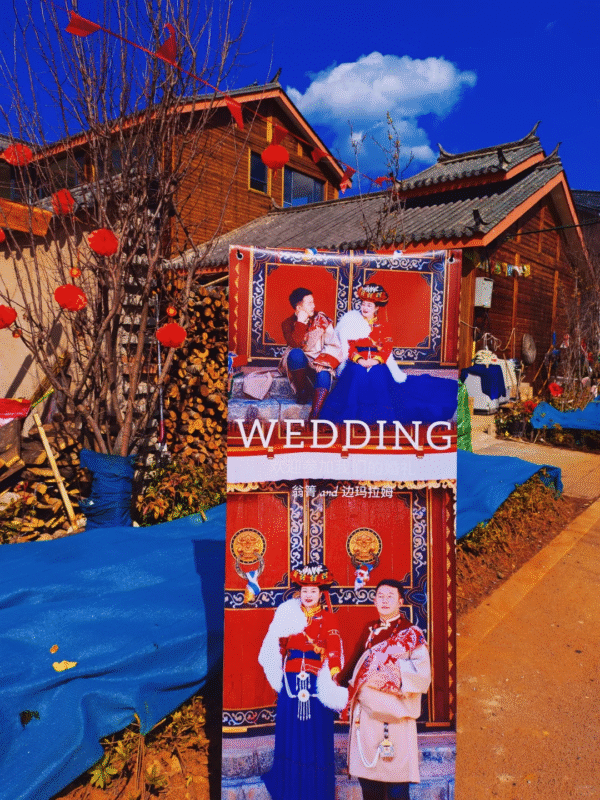
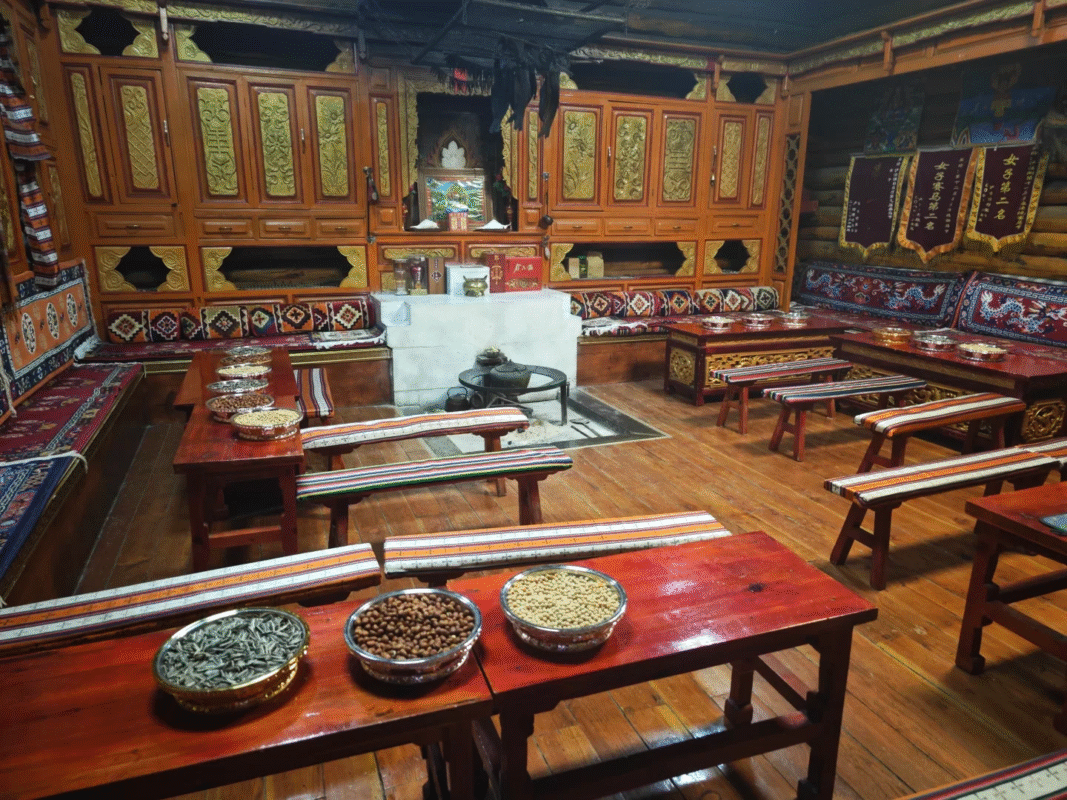
Dinner: [Mosuo Matrimonial Banquet ("Azhu" Walking Marriage Feast)]
The Mosuo "walking marriage" (Azhu) custom - where "men do not marry, women do not wed" - stands as the most iconic emblem of Mosuo culture. Partners freely unite through mutual affection: men visit their beloveds’ "flower chambers" at night and return to their maternal homes by day, while children are raised collectively by the mother’s family. This relationship model, rooted in emotional bonds rather than material ties, challenges conventional definitions of marriage and remains a treasured case study in anthropology.
During this immersive evening, we'll be hosted by a Mosuo family to savor an authentic feast:
- Woodfire-roasted free-range chicken
- Fragrant steamed corn cakes (a Mosuo staple)
- Fourteen symbolic dishes celebrating love and kinship.
Mosuo women, with crystal-clear voices, will serenade guests with traditional toasting songs, weaving an atmosphere of warmth and joy as laughter and song fill the air.
Evening: [Mosuo Bonfire Night]
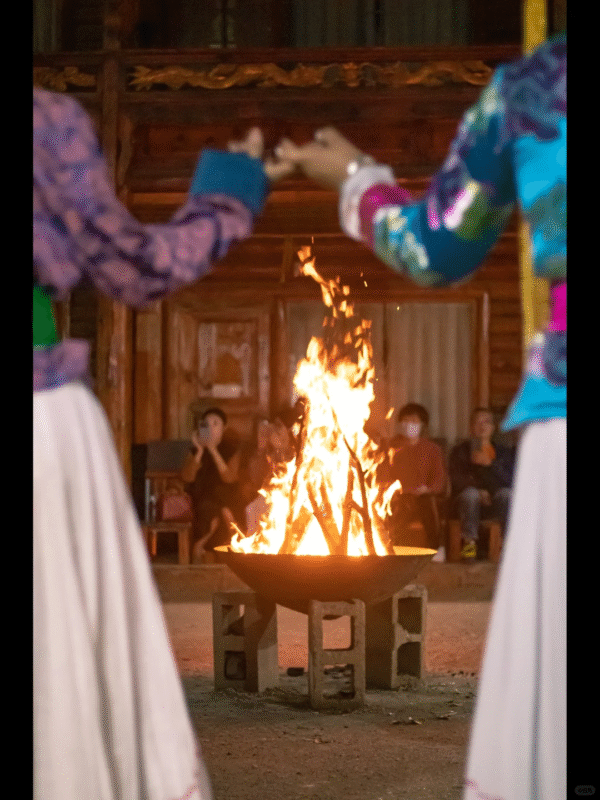
Warm tips:
The pig trough boat is the original means of transportation of the Mosuo people, do not take off the life jacket without authorization, please follow the safety notice of the boatman Row.
The unique customs and living habits of the Mosuo people are not as spread on the Internet, and walking marriage is one of the marriage customs of the locals.
Dining arrangement: breakfast hotel buffet, Chinese team mea, Dinner is on your own.
Wake up in the morning and enjoy the sunrise over Lugu Lake.
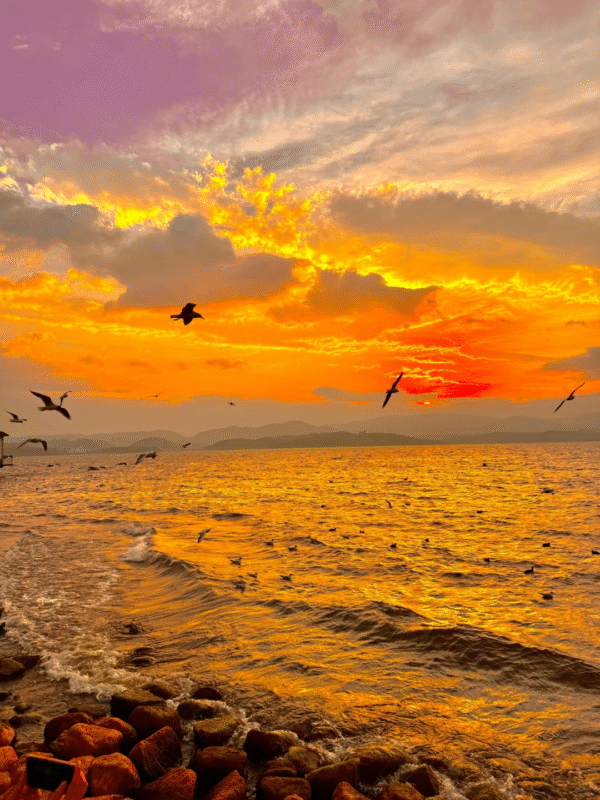
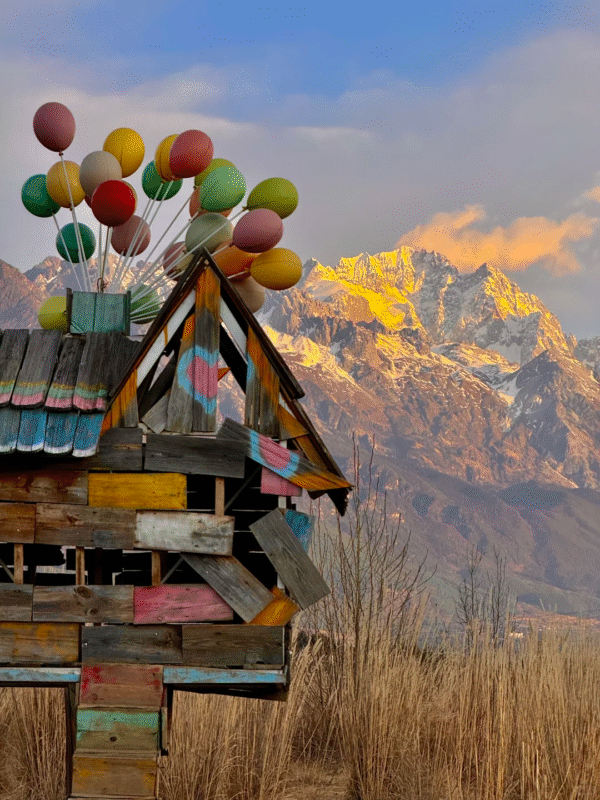
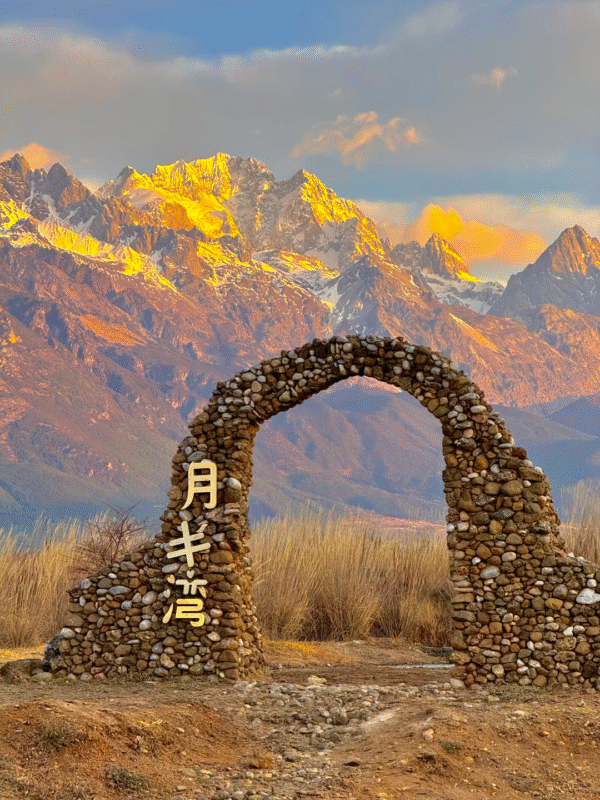
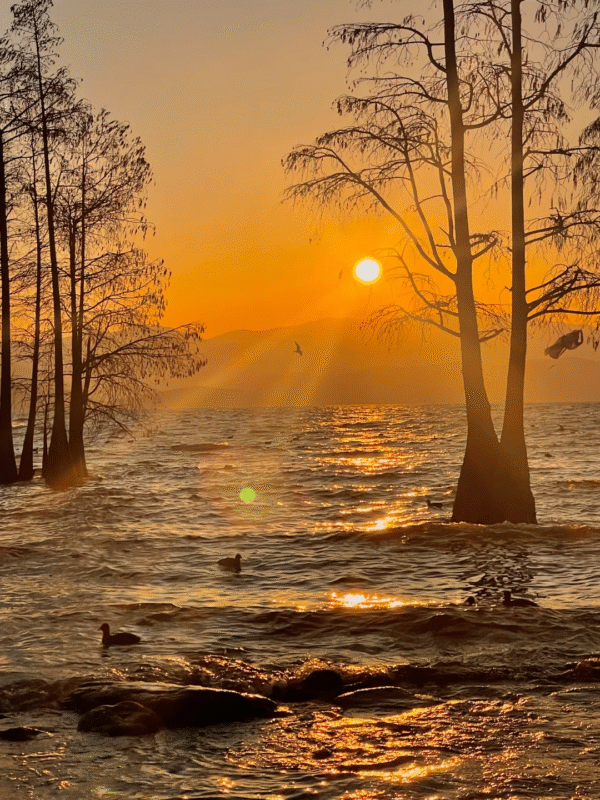
One of the top ten natural beauties in Yunnan! Sunrise is not only the boundary between day and night, but also the faint light it refracts. It will bring a thousand reveries...... Lugu Lake before the morning light always has a hint of mystery. Slowly, the sky gradually dawned, and the earth was like covered with silver light gauze. When a ray of golden light shoots out from the place where the sky and water meet, the scene is particularly beautiful.
After breakfast at the hotel, visit Mosuo Folk House (about 60-90 minutes).
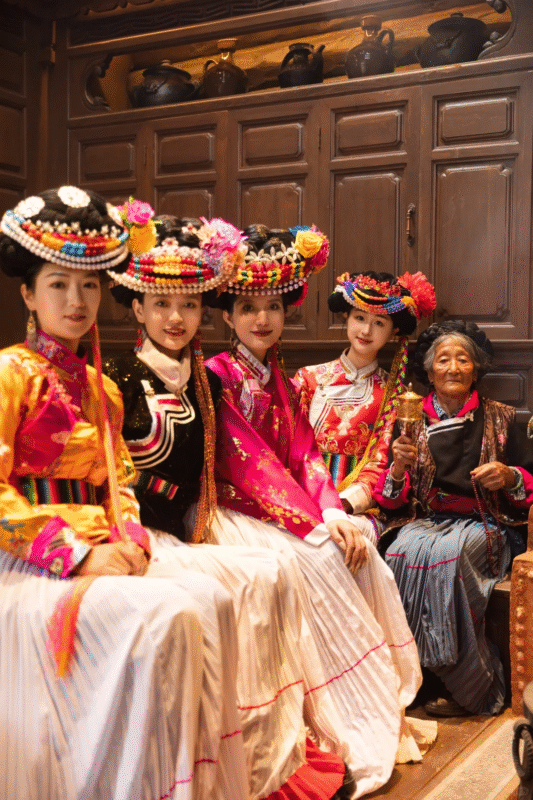
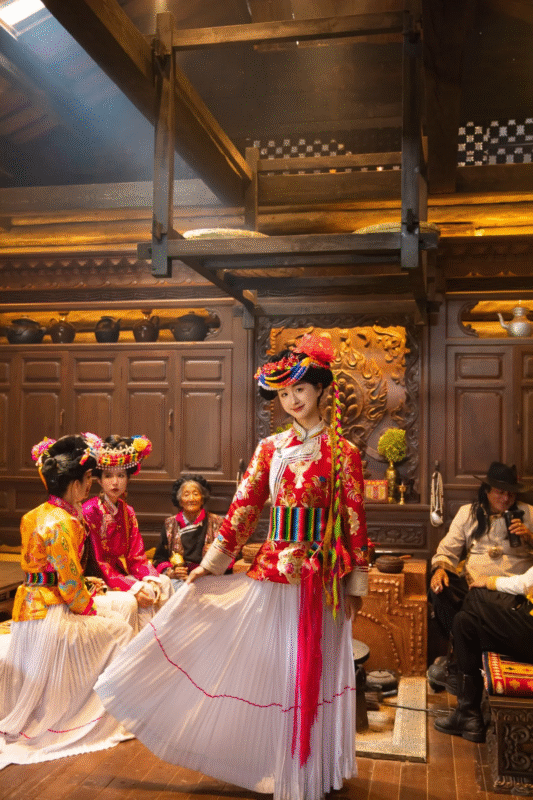
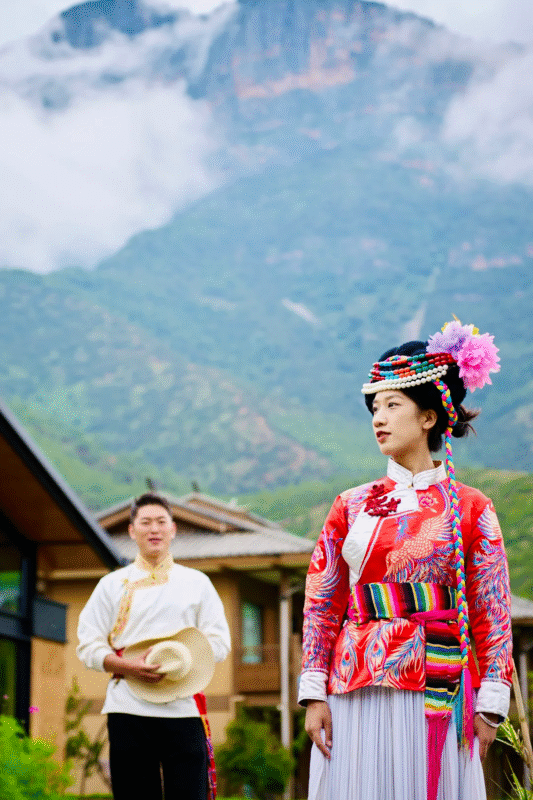
The Mosuo people here preserve traditional lifestyles, drawing global attention as a living cultural treasure.
Explore a village hailed as “the last red rose of Eastern matriarchal culture”, where homes cling to mountainsides and lakeshores. The wooden log houses—comprising a main hall, scripture hall, flower chambers (young women’s quarters), and livestock pens—embody centuries-old architectural wisdom.
Cultural workshops in the village sustain folk songs, dances, and handicrafts, allowing visitors to try traditional crafts like textile weaving. The seamless blend of natural landscapes and human geography creates an immersive “field-style” ethnic cultural experience.
The Mosuo people preserve a matriarchal family system centered on women, where households are governed by the eldest grandmother, with lineage and inheritance passed through the maternal line. Men, primarily in the role of "uncles," oversee rituals and external affairs, embodying the traditional division of power: "uncles govern ceremonies, mothers govern wealth." This structure not only ensures familial stability but also reflects an ancient wisdom of gender equality, where roles are complementary rather than hierarchical.
Take the train back to Lijiang City, then take the EMU train back to Kunming (the train information is subject to the actual ticket), and check in to Kunming Hotel. (In case of bullet train return to Kunming without a ticket, our company will return to Kunming by car according to the situation)
Warm tips:
★Please pack your luggage carefully before checking out and returning, and please do not leave anything out and increase your unnecessary trouble.
Meal arrangement: Breakfast hotel buffet Lunch not included, Dinner not included.
Enjoy breakfast, then head to the [Tourist Distribution Center], where you can carefully select your favorite Yunnan specialties and other local products, and send them to Kunming Changshui International Airport according to the flight time. We look forward to welcoming you to Yunnan and serving you again.
Warm tips:
★ Please pack your luggage carefully before checking out and returning, and please do not leave anything out and increase your unnecessary trouble.
★ Please book your flight back after 1 p.m.
Includes/Excludes
Cost Includes
- Accommodation: Ctrip 4 Diamond Boutique Light Luxury Hotel 1 night at Wyndham Hotel
- Transportation: The whole process of air-conditioned tour bus, according to the actual number of people to choose the model; Lijiang-Kunming second-class train ticket
- Catering: 10 people per table, a total of 9 breakfast, 15 meals and 1 meal package, the number of dishes will be reduced. Breakfast (breakfast is included in the room rate, no breakfast is refunded, if the child does not occupy a bed, the breakfast fee must be paid, according to the hotel charges)
- Tickets: The first ticket for the attraction
- Tour guide: Yunnan tour guide service
- Travel Agency Liability Insurance
Cost Excludes
- Personal expenses: such as souvenirs.
- International flights and visas: not included.
- Other expenses: Any expenses not explicitly mentioned in "Price Included".
- The Jinsuo Island battery car is not included in the itinerary. Tourists can choose it voluntarily according to their own circumstances.
Addtional Notes
The attractions and complimentary items included in the itinerary will not be refunded if the tourists voluntarily give up.
Minors under the age of 18 with poor self-restraint ability, accompanied by normal age tourists; Yunnan is a plateau area, and groups over the age of 70 must be accompanied by tourists of normal age to participate in the tour; It is not recommended for the elderly over 70 years old to join the tour, if you need to join the tour, please be sure to do a good physical examination, show the hospital health certificate, and fill in the “Participation Disclaimer”. Adults must bring the original valid ID card when leaving the tour, children under the age of 16 must bring the original household registration booklet, and infants must bring their birth certificates. If you are over 16 years old and have not applied for an ID card, please apply for a second-generation ID card before departure, and you can apply for a temporary identity certificate at the airport with the receipt of the ID card.
Yunnan is located in a plateau area, please be careful about altitude sickness, and tourists with diseases such as high blood pressure or heart disease should be cautious. In the plateau area, ultraviolet radiation is strong, so it is recommended that you bring sunglasses, sunscreen, body lotion, sun umbrella, sun hat, mosquito repellent and other items (even if it is cloudy, please prepare for sun protection); Many attractions on the trip are completed on foot, and it is necessary to prepare a pair of comfortable and breathable travel shoes.
In order to avoid food problems, please choose a regular dining place when you eat by yourself. In addition, the local unique ethnic flavor meal is worth tasting; The local water and soil are weakly acidic, so it is recommended to drink more tea to neutralize the acid and alkali.
When traveling freely, please take care of your personal belongings and pay attention to personal safety.
Before leaving the hotel, please check whether you have all your personal luggage and documents, so as not to cause unnecessary trouble to you.
Yunnan is located in the border, there is a large gap between the facilities in some areas and the metropolis, please forgive me and be mentally prepared. Travel is a pleasant experience, please keep a happy mind, and immerse yourself in the beautiful scenery and colorful ethnic customs.
Yunnan’s local specialties are: jade, Huanglongyu, essential oil, Pu’er tea, Panax notoginseng, gastrodia, cordyceps, Dai brocade, Xuanwei ham, Yanglin fat wine, cloud leg moon cakes, Dengchuan milk fan, etc.
Be aware of your flight time, and check in early to avoid delays due to unpredictable factors such as traffic. Before returning home, please pay attention to the weather conditions at your destination and prepare to add or remove clothes before getting off the plan
- Best Price Guaranteed
- No Booking Fees
- Professional Local Guide
-
Vehicle
-
Kunming Changshui International Airport
-
Kunming Changshui International Airport
-
English
Related trips you might interested in
- Jan
- Feb
- Mar
- Apr
- May
- Jun
- Jul
- Aug
- Sep
- Oct
- Nov
- Dec
- Jan
- Feb
- Mar
- Apr
- May
- Jun
- Jul
- Aug
- Sep
- Oct
- Nov
- Dec
- Jan
- Feb
- Mar
- Apr
- May
- Jun
- Jul
- Aug
- Sep
- Oct
- Nov
- Dec
Hong Kong Huafang Culture & Technology Co., Ltd.
A Deep Travel Guide to Help the World Perceive China, Embarking on a Cultural Exploration Journey.


